- 15 Best Places to Visit in China (2024)
China, a captivating blend of history and natural beauty, beckons travelers with its incredible destinations.
From ancient wonders to modern marvels, there is no shortage of incredible places to explore in this vast nation.
These 15 places we've selected are great ideas for your annual family trip, birthday trip, anniversary trip, bucket list trip, or any other big milestone trip.

Content Preview
- 1. The Great Wall
- 6. Zhangjiajie National Forest Park
- 8. Shanghai, Hangzhou & Suzhou
- 9. Huangshan
- 10. The Silk Road
- 11. The Greater Bay Area
- 13. Jiuzhaigou
- 14. The Yangtze River
- 15. Inner Mongolia
1. The Great Wall — Top Landmark of China
The Great Wall is an absolute must-see when visiting China, particularly for first-time travelers. This ancient and magnificent military defense project, spanning tens of thousands of kilometers, continues to emanate a distinct allure.
Aside from the option of visiting the Great Wall via cable car, embarking on a hike along the Wall would also serve as a fantastic means of exploration .
For those with ample time and a penchant for adventure, camping on the Great Wall could be an exhilarating experience.
During summertime visits, it is highly recommended to explore the Great Wall at night to escape the heat. Alternatively, witnessing the sunset and indulging in a prepared picnic would make for a delightful experience.
If you are planning a trip to China and want to make an itinerary based on your interests and requirements, feel free to contact us . Our tour services are personalized .
Discover real reviews of Highlights Travel Family 's best-rated service across trusted platforms.
2. Beijing — The Ultimate Destination for First-Time Explorers
Beijing, the capital of China, is the most popular tourist destination in China every year. You could get the maximum experience of Chinese culture and history from one destination.
There you could learn some stories about Chinese emperors by walking in the Forbidden City, which was once their home.
For foodies, Peking Duck is not to be missed, and there are plenty of hidden snack bars in the hutongs.
If you want to experience the bustling (or leisurely retired) life of Beijingers, you could visit a Beijinger family in the hutongs or walk around a local community with markets and parks.
3. Xi'an — Embrace the Essence of Culture in a City Steeped in History
One of the most popular China destinations among foreign travelers, Xi'an particularly attracts tourists on their first trip to China.
The Terracotta Army in Xi'an is considered one of the most significant archaeological sites in the world. More than 6,000 life-size terracotta warriors and horses have been unearthed, all with different expressions and poses. Many remain interred.
For a richer experience and better understanding, we would arrange a hands-on experience of making your own clay warriors. Here you could get more ideas for your China trip on Top 10 Unique Experiences in China You Won't Miss
If you are looking for outdoor activities with your kids, we recommend a bike ride along Xi'an's 600-year-old Ancient City Wall where you could have a good all-around view of the city.
Hanging out and snacking on the Muslim Streets could also be a wonderful choice.
4. Chengdu — A Captivating Haven for Panda Enthusiasts
To make your first trip to China complete with a panda encounter, Chengdu cannot be missed.
Chengdu is the best place to see pandas in China. You could also take part in volunteer programs to take care of giant pandas.
During the program, you would break bamboos and wash some bamboos shoots, clean the glass of their enclosures, make their favorite cakes, watch them being fed, and get a souvenir certificate. See more on How Long to Spend in Chengdu .
5. Tibet — A Bucket List Favorite
Tibet is a sacred place for Buddhists as well as a bucket list destination for many travelers.
It is overflowing with rich Tibetan culture, characteristic Tibetan architectural structures, and unspoiled plateau scenery. Read more on How Long to Spend in Tibet .
There you could explore the Potala Palace, which is an iconic landmark in Tibet, travel to Everest Base camp and stand in front of the "Apex" of the Roof of the World, and gaze at the beauty of Yamdrok Lake and Namtso.
If you are traveling with kids and want to have some special experience, we recommend an interesting camp experience with a nomadic family on their pasture and working together with them. All our tours are customized.
- 5-Days Lhasa Classics and Lake Yamdrok Tour
- 8-Days Lhasa to Everest Base Camp Tour
- 11-Day Overland Trip from Lhasa to Kathmandu
- 14-Day Tibet Tour with Mt. Kailash and Lake Manasarovar
6. Zhangjiajie National Forest Park — Nature Lover's Paradise
Zhangjiajie National Forest Park, featuring precarious peaks, limpid streams, dense forests, large karst caves, and biodiversity, is one of the must-see scenic areas in China.
It was thrust into foreign travelers' eyes via the movie Avatar. The Hallelujah Mountains were inspired (in part) by peaks like Heavenly Pillar in the park.
Experience the breathtaking beauty of a sea of clouds by taking a cable car to the mountaintop. Walk along the steps, and you'll witness spectacular views unveiled before your eyes, offering a unique perspective from various angles.
Additionally, the cool and refreshing air will rejuvenate your mind, making it an ideal summer retreat.
7. Guilin — A Family Adventure Awaits in Nature's Playground
Guilin's idyllic scenery draws millions of tourists from near and far every year. Its marvelous limestone scenery is renowned as "the most beautiful on earth". The fresh air and countryside scenery make it an ideal place to escape industrial pollution.
Relax on a Li River cruise and enjoy its stunning karst landscapes. Go to Yangshuo, the tourism-magnet town near Guilin. You could also enjoy some time relaxing on a bamboo raft ride, bicycle, and/or sidecar tour to explore the countryside.
If you are seeking an adventurous experience with your kids, explore a wild limestone cave or discover a beautiful valley that is still mostly unknown, even to locals.
Going kayaking to enjoy the cool water and appreciate the karst scenery along the river could also be a wonderful family activity, especially in the summer.
8. Shanghai, Suzhou, and Hangzhou — 1 Hour by Bullet Train
High-speed rail gives you some new comfortable and convenient China tour options. Suzhou and Hangzhou are now only an hour's travel by bullet train from Shanghai!
In Shanghai, explore the Bund in-depth and its historical buildings and visit the world's biggest Starbucks and see how AR (augmented reality) is used in the store.
In Hangzhou, you could visit a tea plantation to see how farmers pick tea leaves and discover the process of making tea.
A trip to Suzhou will let you appreciate the charm of traditional Chinese gardens and water towns. See more on How to Plan a Trip to Shanghai, Hangzhou, and Suzhou .
9. Huangshan — Where Majestic Mountains Paint an Unforgettable Landscape
The legendary natural scenery is the highlight of Huangshan. It has "the most beautiful mountains in China". The Yellow Mountains, with their seas of clouds, oddly-shaped rocks and pines, and hot springs at the mountain foot, attract many many visitors.
Besides the enchanting mountains, you could also see the beautiful surrounding countryside. Escape to a rural utopia in Bishan village and see how artists have turned this small area into a rural paradise.
- 3-Day Ancient Villages and Yellow Mountains Tour
- 12-Day Shanghai, Huangshan, Hangzhou, Guilin, and Hong Kong Tour - Selected Picturesque China
10. The Silk Road — Embark on an Unconventional Journey Through History
The Silk Road would show you a different China. It was once the most prosperous trade route in China. Even if it is no longer as prosperous as before, it is still proud to show its unique charm, waiting for every visitor to find its brilliance.
You would see marvelous landscapes with unique Danxia landforms, pristine deserts, and crystal lakes. Visit the old Mogao Caves to see fine murals and learn about how Buddhism entered China. See more on How Long to Spend on the Silk Road .
Feel its exotic culture in Xinjiang by visiting its lively bazaars, and mosques, and meeting friendly locals.
- 7-Day Xinjiang Highlights Tour
- 13-Day Beijing–Xi'an–Dunhuang–Urumqi–Shanghai Tour - Silk Road Highlights and China's Gateway Cities
- More 21-Day The Great Silk Road Tour
11. The Greater Bay Area (Guangdong, Hong Kong, and Macau) — Unveiling a Visa-Friendly Paradise
With its unique blend of cultures, this vibrant region offers many attractions.
From exploring the bustling streets of Hong Kong and admiring the skyline, to experiencing the glamorous Portuguese architecture in Macau and indulging in delicious Cantonese cuisine in Guangdong, there is something for everyone.
Besides, you could explore more in Guangdong to discover its Lingnan culture, such as watching amazing lion dancing and learning the Wing Chun style of kung fu in Foshan .
Hong Kong and Macau offer visa-free access to numerous international tourists, while Guangdong province also allows visitors to make use of the 144 visa-free transit policy .
12. Yunnan — Where Outdoor Adventures Meet Serene Natural Beauty
Located in Southwest China, Yunnan enjoys pleasant weather, warm in winter and cool in summer.
It is the most diverse and colorful area in China. There you could hike across Tiger Leaping Gorge, which is one of the deepest gorges on the planet, visit the majestic Jade Dragon Snow Mountain, enjoy a lazy time in the old towns, visit a non-public dormitory of Songzanlin Monastery, bike with the refreshing breezes of Erhai Lake...
All our tours can be customized. Contact us to create a trip according to your group size, time, budget, interests, and other requirements.
- 8-Day Kunming, Dali, Lijiang, and Shangri-La Tour - Meet the Amazing Beauty of Yunnan
- 9-Day Yunnan Family Tour - Kunming, Dali, Lijiang, and Shangri-La
13. Jiuzhaigou — Immerse in the Serene Splendor of Lakes and Natural Beauty
Jiuzhaigou, located in Sichuan province, is a must-visit destination in China, especially for nature enthusiasts.
Its colorful lakes, cascading waterfalls, snow-capped peaks, and unique ecosystem make it a fairyland.
Take leisurely walks along the wooden boardwalks, immersing yourself in the serenity.
14. The Yangtze River — Embrace Serenity and Rekindle Your Affinity as Couples
The Yangtze River, the longest river in China and Asia, would offer stunning and diverse landscapes along its course.
A cruise offers leisurely couple time and provides several typical China-culture-related onboard activities.
Embarking on a cruise along the Yangtze, you would be amazed by the majestic Three Gorges, featuring towering cliffs, misty mountains, and serene waters.
The mesmerizing scenery of the Gorges changes with the seasons, from vibrant greenery in spring and summer to enchanting autumn foliage. As the river continues, picturesque countryside and terraced fields unfold, showcasing the rural charm of China.
Along the way, cultural and historical sites such as Fengdu Ghost City and Shibaozhai Pagoda provide insightful glimpses into China's rich heritage.
15. Inner Mongolia — Uncover Extraordinary Landscapes and Adventures
Inner Mongolia, a vast region in northern China, is also a destination that should not be missed.
The grasslands, stretching as far as the eye can see, offer a unique opportunity to experience the nomadic way of life. You could also stay overnight in a traditional Mongolian yurt to experience their traditional lifestyle .
Adventure out into Kubuqi Desert's hinterland to escape crowds and enjoy all kinds of interesting desert activities.
If you want to explore Mongolian culture, don't miss the Naadam Festival.
Tour China with Us
Below are recommended China tour itineraries for you, including the most popular places from the list above.
For a different combination of China cities, or to tour more of China your way, contact us with your favorite China highlights and we'll tailor-make your dream tour. All of our tours can be tailor-made.
- 11-Day Beijing- Xi'an-Guilin/Yangshuo- Shanghai Tour
- 2-Week Beijing- Xi'an-Zhangjiajie-Guili-Shanghai Tour
- Find some inspiration from our popular China tours
You Might Like
- How to Plan Your First Trip to China
- How to Plan Your First-Time Family Trip to China
- China in 10 Days: 5 Perfect Itinerary Options for First-Timers
- Best China Tours 2024/2025: Top Tours for First & Return Trips
- 9-Day Beyond the Golden Triangle
- 2-Week Riches of China
- Best (& Worst) Times to Visit China, Travel Tips (2024/2025)
- How to Plan a 10-Day Itinerary in China (Best 5 Options)
- 8 Days in China: Top 15 Tours and Itineraries (2024/2025)
- China Weather in January 2024: Enjoy Less-Crowded Traveling
- China Weather in February 2024: Places to Go, Costs, and Crowds
- China Weather in March 2024: Destinations, Crowds, and Costs
- China Weather in April 2024: Where to Go (Smart Pre-Season Pick)
- China Weather in May 2024: Where to Go, Crowds, and Costs
- China Weather in June 2024: How to Benefit from the Rainy Season
- China Weather in July 2024: How to Avoid Heat and Crowds
- China Weather in August 2024: Weather Tips & Where to Go
- China Weather in September 2024: Weather Tips & Where to Go
- China Weather in October 2024: Where to Go, Crowds, and Costs
- China Weather in November 2024: Places to Go & Crowds
- China Weather in December 2024: Places to Go and Crowds
Get Inspired with Some Popular Itineraries
More travel ideas and inspiration, sign up to our newsletter.
Be the first to receive exciting updates, exclusive promotions, and valuable travel tips from our team of experts.
Why China Highlights
Where can we take you today.
- Southeast Asia
- Japan, South Korea
- India, Nepal, Bhutan, and Sri lanka
- Central Asia
- Middle East
- African Safari
- Travel Agents
- Loyalty & Referral Program
- Privacy Policy
Address: Building 6, Chuangyi Business Park, 70 Qilidian Road, Guilin, Guangxi, 541004, China
We’re sorry, this site is currently experiencing technical difficulties. Please try again in a few moments. Exception: request blocked
Update April 12, 2024
Information for u.s. citizens in the middle east.
- Travel Advisories |
- Contact Us |
- MyTravelGov |
Find U.S. Embassies & Consulates
Travel.state.gov, congressional liaison, special issuance agency, u.s. passports, international travel, intercountry adoption, international parental child abduction, records and authentications, popular links, travel advisories, mytravelgov, stay connected, legal resources, legal information, info for u.s. law enforcement, replace or certify documents.
Share this page:
China Travel Advisory
Travel advisory april 12, 2024, mainland china, hong kong & macau - see summaries.
Updated due to new national security legislation in the Hong Kong Special Administrative Region.
Summary: Reconsider travel to Mainland China due to the arbitrary enforcement of local laws, including in relation to exit bans, and the risk of wrongful detentions.
Exercise increased caution when traveling to the Hong Kong Special Administrative Region (SAR) due to the arbitrary enforcement of local laws .
Reconsider travel to the Macau Special Administrative Region (SAR) due to a limited ability to provide emergency consular services . Exercise increased caution when traveling to the Macau SAR due to the arbitrary enforcement of local laws .
See specific risks and conditions in each jurisdiction .
Mainland China – Level 3: Reconsider Travel
Reconsider travel due to the arbitrary enforcement of local laws , including in relation to exit bans, and the risk of wrongful detentions .
Summary: The People’s Republic of China (PRC) government arbitrarily enforces local laws, including issuing exit bans on U.S. citizens and citizens of other countries, without fair and transparent process under the law.
The Department of State has determined the risk of wrongful detention of U.S. nationals by the PRC government exists in the PRC.
U.S. citizens traveling or residing in the PRC may be detained without access to U.S. consular services or information about their alleged crime. U.S. citizens in the PRC may be subjected to interrogations and detention without fair and transparent treatment under the law.
Foreigners in the PRC, including but not limited to businesspeople, former foreign-government personnel, academics, relatives of PRC citizens involved in legal disputes, and journalists have been interrogated and detained by PRC officials for alleged violations of PRC national security laws. The PRC has also interrogated, detained, and expelled U.S. citizens living and working in the PRC.
PRC authorities appear to have broad discretion to deem a wide range of documents, data, statistics, or materials as state secrets and to detain and prosecute foreign nationals for alleged espionage. There is increased official scrutiny of U.S. and third-country firms, such as professional service and due diligence companies, operating in the PRC. Security personnel could detain U.S. citizens or subject them to prosecution for conducting research or accessing publicly available material inside the PRC.
Security personnel could detain and/or deport U.S. citizens for sending private electronic messages critical of the PRC, Hong Kong SAR, or Macau SAR governments.
In addition, the PRC government has used restrictions on travel or departure from the PRC, or so-called exit bans, to:
- compel individuals to participate in PRC government investigations;
- pressure family members of the restricted individual to return to the PRC from abroad;
- resolve civil disputes in favor of PRC citizens; and
- gain bargaining leverage over foreign governments.
U.S. citizens might only become aware of an exit ban when they attempt to depart the PRC, and there may be no available legal process to contest an exit ban in a court of law. Relatives, including minor children, of those under investigation in the PRC may become subject to an exit ban.
The PRC government does not recognize dual nationality. Dual U.S.-PRC citizens and U.S. citizens of Chinese descent may be subject to additional scrutiny and harassment. If you are a U.S. citizen and choose to enter Mainland China on travel documents other than a U.S. passport and are detained or arrested, the PRC government may not notify the U.S. Embassy or the U.S. Consulates General or allow consular access.
Check with the PRC Embassy in the United States for the most updated information on travel to the PRC. In some limited circumstances travelers to Mainland China may face additional COVID-19 testing requirements to enter some facilities or events.
The Department of State does not provide or coordinate direct medical care to private U.S. citizens abroad. U.S. citizens overseas may receive PRC-approved COVID-19 vaccine doses where they are eligible.
Do not consume drugs in the PRC or prior to arriving in the PRC. A positive drug test, even if the drug was legal elsewhere, can lead to immediate detention, fines, deportation, and/or a ban from re-entering the PRC. PRC authorities may compel cooperation with blood, urine, or hair testing. Penalties for drug offense may exceed penalties imposed in the United States.
Demonstrations : Participating in demonstrations or any other activities that authorities interpret as constituting an act of secession, subversion, terrorism, or collusion with a foreign country could result in criminal charges. Be aware of your surroundings and avoid demonstrations.
XINJIANG UYGHUR AUTONOMOUS REGION, TIBET AUTONOMOUS REGION, and TIBETAN AUTONOMOUS PREFECTURES
Extra security measures, such as security checks and increased levels of police presence and surveillance, are common in the Xinjiang Uyghur Autonomous Region, Tibet Autonomous Region, and Tibetan Autonomous Prefectures. Authorities may impose curfews and travel restrictions on short notice.
If you decide to travel to Mainland China:
- Enter the PRC on your U.S. passport with a valid PRC visa and keep it with you.
- Read the travel information page for Mainland China .
- Enroll in the Smart Traveler Enrollment Program (STEP) to receive alerts and make it easier to locate you in an emergency.
- Avoid demonstrations.
- Exercise caution in the vicinity of large gatherings or protests.
- Avoid taking photographs of protesters or police without permission.
- Keep a low profile.
- If you are arrested or detained, ask police or prison officials to notify U.S. Embassy Beijing or the nearest U.S. Consulate General immediately.
- Review the China Country Security Report from the Overseas Security Advisory Council.
- Do not consume drugs in the PRC or prior to arriving in the PRC.
- Follow the Department of State on Facebook and Twitter . Follow U.S. Embassy Beijing on Twitter , WeChat , and Weibo .
- Visit the Centers for Disease Control and Prevention (CDC) page for the latest Travel Health Information related to the PRC.
- Prepare a contingency plan for emergency situations.
- Review the Traveler’s Checklist .
Hong Kong Special Administrative Region (SAR) – Level 2: Exercise Increased Caution
Exercise increased caution due to the arbitrary enforcement of local laws .
Summary: Hong Kong SAR authorities have dramatically restricted civil liberties since the Government of the People’s Republic of China (PRC) imposed the Law of the PRC on Safeguarding National Security in the Hong Kong SAR on June 30, 2020. Following the Hong Kong SAR government’s enactment of its own Safeguarding National Security Ordinance on March 23, 2024, Hong Kong SAR authorities are expected to take additional actions to further restrict civil liberties.
The 2020 National Security Law outlines a broad range of vaguely defined offenses, such as acts of secession, subversion, terrorism, and collusion with foreign entities. The 2024 Safeguarding National Security Ordinance builds on this framework with additional vaguely defined offenses, such as treason, insurrection, theft of state secrets, sabotage against public infrastructure, and external interference. According to the legislation, these offenses are applicable to foreign nationals within the Hong Kong SAR and to individuals, including U.S. citizens and permanent residents, located outside its borders. Under these provisions, anyone who criticizes the PRC and/or Hong Kong SAR authorities may face arrest, detention, expulsion, and/or prosecution. Hong Kong SAR authorities are attempting to enforce these provisions against individuals, including U.S. citizens and permanent residents, residing outside of their jurisdiction by offering cash rewards for information leading to their arrests in the Hong Kong SAR.
Dual Nationality: The Hong Kong SAR government does not recognize dual nationality. Dual U.S.-PRC citizens and U.S. citizens of Chinese descent may be subject to additional scrutiny and harassment. If you are a dual U.S.-PRC citizen and enter Hong Kong SAR on a U.S. passport, and you are detained or arrested, PRC authorities are under an obligation to notify the U.S. Embassy or a U.S. Consulate General of your detention and to allow U.S. consular officials to have access to you. In practice, however, U.S. consular officers may be prevented from providing consular assistance, even to those who have entered on their U.S. passports. For more information, visit Consular Protection and Right of Abode in HK(SAR) for Dual Nationals - U.S. Consulate General Hong Kong & Macau .
Demonstrations : Participating in demonstrations or any other activities that authorities interpret as constituting an act of secession, subversion, terrorism, or collusion with a foreign country could result in criminal charges under the 2020 National Security Law and/or the 2024 Safeguarding National Security Ordinance. Be aware of your surroundings and avoid demonstrations.
If you decide to travel to the Hong Kong SAR:
- Enter the Hong Kong SAR on your U.S. passport and keep it with you.
- Read the travel information page for the Hong Kong SAR .
- Be aware of your surroundings.
- If you are arrested or detained, ask police or prison officials to notify U.S. Consulate General Hong Kong & Macau immediately.
- Review the China Country Security Report from the Overseas Security Advisory Council.
- Do not consume drugs in the Hong Kong SAR or prior to arriving in the Hong Kong SAR.
- Follow the Department of State on Facebook and Twitter . Follow U.S. Consulate General Hong Kong & Macau on Facebook and Twitter .
- Visit the Centers for Disease Control and Prevention (CDC) page for the latest Travel Health Information related to the Hong Kong SAR.
- Monitor local media, local transportations sites, and apps like MTR Mobile or Citybus for updates.
Macau Special Administrative Region (SAR) – Level 3: Reconsider Travel
Reconsider travel due to a limited ability to provide emergency consular services. Exercise increased caution due to the arbitrary enforcement of local laws.
Summary: The U.S. government has a limited ability to provide emergency services to U.S. citizens in the Macau SAR due to People’s Republic of China (PRC) Ministry of Foreign Affairs travel restrictions on U.S. diplomatic personnel.
Even in an emergency, the PRC Ministry of Foreign Affairs requires all U.S. diplomatic personnel, including those accredited to the Macau SAR, to apply for and receive visas before entering the Macau SAR. Approval takes at least five to seven days, significantly limiting the U.S. government’s ability to offer timely consular services in the Macau SAR.
Dual Nationality: The Macau SAR government does not recognize dual nationality. Dual U.S.-PRC citizens and U.S. citizens of Chinese descent may be subject to additional scrutiny and harassment. If you are a dual U.S.-PRC citizen and enter the Macau SAR on a U.S. passport, and you are detained or arrested, PRC authorities are under an obligation to notify the U.S. Embassy or a U.S. Consulate General of your detention and to allow U.S. consular officials to have access to you. In practice, however, U.S. consular officers may be prevented from providing consular assistance, even to those who have entered on their U.S. passports. For more information, visit Consular Protection and Right of Abode in HK(SAR) for Dual Nationals - U.S. Consulate General Hong Kong & Macau .
Demonstrations : Participating in demonstrations or any other activities that authorities interpret as constituting an act of secession, subversion, terrorism, or collusion with a foreign country could result in criminal charges. Be aware of your surroundings and avoid demonstrations.
If you decide to travel to the Macau SAR:
- Enter the Macau SAR on your U.S. passport and keep it with you.
- Read the travel information page for the Macau SAR .
- If you are arrested or detained, ask police or prison officials to notify Review the China Country Security Report from the Overseas Security Advisory Council.
- Do not consume drugs in the Macau SAR or prior to arriving in the Macau SAR.
- Follow the Department of State on Facebook and Twitter . Follow U.S. Consulate General Hong Kong & Macau on Facebook and Twitter .
- Visit the Centers for Disease Control and Prevention (CDC) page for the latest Travel Health Information related to the Macau SAR.
- Monitor local media and the Macau Government Tourism Office website for updates.
- Review your flight status with your airline or at the Macau International Airport website.
Travel Advisory Levels
Assistance for u.s. citizens, search for travel advisories, external link.
You are about to leave travel.state.gov for an external website that is not maintained by the U.S. Department of State.
Links to external websites are provided as a convenience and should not be construed as an endorsement by the U.S. Department of State of the views or products contained therein. If you wish to remain on travel.state.gov, click the "cancel" message.
You are about to visit:
The best of China: 14 places you won’t want to miss
Feb 21, 2024 • 5 min read
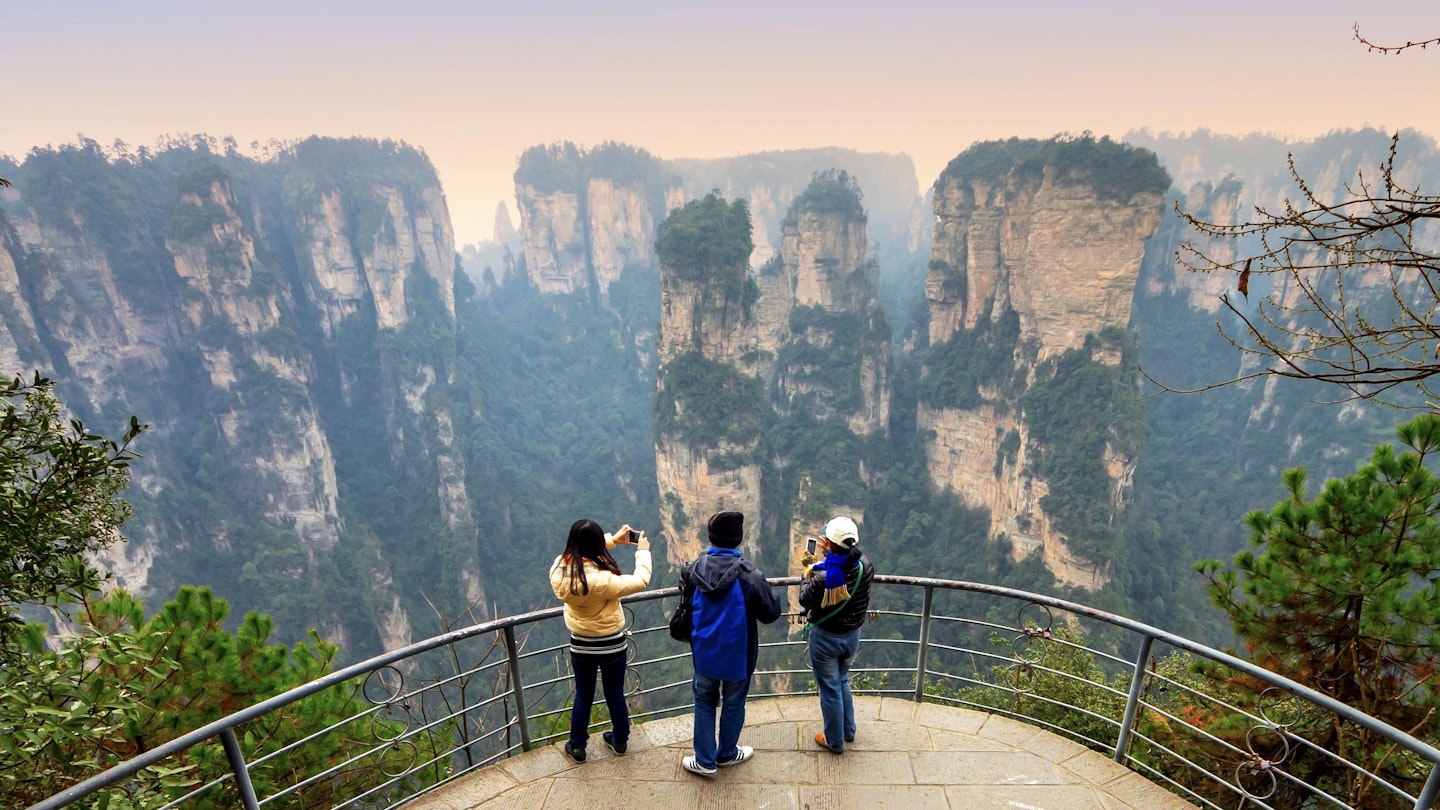
From vibrant cities to jaw-dropping natural wonders like Zhangjiajie, here are the places in China you won’t want to miss © siraphat / Shutterstock
In China , antiquity and heritage meet 21st-century innovation and lighting-fast development.
This is a country packed with highlights – so many that it might be hard to craft a manageable itinerary. Start by immersing yourself in one of China's gigantic, sprawling cities – which contain plenty of frantic energy, but hidden pockets of serenity, too. Take a break from the crush by soaking up China's natural scenery – think jagged peaks and pine forests draped in a sea of mist that look like they've been lifted straight from one of the country's masterpiece scroll paintings. As one of the world's most ancient civilizations, China also offers wonderful opportunities to explore astounding relics from its millennia of history.
Don't know where to start? Whether you dream of gilded temples, boisterous urban environments, fabulous food or the wonders of the Great Wall, here are our picks of the best places to visit in China.
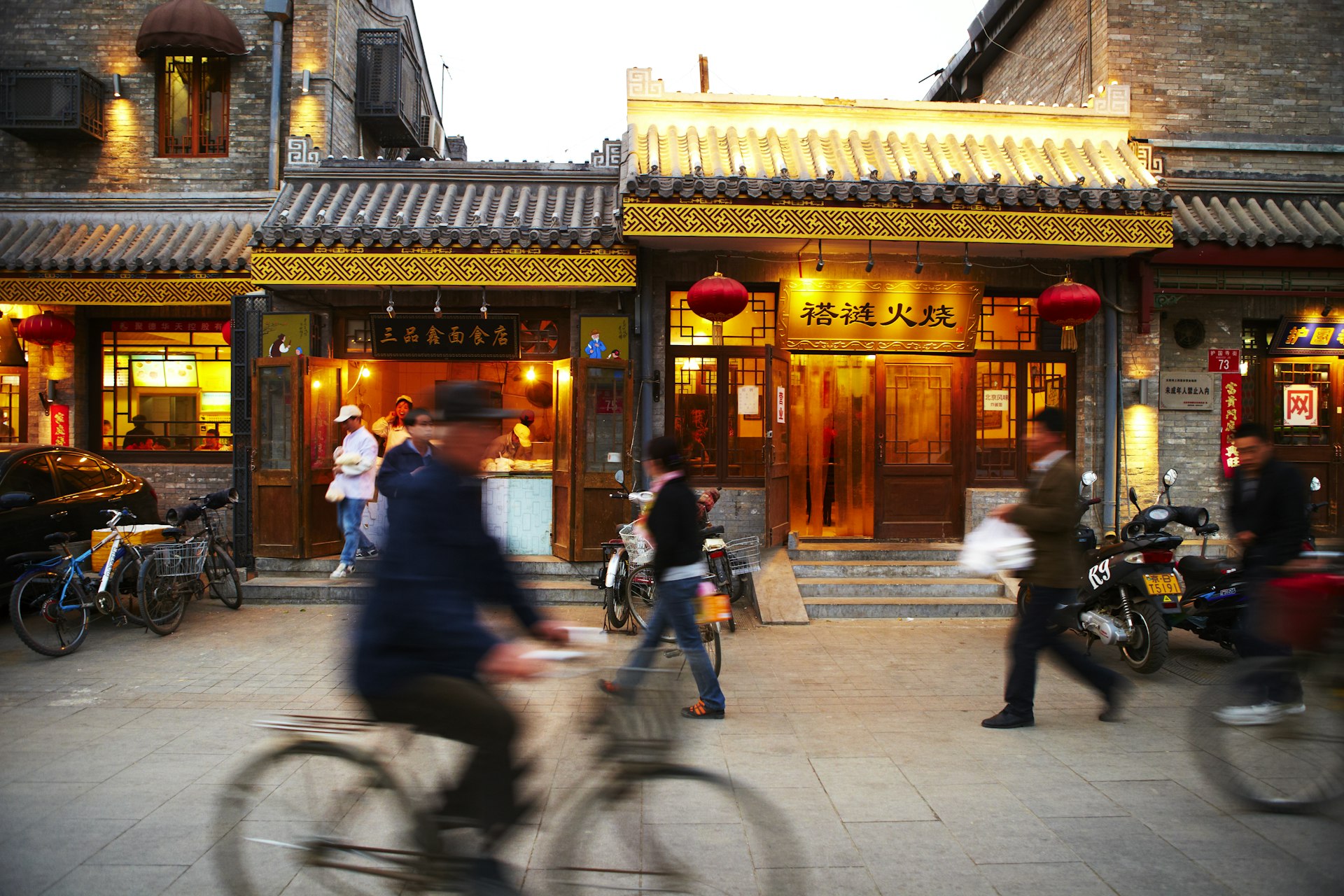
One of the world's greatest cities and China's absolute can't-miss destination, Beijing is home to many of China's big-ticket attractions: the Forbidden City, the Great Wall, Tiananmen Square , the Summer Palace and more. But its appeal goes well beyond blockbuster sights. Get lost among its labyrinth of traditional hutongs (alleyways), marvel at its cutting-edge modern architecture, feast on Peking duck and a million other dishes from across the country, check out the local indie music scene, admire Ming-dynasty ceramics, drop by a traditional teahouse or enjoy a boisterous evening sampling the local baijiu (sorghum wine).
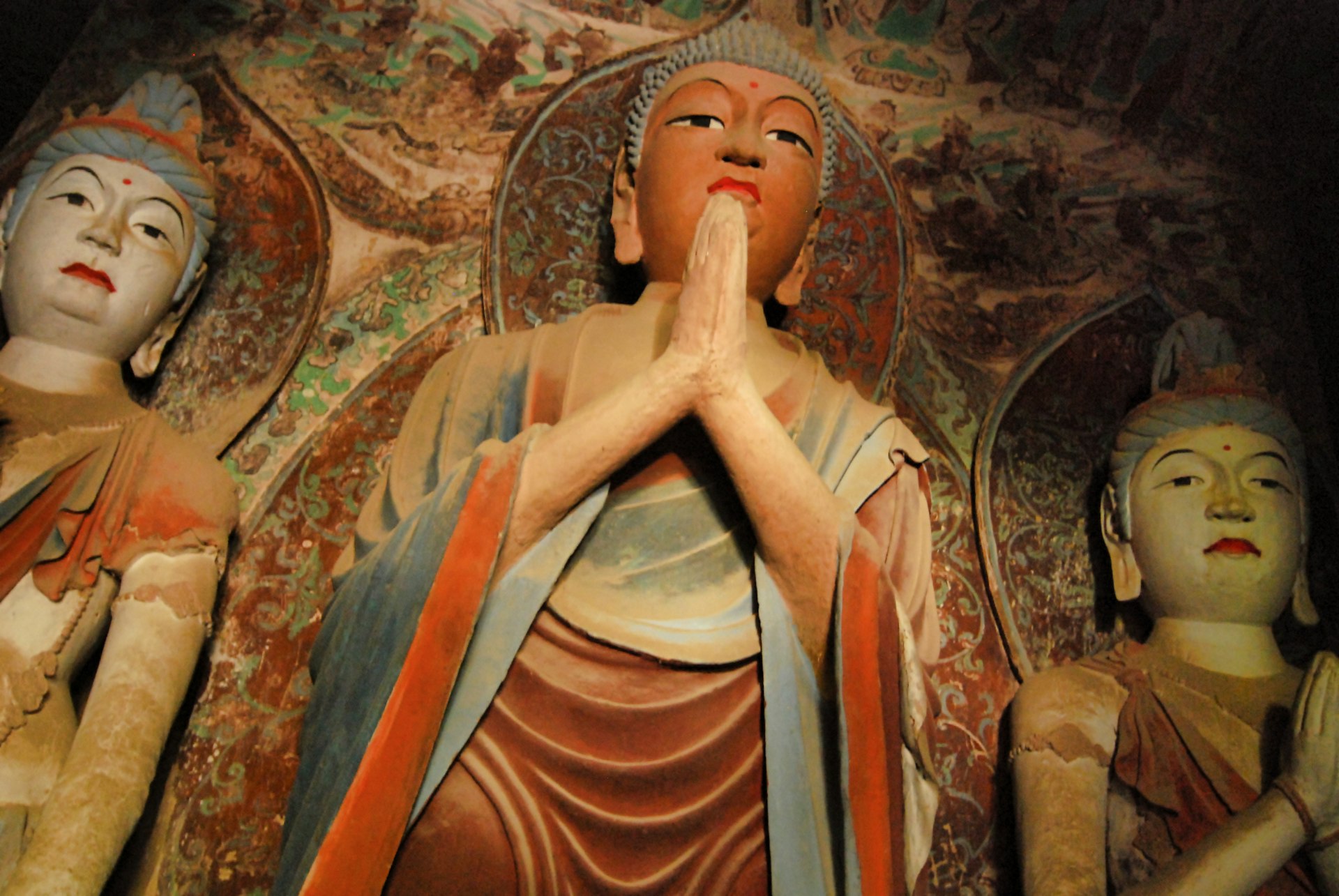
2. Mogao Grottoes, Dunhuang
Along the ancient Silk Road, the atmospheric frontier town of Dunhuang is home to one of the world's most important collections of Buddhist art. Among more than 490 Buddhist caves in the area, the mural and statue-filled Mogao Grottoes represent perhaps the zenith of Buddhist artistry in China.
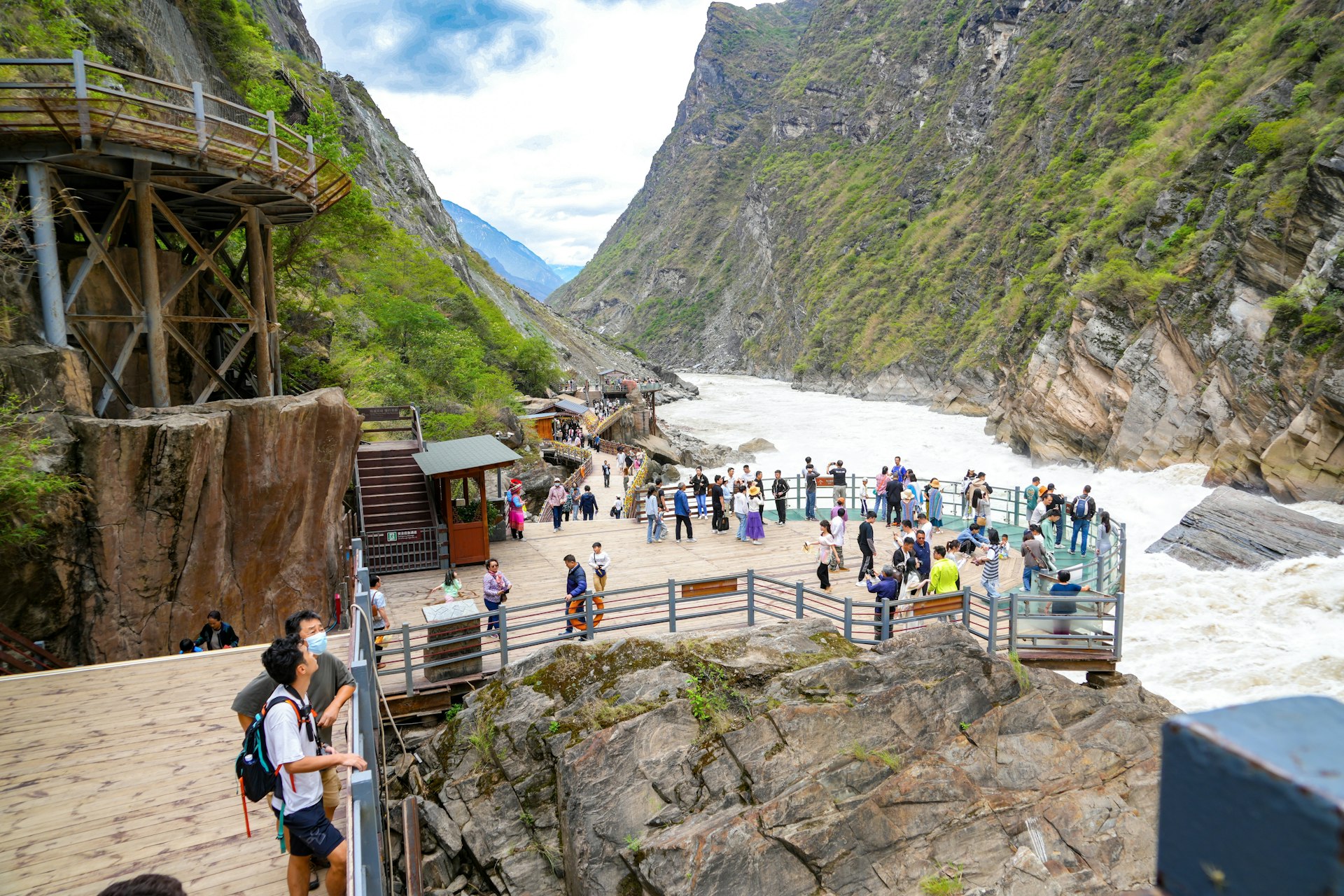
3. Tiger Leaping Gorge, Yunnan
One of China's most famous treks, this 22km (14-mile) hiking trail winds through a World Heritage-listed gorge in Yunnan that is one of Asia's most striking landscapes. Framed by spectacular snow-capped mountains and the scenic Jinshajiang River, the natural monument plunges to depths of 3900m (12,795ft), making it one of the deepest gorges in the world.
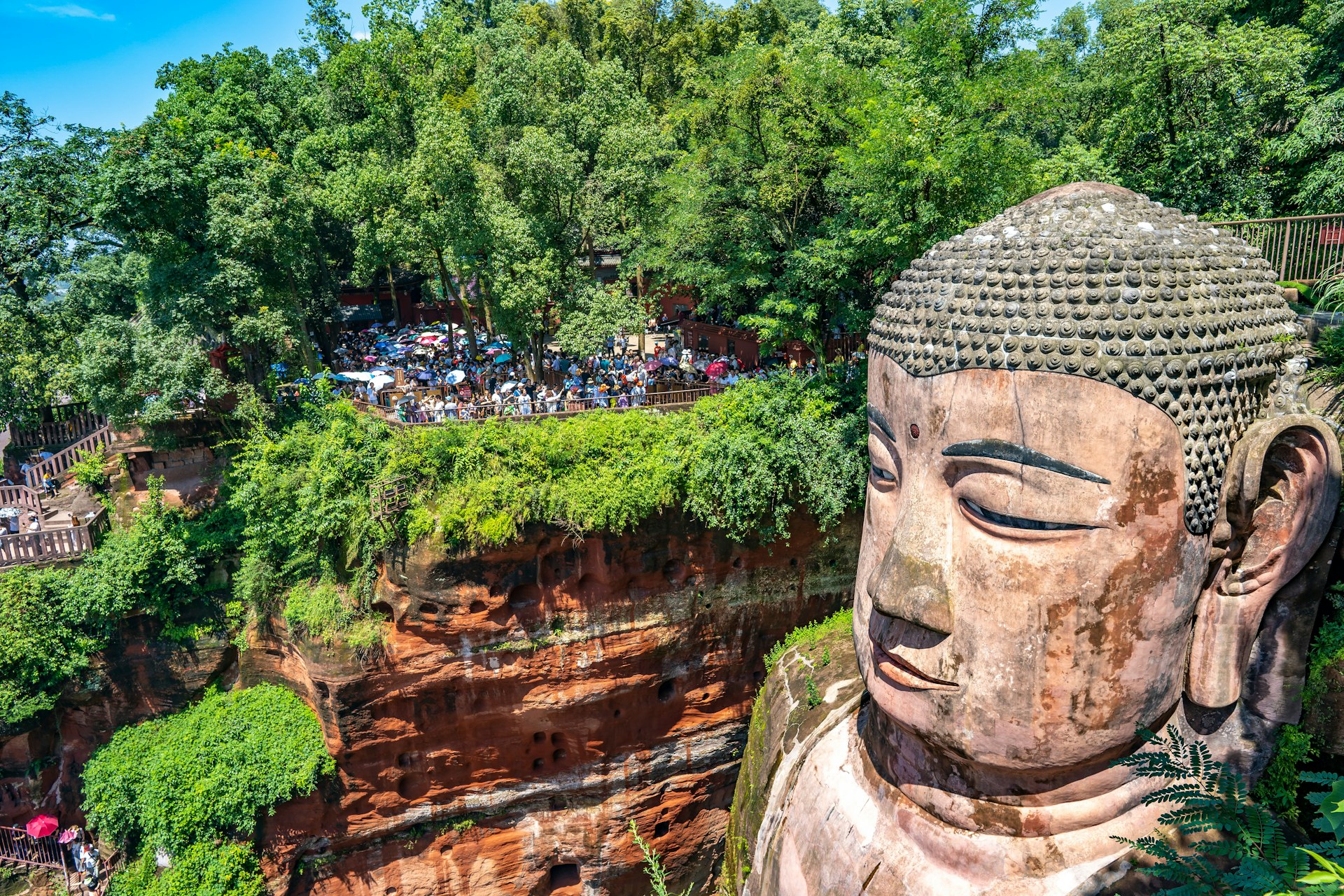
4. Le Shan, Sichuan
Standing at the confluence of two rivers, the monumental 1200-year old Buddha image at Le Shan is carved directly into the rock face. World Heritage–listed, the extraordinary monument stands 71m (233ft) tall and 28m (92ft) wide, making it the largest ancient Buddha in the world. Whether you're spiritually included or not, coming face to face with this sculpture is quite a moving experience.
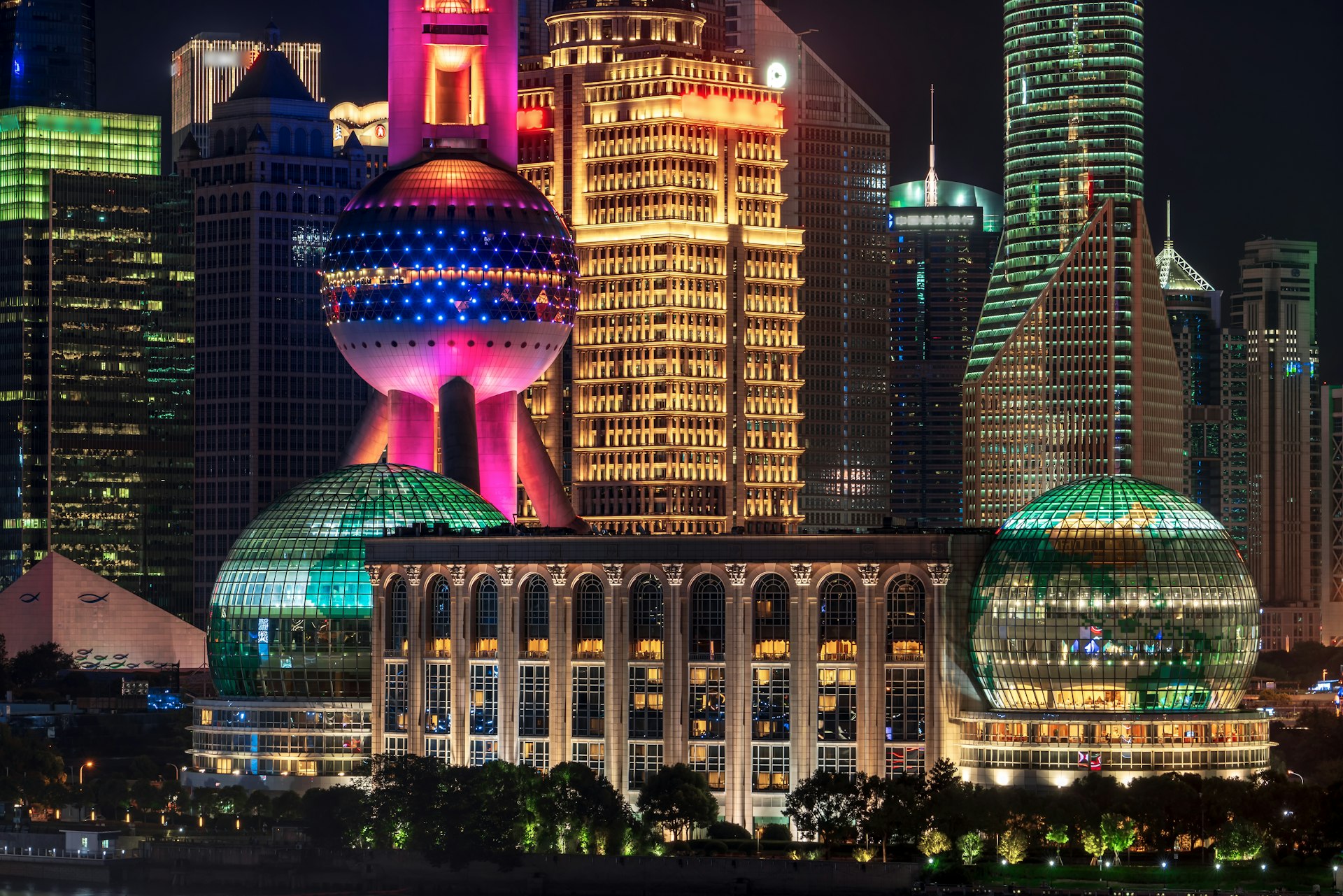
5. Shanghai
Glitzy, elegant, historic and cosmopolitan: everything you've heard about Shanghai is true. Just take a stroll through the French Concession or along the Bund , and you'll see for yourself. From the grand display of 1920s architecture to the city's sophisticated restaurants and rooftop bars to the sci-fi neon-lit skyscrapers across the bay, Shanghai is the past and future China brought to vivid life.
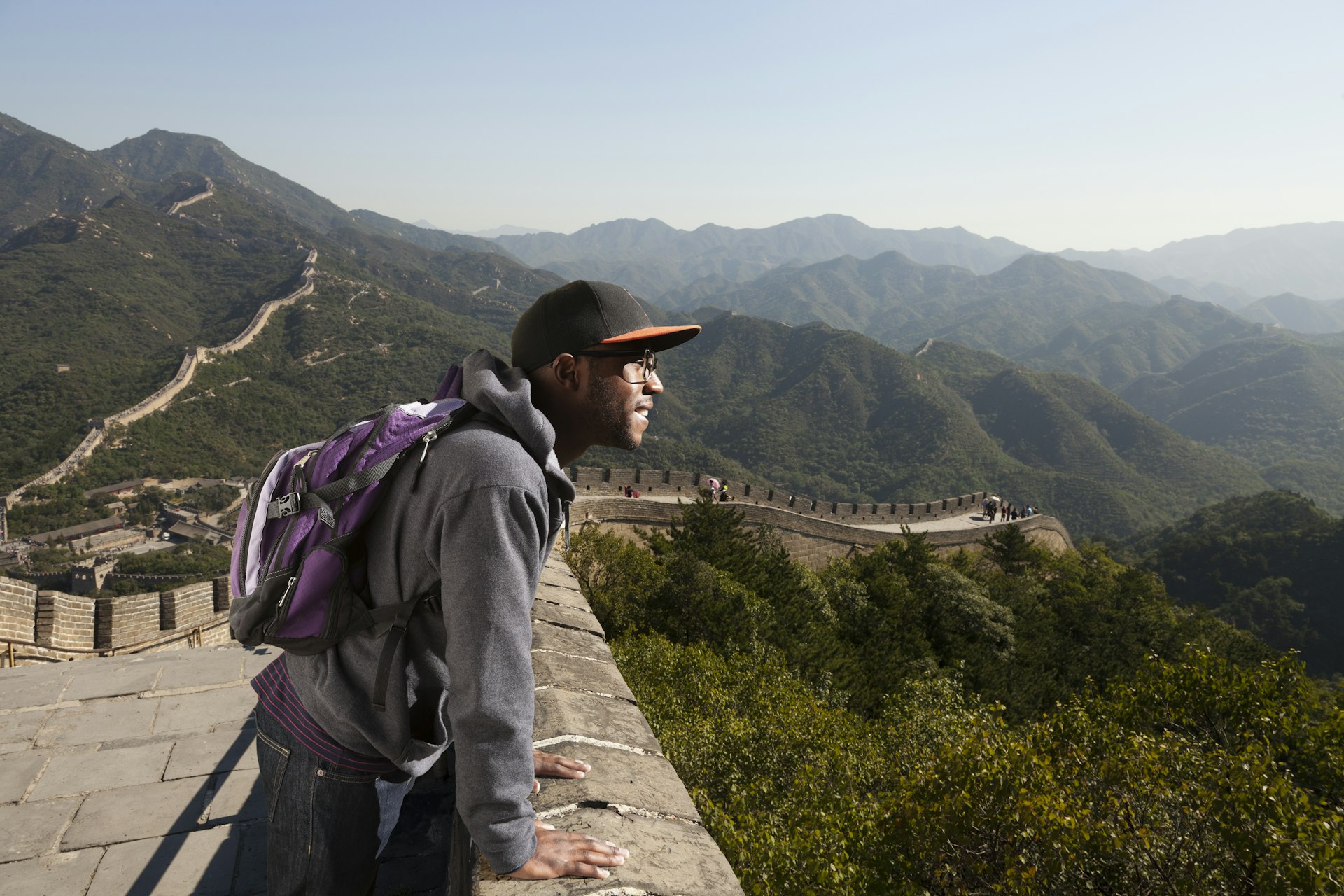
6. The Great Wall
Snaking through China's majestic mountainous terrain, the spectacular Great Wall is the nation's most iconic landmark. Built over two millennia, this awe-inspiring, 21,196km-long (13,170-mile-long) fortification is a true marvel of human accomplishment. In fact, it's not one wall but many, stretching from the east coast all the way to the far western desert. The most easily accessible stretches can be reached by car from Beijing.
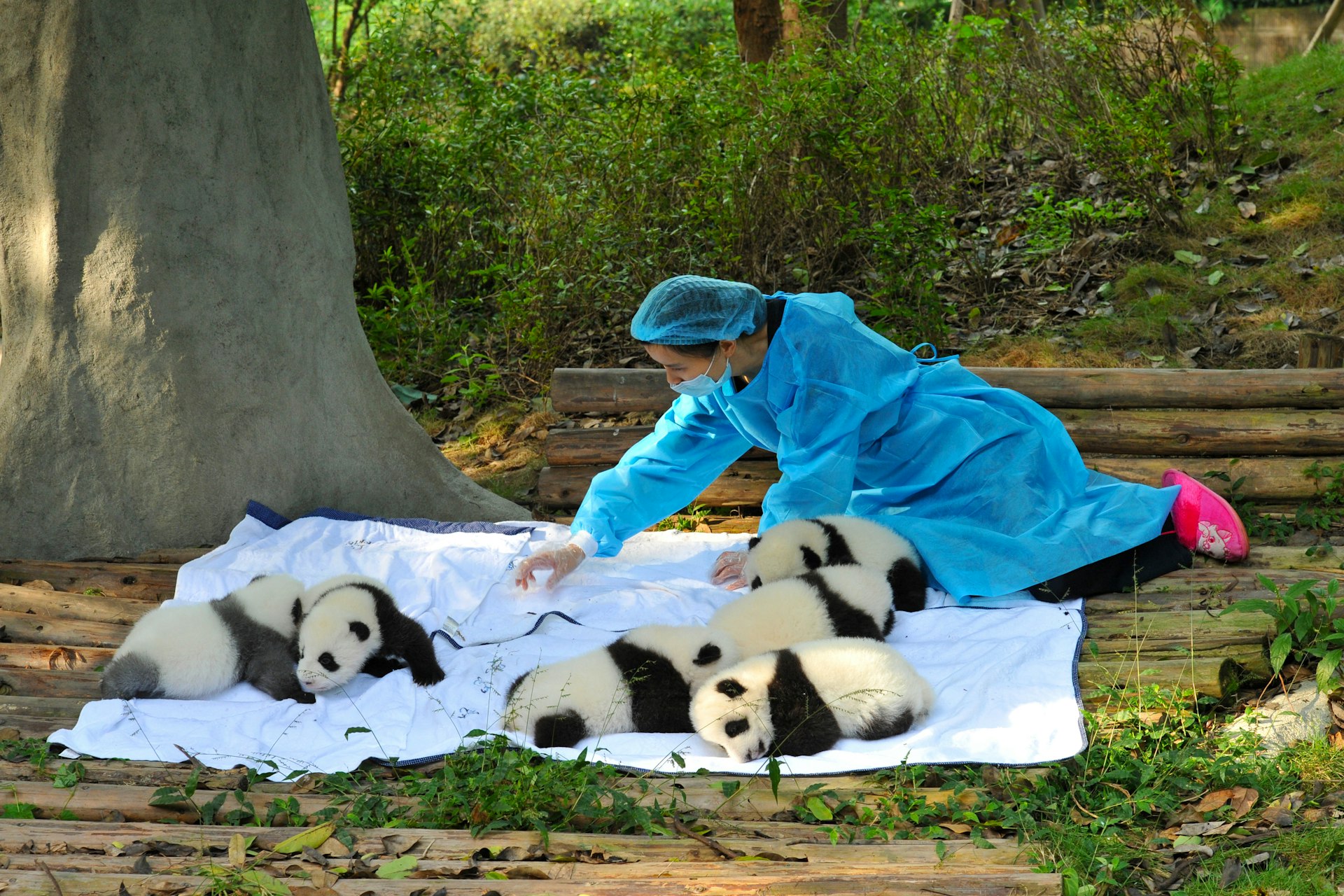
With its charming teahouses, lively nightlife and fiery Sichuan food, Chengdu is one of China's most popular cities for travelers. But most folk visit here for one reason: pandas. And while you'd be very lucky to spot one in the wild, sightings are guaranteed at the Giant Panda Breeding Research Base . Other draws of this inland regional capital include temples, pavilions and museums devoted to the culture of the ancient Shu kingdom.

8. Karst peaks, Guilin
Spanning the distance from Guilin to Yangshou , the picture-perfect karst-limestone peaks offer an extraordinary backdrop to the scenic Li River and rice paddies. Grab a bicycle or board a raft to tour this beautiful countryside, passing farmers and water buffalo along the way.
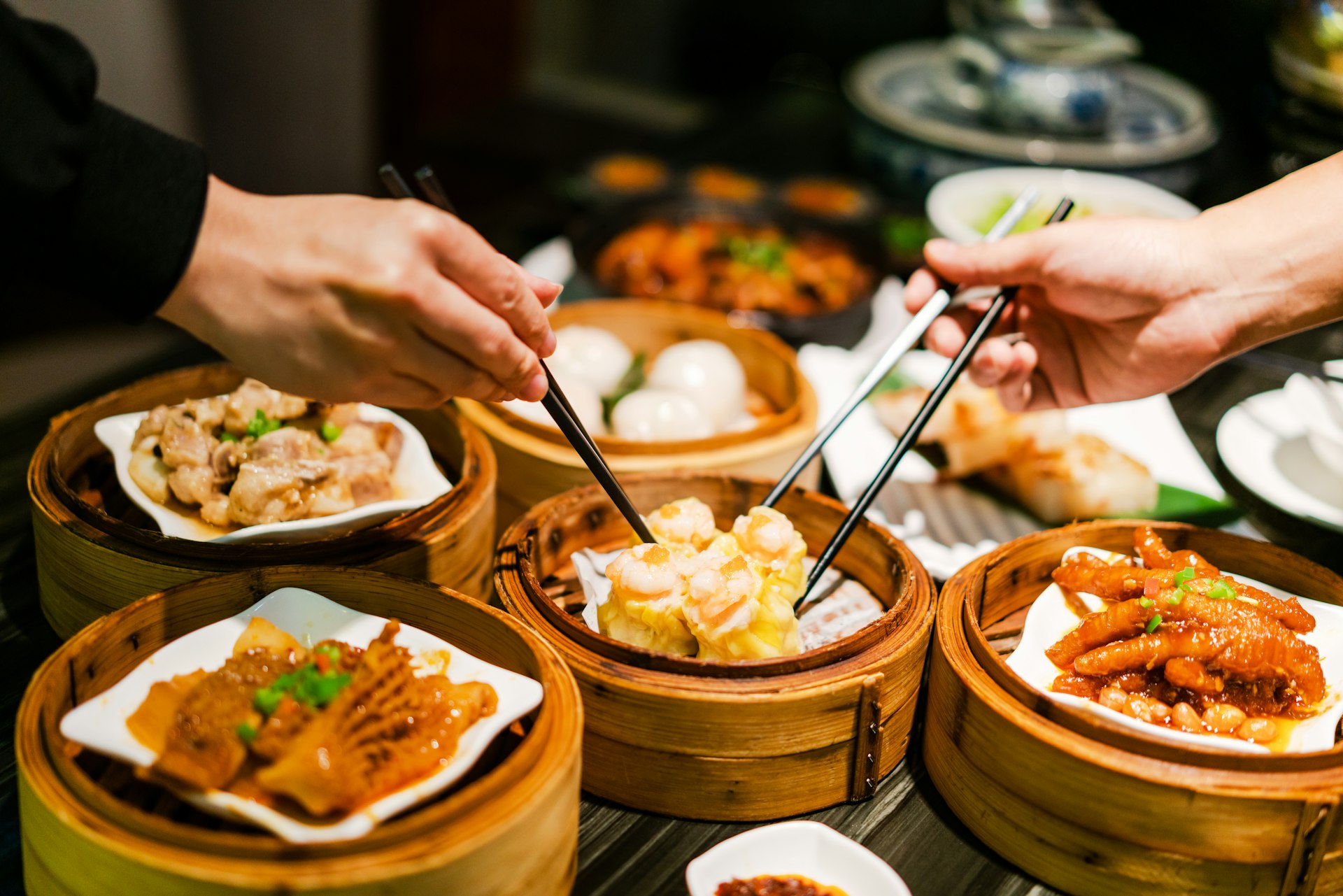
9. Guangzhou
This vibrant and dynamic megacity is one of China's most fascinating hubs. You'll find an intriguing mix of old and new in a city where skyscrapers nudge the clouds, and monks shuffle around 1500-year-old Buddhist temples. But it's the Cantonese cuisine that lures in many, with some of the finest dim sum in all of China.
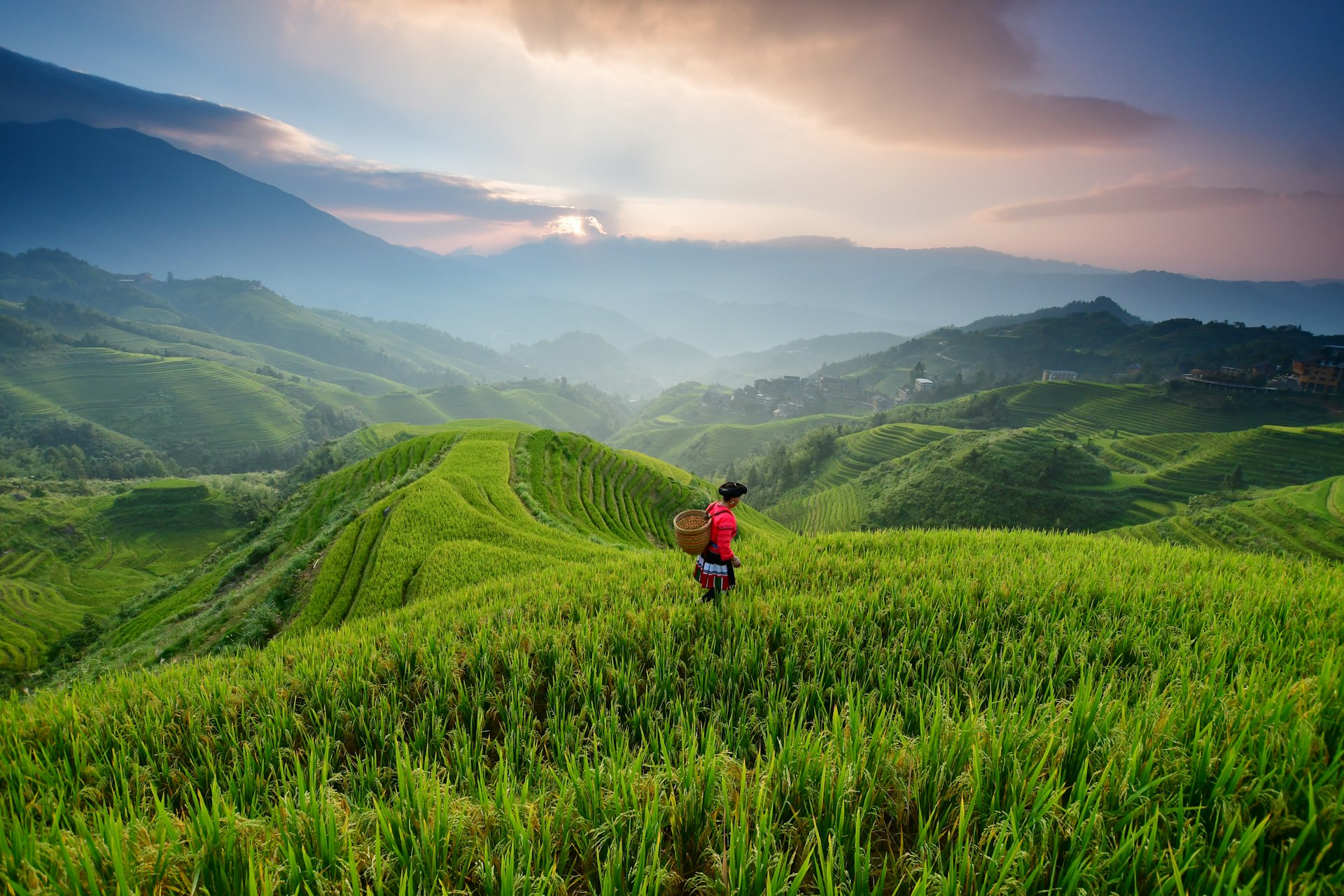
10. Longji Rice Terraces, Guangxi
You'll find rice paddies all over China – but few are as spectacular as the ones in Longji , built against a backdrop of lush mountains. Walks here lead to viewpoints overlooking sculpted, iridescent green terraces with swirling patterns resembling the contours of a giant thumbprint.
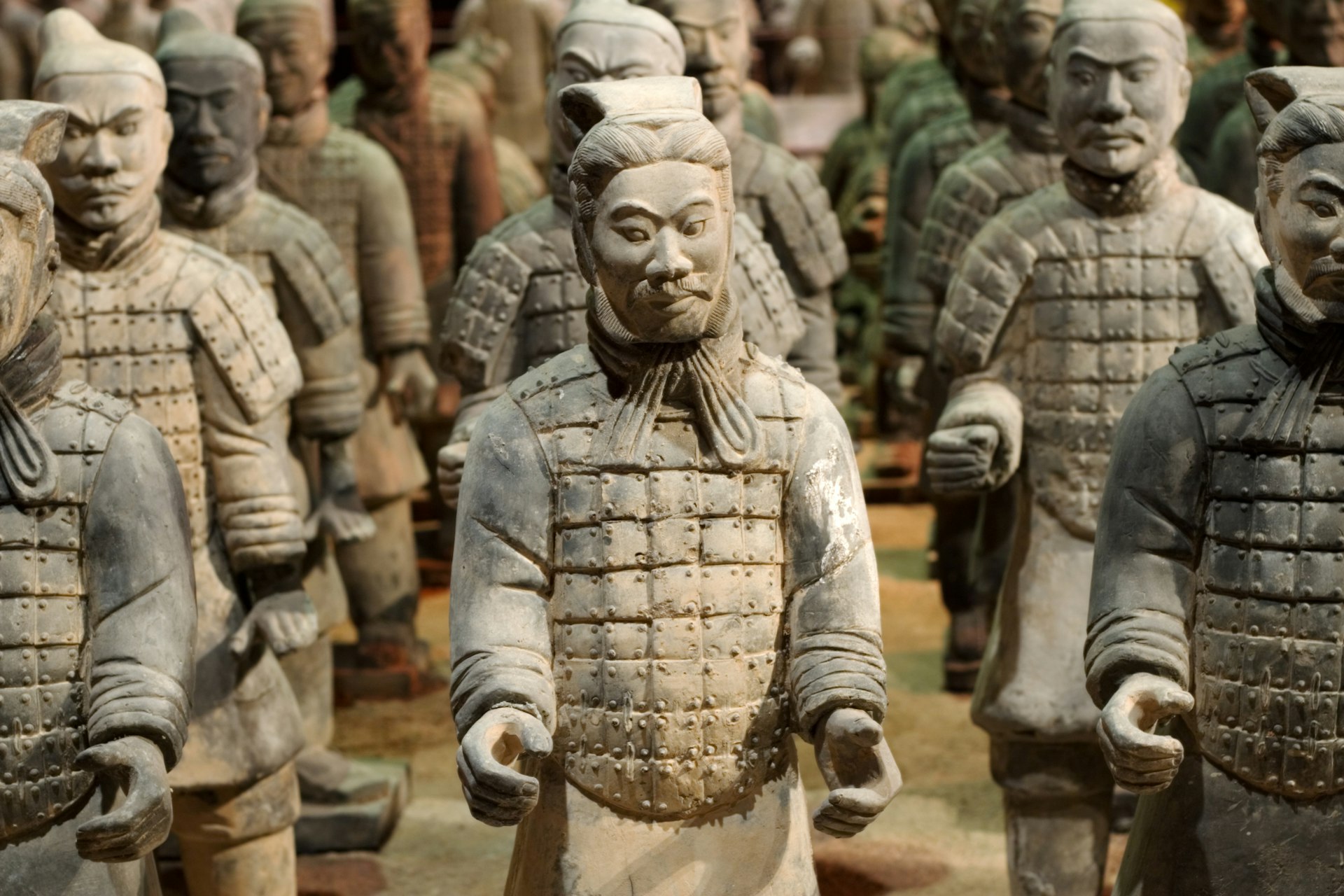
11. Terracotta Warriors, Xi'an
Unearthed in Xi'an by unsuspecting rural workers in 1974, this enigmatic army of life-sized statues remains of the world's most remarkable archaeological finds. Dating back 2200 years, they were built to protect the underground tomb of Emperor Qin Shi Huang. Needless to say, meeting the warriors face to face is an experience you'll never forget.
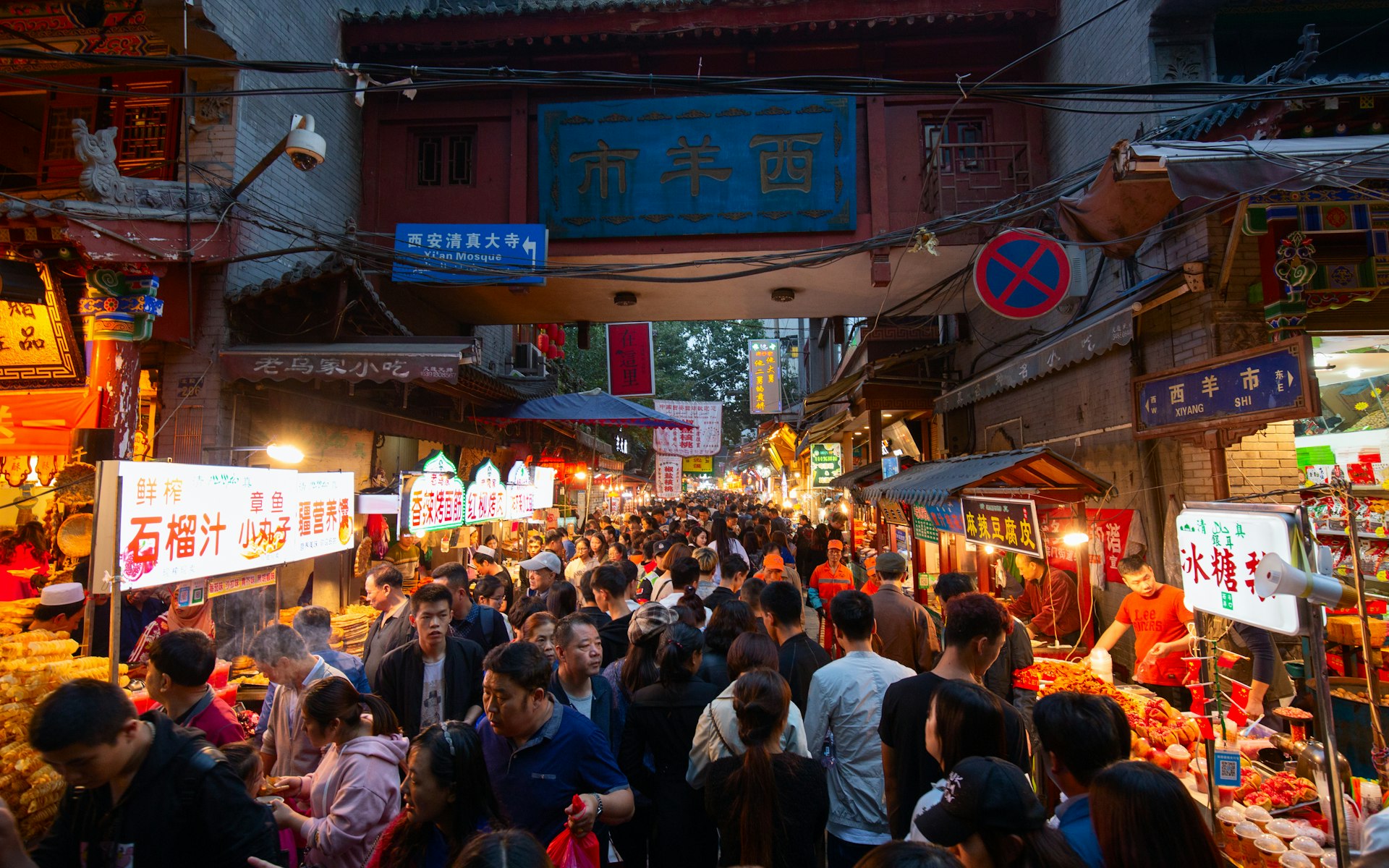
12. Xi'an
In a country where cities seemingly spring up overnight, this is one of the oldest and grandest. Known to most for its extraordinary Terracotta Warriors, Xi'an is also remarkable in its own right – notably as the beginning of the Silk Road, a trade route with a legacy that remains intact within its atmospheric Muslim Quarter .
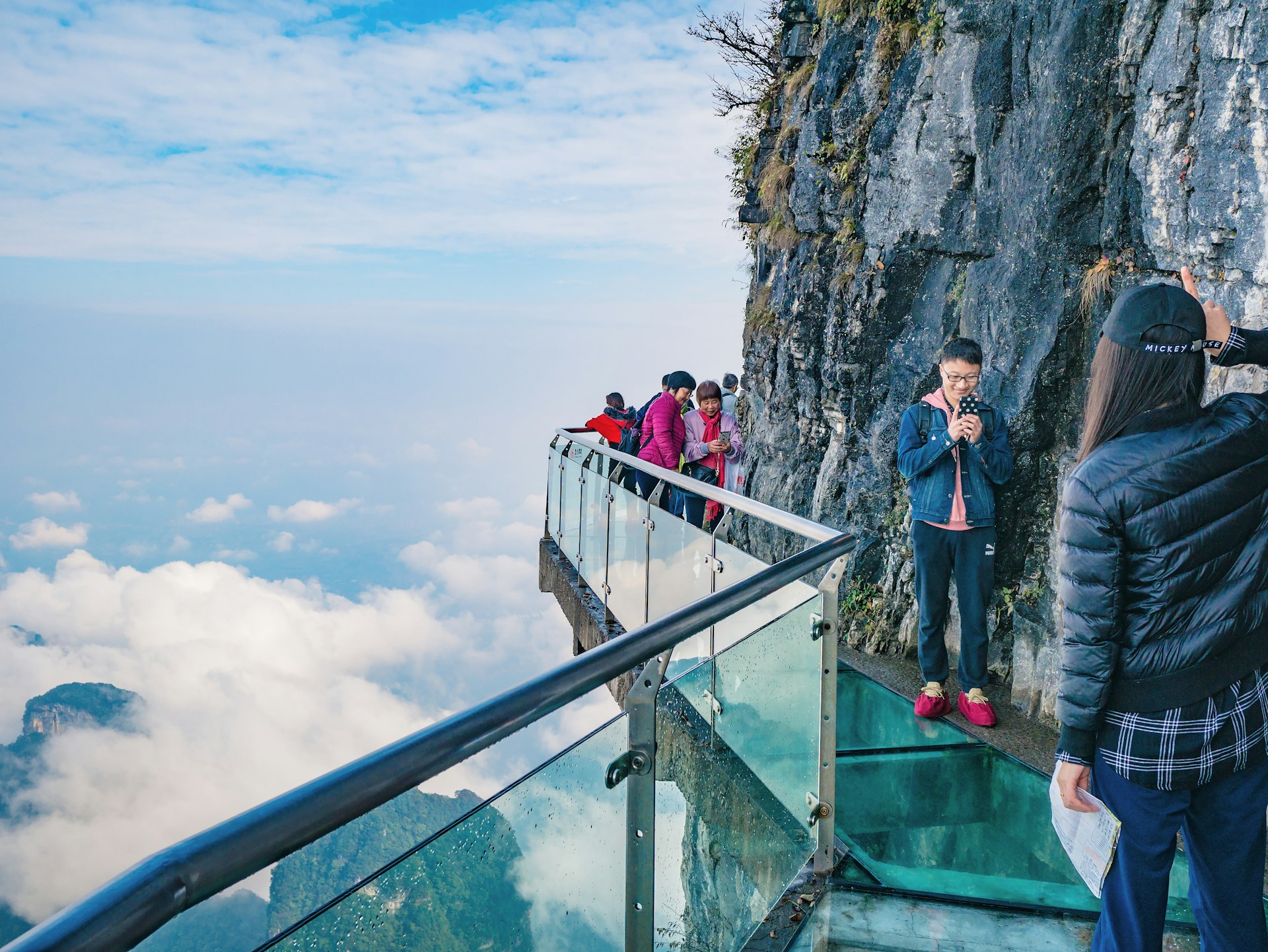
13. Zhangjiajie
Rising dramatically from the subtropical forests of northwest Hunan , the pinnacle rock formations of Zhangjiajie inspired the scenery in the film Avatar (2009). Take it all in as you walk over a vertiginous glass-bottom suspension bridge floating 300m (984ft) above ground. If that's not daring enough, you can bungee jump off it, too.
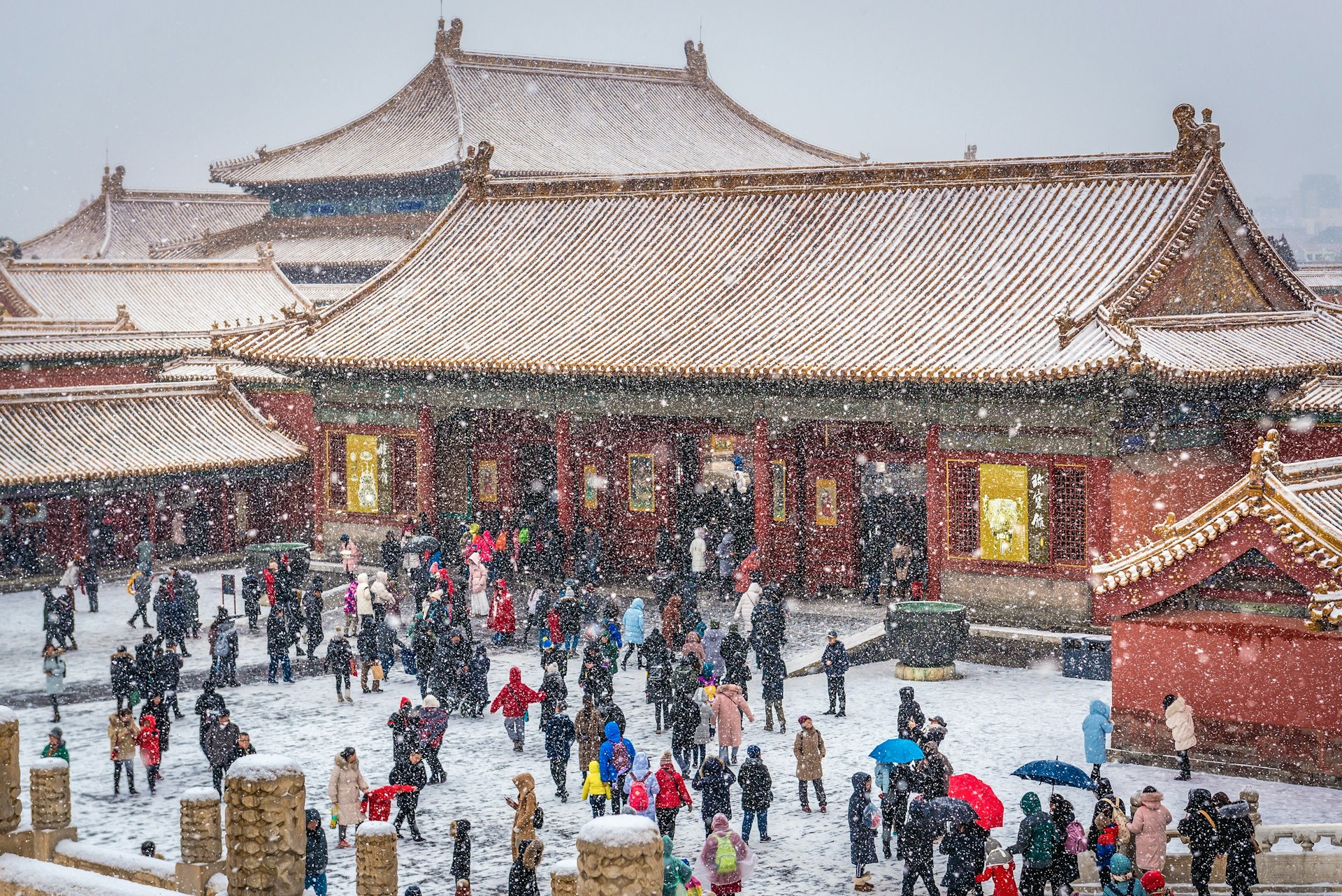
14. Forbidden City, Beijing
Among China's imperial sights, none can compare in size, grandeur or mystique to Beijing's Forbidden City . Built between 1406 and 1420, this sprawling palace was off-limits for 500 years until the overthrow of the last Qing emperor in 1911. Today, it's very much open to the public, attracting nearly 20 million visitors each year. Despite the crowds, its massive scale remains humbling.
This article was first published October 2021 and updated February 2024
Explore related stories
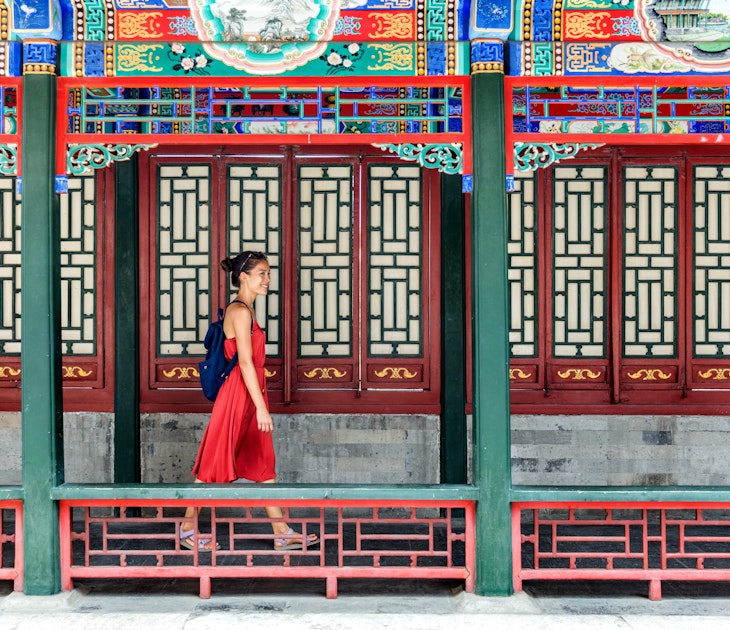
Feb 23, 2024 • 8 min read
Eat street food, explore old neighborhoods, find the less-visited parts of familiar sites and shop for (non)antiques: our guide to the best of Beijing.
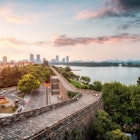
Jun 2, 2022 • 6 min read

Mar 8, 2022 • 7 min read

Oct 29, 2021 • 11 min read
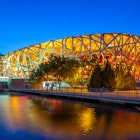
Jul 22, 2021 • 3 min read

Jan 28, 2021 • 5 min read

Oct 20, 2020 • 13 min read
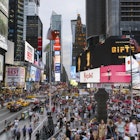
Sep 18, 2020 • 6 min read
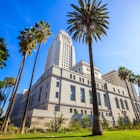
Sep 7, 2020 • 10 min read
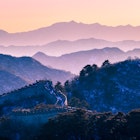
Sep 2, 2020 • 5 min read
- 86-19138970032 (GMT+8 18:00~09:00)
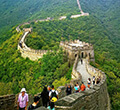
- Beijing Xian Tours
- Shanghai Beijing Tours
- Hong Kong Guilin Tours
- Hangzhou Suzhou Tours
- Kunming Lijiang Tours
- Shanghai Yangtze Cruise Tours
- Chengdu Tibet Tours
- More Short Stay Tours
- China Tours in January
- China Tours in February
- China Tours in March
- China Tours in April
- China Tours in May
- China Tours in June
- China Tours in July
- China Tours in August
- China Tours in September
- China Tours in October
- China Tours in November
- China Tours in December

- High Speed Trains
- China Yangtze Cruise Tour
- Photography
- Desert Adventure
- Ethnic Villages
- Biking Tours
- Kung Fu Tours
- Heritage Sites Exploration
- China Spring Tours
- China Summer Tours
- China Autumn Tours
- China Winter Tours
Notice! 2024 available cruise routes include 4~5 days Chongqing-Yichang(most classic) and 11~12 days Chongqing-Yichang-Shanghai(limited).
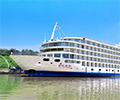
- Best-value Yangtze Cruises
- Top Family-friendly Cruise Ships
- Top 3 Luxury Yangtze River Cruises
- Yangtze River Highlights
- Yangtze River Cruise Routes
- Upstream or Downstream?
- Dining & Drinking
- Accommodations
- On-board Activities
- Yangtze Cruise Booking Steps
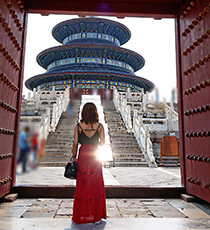
- Inner Mongolia
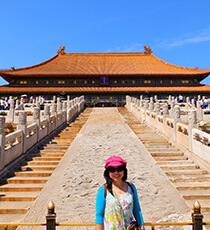
- Fanjingshan
- How to Plan Your First China Tour
- How to Plan Beijing Tour
- How to Plan Xian Tour
- How to Plan Shanghai Tour
- How to Plan Guilin Tour
- How to Plan Sichuan Tour
- How to Plan Family Tour
- 2024 China Travel Ideas
- Best Time to Visit China
- What to Pack for Your China Journey
- Updated China Travel News
- Ultimate Chinese Visa Guide
- Chinese Visa Types
- Chinese Visa Requirements
- Do I Need a Visa for China
- Chinese Visa Application
- Chinese Visa Exemptions
- 144-hour Visa Free
- Shenzhen Visa on Arrival
- Hainan 30-day Visa Free
- Embassies & Consulates
- Invitation Letter
- Useful Visa FAQs & Tips
- Entry Regulations
- Baggage Allowance
- Customs Declaration
- Exit Regulation
- How to Book Train Tickets
- How to Collect Train Tickets
- How to Cancel & Alter Train Tickets
- How to Read Train Tickets
- China High Speed Train Types
- Seats Class & How to Choose
- Friendly Facilities on the Train
- The Train Station Departure Process
- Available Food and Drinks on the Train
- Western Toilets on the Train
- Luggage Racks & Baggage Allowance
- Beijing Train Stations
- Shanghai Train Stations
- Guilin Train Stations
- Xian Train Stations
- Chengdu Train Stations
- Hong Kong West Kowloon Railway Station
- Beijing - Xian
- Beijing - Shanghai
- Guangzhou - Shanghai
- Shenzhen - Shanghai
- Chengdu - Xian
- Shanghai - Hangzhou
- Shanghai - Xian
- Chengdu - Chongqing
- Kunming - Lijiang
- Beijing Capital International
- Beijing Daxing International
- Shanghai Pudong International
- Shanghai Hongqiao International
- Guangzhou Baiyun International
- Hangzhou Xiaoshan International
- Chengdu Tianfu International
- Chengdu Shuangliu International
- Xian Xianyang International
- Shanghai - Beijing
- Hong Kong - Shanghai
- Guangzhou - Beijing
- Chengdu - Lhasa
- Shanghai - Guilin
- Shanghai - Sanya
- Travel in Spring Season
- Travel in Summer Season
- Travel in Autumn Season
- Travel in Winter Season
- Weather in January
- Weather in February
- Weather in March
- Weather in April
- Weather in May
- Weather in June
- Weather in July
- Weather in August
- Weather in September
- Weather in October
- Weather in November
- Weather in December
- Top 10 China Destinations
- Top 15 Things to Do
- China World Heritage Sites
- Top 10 Best Natural Beauties
- Top 10 Museums in China
- Top 10 Old Towns & Villages
- Five Great Mountains in China
- Top 10 Monasteries & Temples
- Top 10 Ski Resorts
- Top 10 Beautiful Lakes in China
- 7 Best Beaches in Sanya
- Top 6 Beautiful Waterfalls
- Panda Volunteering
- Having fun on Ice and Snow Festival
- About Us Who We Are Our Team Why Travel with Us Feedback & Reviews Travel Stories Travelers' Gallery Payment Guide Customer Support Contact Us
- Tour Experiences
Destinations
- Travel Guide
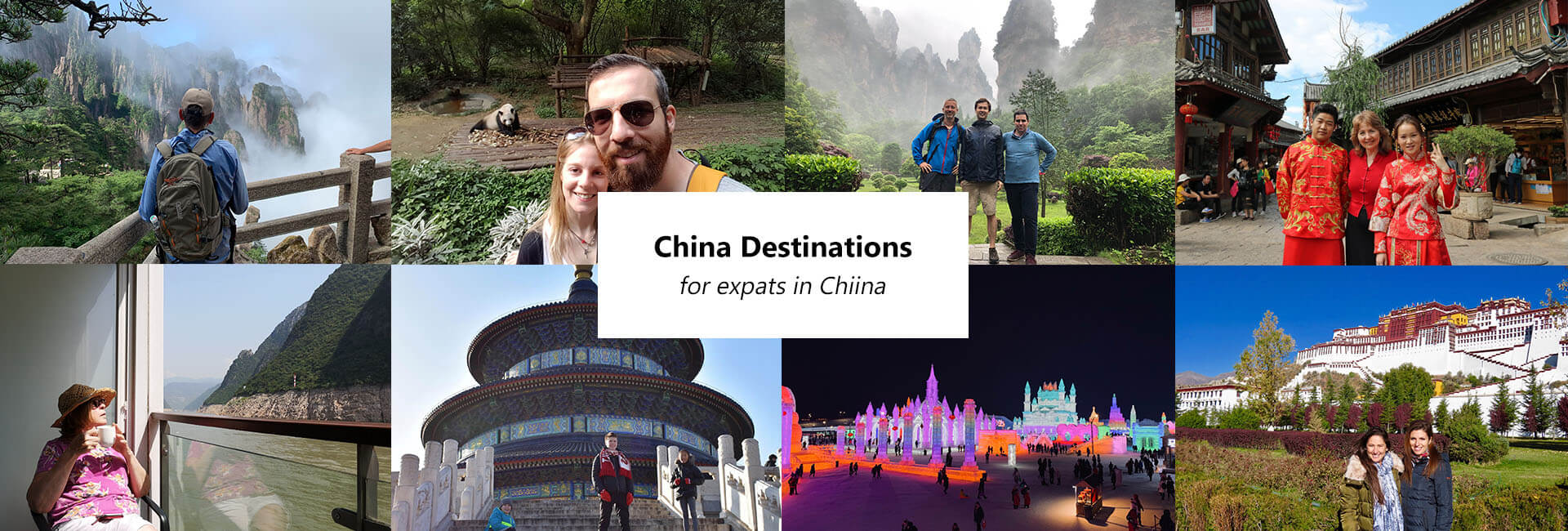
Best Places to Visit for Expats in China
No matter you are in China for business, study or permanent living, you are highly suggested to make maximize use of your weekends and holidays to explore this wonderful country. Maybe getting up close to the incredible landscapes is your preference? Are you interested in the unique culture of the Great Wall, Kung Fu and ancient army? Or do you want to take your taste buds on a trip by sampling Chinese specialties? China offers all of this and more.
Here are up-to-date lists of Best Places to Visit in China for China Expats . All are voted completely by over 20,000 foreigners in China.
China Icons
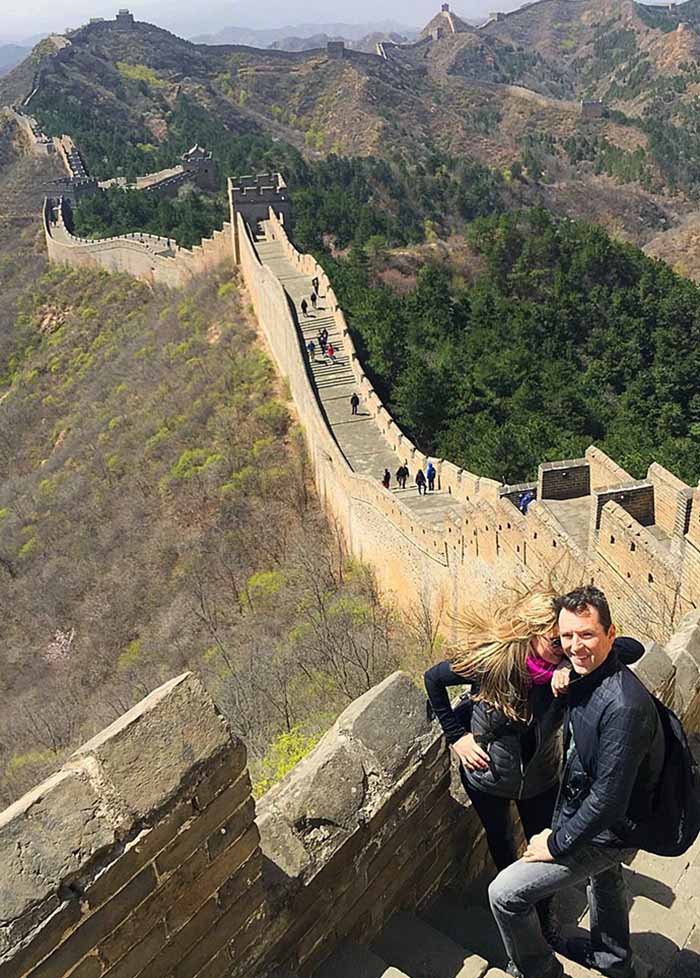
Best China Tours for Expats in China:
- ☛ 3 Days Classic Zhangjiajie Natural Wonders Tour
- ☛ 2 Days Leisure Chengdu Private Tour with Panda Visit
- ☛ 3 Days Beijing Essential Short Stay Tour
- ☛ 4 Days Jiayuguan Dunhuang Tour (Silk Road Short Break)
For Nature Lovers
Have you been yearning to nature for a long time? China has everything for you, from the majestic gorges to towering Kast Mountains, magical avatar mountains to holy snow mountains, breathtaking Yellow Mountain to beautiful Rainbow Mountains, stunning rivers to pure alpine lakes, otherworldly stone forest to spectacular waterfalls, and so on.
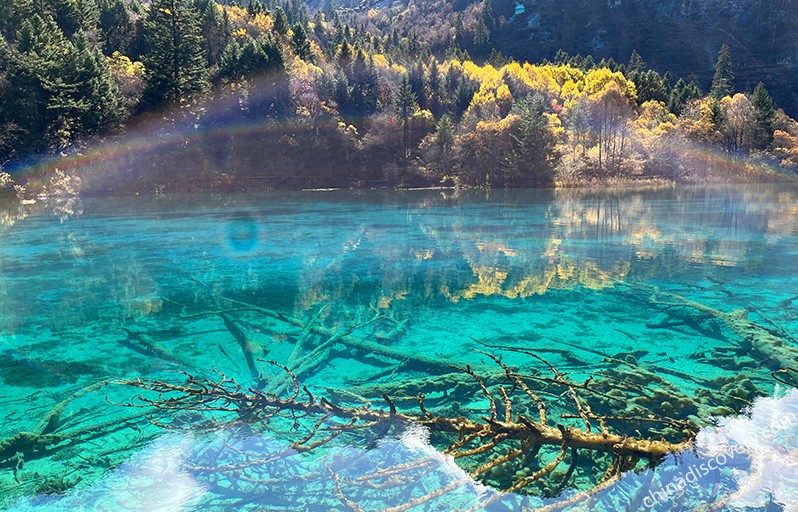
- Guilin Guilin's Scenery is the best under heaven! This ideal place always drives tourists crazy with majestic Karst Hills, emerald rivers…
- Yellow Mountain "No mountain is worth seeing after a trip to Yellow Mountain". Yellow Mountain, or called Huangshan, is the most beautiful mountain in China!
- Zhangjiajie Avatar Mountains are calling! Here in Zhangjiajie, you can get up close to thousands of magical Avatar pillars!
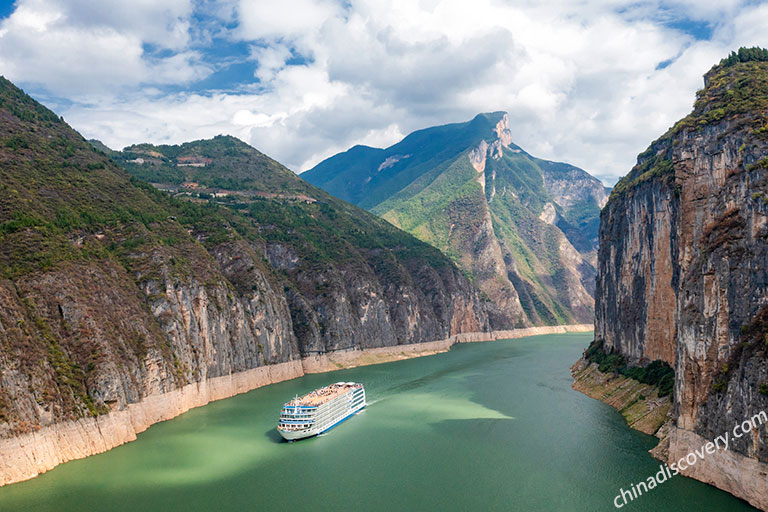
- Guizhou Guizhou has China's largest waterfall - Huangguoshu Waterfalls, a rising star among mountaineers - Fanjingshan…
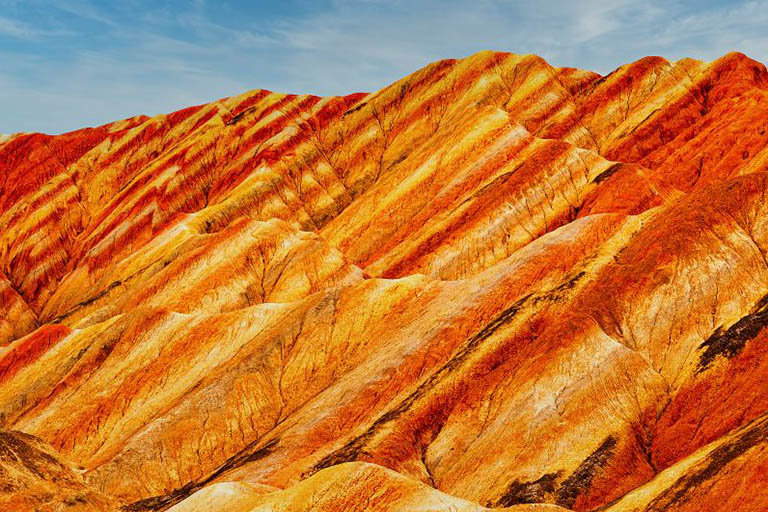
- Daocheng Yading Daocheng is praised as the Last Pure Land on Our Planet! It has superb snow mountains, ice glaciers, alpine lakes, valleys…
- Hangzhou When it comes to the most beautiful lake in China, Hangzhou West Lake usually tops the list. Mountains of tea plantations in this city are also amazing!
- Kunming Kunming, the spring city with pleasant weather all year round, is also rich in natural wonders like the stone forest, red land…
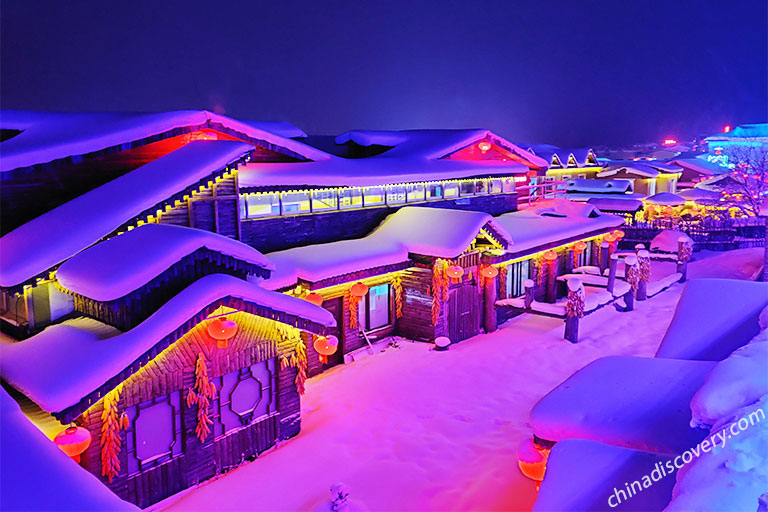
Best China Tours for Nature Lovers
- ☛ 3 Days Classic Jiuzhaigou Tour
- ☛ 4 Days Guilin Highlights Tour
- ☛ 3 Days Huangshan Highlights Leisure Tour
- ☛ 3 Days Classic Fanjingshan Tour
- ☛ 5 Days Kunming, Jianshui & Yuanyang Rice Terraces Tour
For Chinese History & Culture Fans
With as long as 5,000 years of history, China has abundant of cultural museums and heritages to explore. It is because of its long history and splendid culture that every year China attracts flocks of visitors to come and travel around. If you are also Chinese culture fans, simply visiting museums isn’t always enough. You’ll get the most satisfactions out of ruins of ancient times in front of you and visiting places that once the capital and prosperous hub in the past. Getting close to its historic cities and sites is like opening a door to trace the mysterious and splendid past. And in China, the cities below are the top picks to trace its past.
- Beijing From the world-class Great Wall to spectacular Forbidden City, Beijing, of course, always tops the travel list of Chinese culture fans.
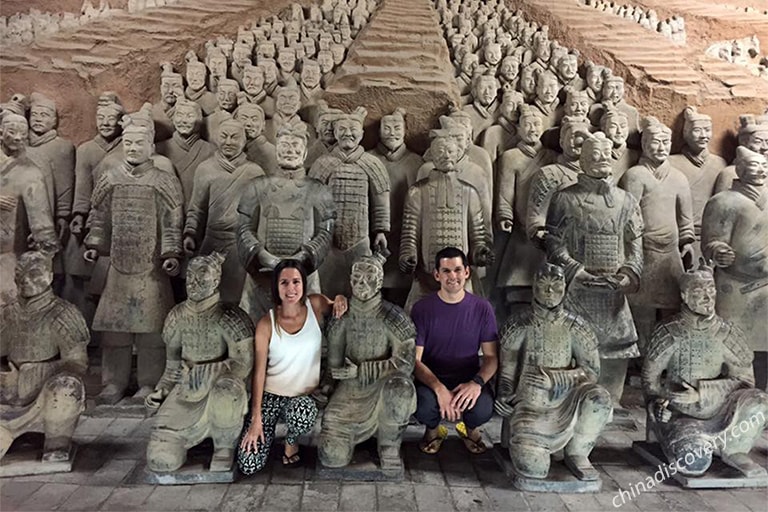
- Lijiang Lijiang Old Town is one of the four best well-preserved ancient towns in the whole China. Lijiang also has Baisha Village, Shuhe Ancient Village…
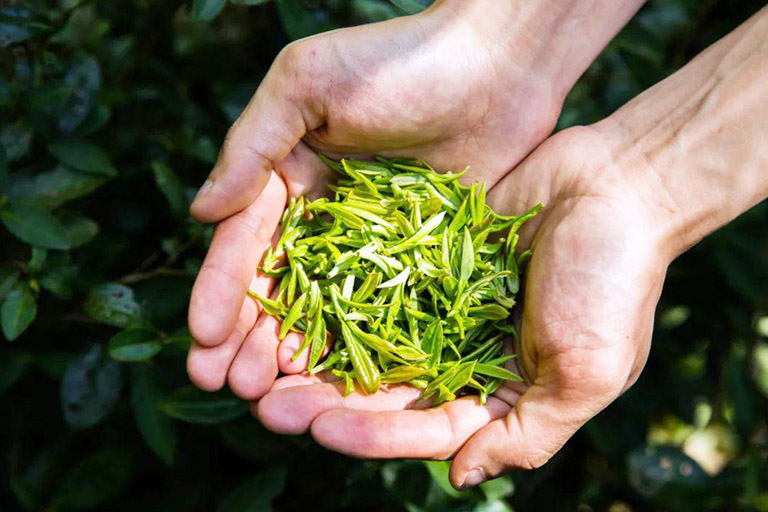
- Suzhou "Suzhou Gardens are the finest under heaven". Suzhou City has a flavor of elegance everywhere, from the classic gardens to water towns, silk factories to ancient streets…
- Foshan Fungfu Fans? Why not add Foshan, the Hometown of Marital Arts, into your trip? You can learn the stories of many martial arts masters here, including Bruce Lee!
- Shaolin Temple Shaolin Temple is the birthplace of Chinese Kung Fu that you see in many Kung Fu movies. Here, you can join the Kung Fu classes and enjoy Kung Fu shows.
- Kaili If you are curious about the minority culture in China, or want to visit some well-preserved minority villages, Kaili is one of the best choices.
- Leshan Leshan Giant Buddha is a must-visit for all Buddhist devotees. This stone Buddha is the tallest in the world!
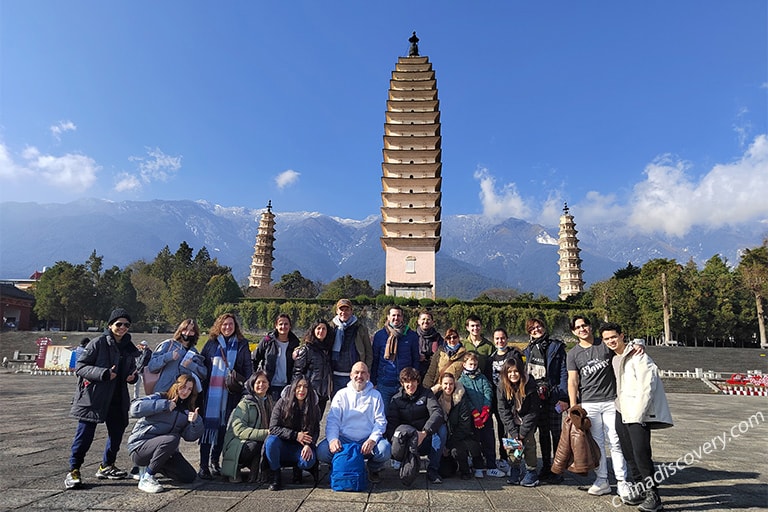
Best China Tours for Chinese History & Culture Fans
- ☛ 2 Days Beijing Layover Highlights Tour
- ☛ 3 Days Classic Xian Tour
- ☛ 3 Days Romantic Lijiang Tour with Visits to Naxi Kingdom
- ☛ 3 Days Essence of Luoyang Tour
- ☛ 3 Days Best Dunhuang Culture and Scenery Tour
- ☛ 3 Days Kaili Minority & Cultural Experience Tour with Xijiang Miao Village
For Families
If you are in China with your kids and searching for places to spend your weekends and holidays, choices are a lot. You can visit the China Icons like Great Wall and pandas, sail the picturesque Yangtze River or Li River and marvel at the Avatar Mountains in Zhangjiajie and so on.

- Xian Terracotta Warriors and Horses, Ancient City Wall, Muslim Quarter, Giant Wild Goose Pagoda , Bell Tower, Drum Tower… Everyone can have fun in Xian.
- Yangtze River The classic Yangtze River cruises take 4~5 days. If you have more days, you can have an in-depth visit of 11~15 days. Everything is perfectly arranged for your family.

- Zhangjiajie Floating Avatar Mountains, Zhangjiajie Glass Bridge, Yellow Dragon Cave, nearby tranquil Fenghuang Ancient Town…
- Chengdu Everyone loves adorable Pandas! And in Chengdu, you can not only admire their lovely looks in a distance but also be a one-day keeper to feed them...
- Yangshuo Guilin’s scenery is the best under earth, and the landscape in Yangshuo is the best in Guilin. Yangshuo is an ideal place to take a glimpse of Chinese countryside!
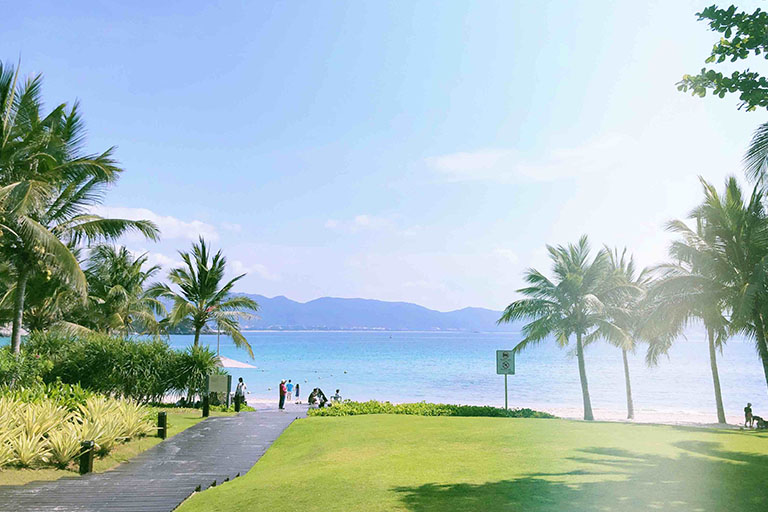
- Xiashuangbanna Featured with large groups of plants and wild animals and a strong flavor of tropical and South East Asian, Xishuangbanna is a popular tourist land for families.
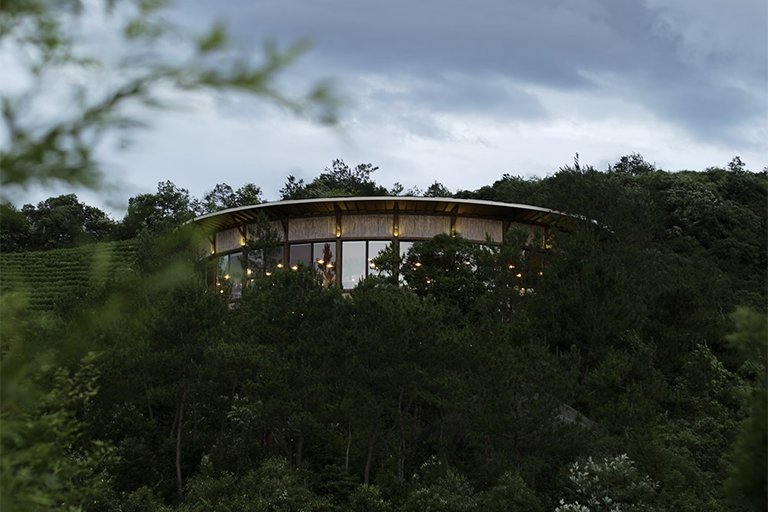
Best China Tours for Families
- ☛ 4 Days Beijing Family Tour with Kids Fun
- ☛ 2 Days Xian City Break
- ☛ 3 Days Classic Guilin Tour
- ☛ Days Best Shanghai Family Holiday Tour
For Hiking Aficionados
Looking for some amazing accesses to wonderful mountains, gorges and so on by your steps? No matter you are beginners or experienced hikers, China can perfectly fulfill your dreams. There are notable great wall, popular Yellow Mountain, adventurous Mount Kailash, little-known Yubeng and so forth for you to choose!
- Great Wall "He who has not climbed the Great Wall is not a true man"! There are top 7 sections of great walls are calling, including Mutianyu, Jinshaling, Badaling, Simatai, etc.
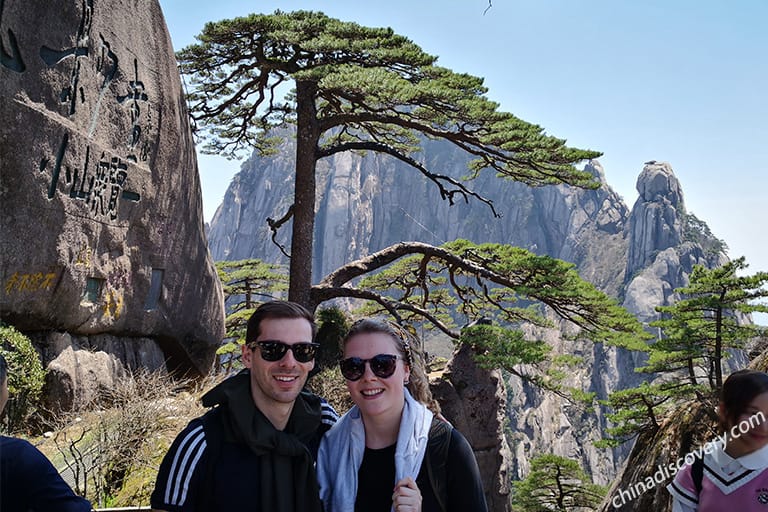
- Tiger Leaping Gorge The Tiger Leaping Gorge hiking trail is one of the most famous routes in the world! It is a totally natural one winding through the hillside and cliffs high above a gorgeous gorge.
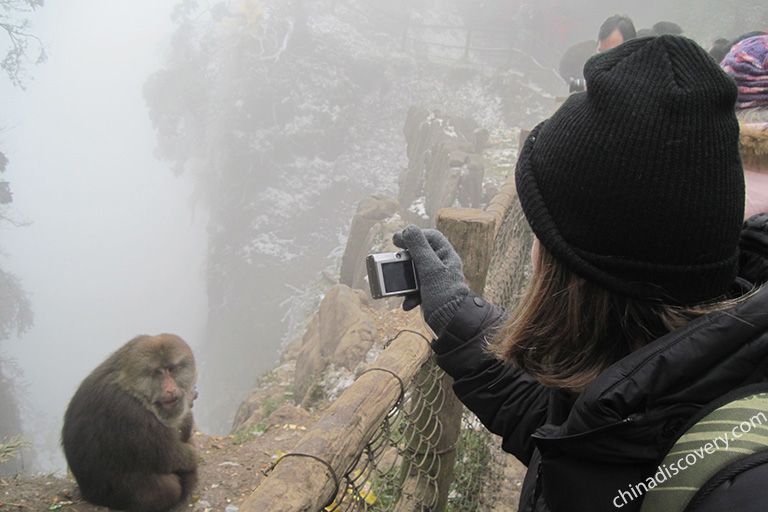
- Mount Siguniang The beautiful Mount Siguniang provides diverse of hiking opportunities, from leisure hiking to top professional hiking to the summits of Snow Mountains.
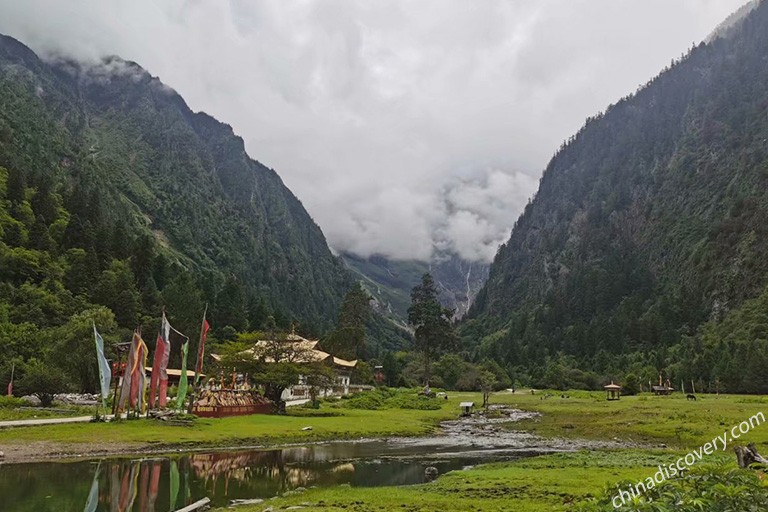
Best China Tours for Hiking Aficionados
- ☛ 2 Days Mutianyu and Jinshanling Great Wall Hiking
- ☛ 3 Days Tiger Leaping Gorge Hiking Tour
- ☛ 2 Days Mount Emei Leisure Hiking Tour from Chengdu
- ☛ 3 Days Xian Mount Huashan Leisure Tour
For Foodies
Every city in China offers diverse delicious dining options. You can of course treat your taste mud with excellent dishes in the city you are living or working. However, if you want some authentic tastes of specialties of different regions, you can head to Chengdu for Sichuan Cuisine dishes like Kung Pao Chicken, to Chongqing for Nine-grid hot pot, to Shunde for excellent Cantonese Cuisine, to Xian for various kinds of cooked wheaten food…
- Chengdu Chengdu is the capital of Sichuan, the province where many notable dishes like including Mapo Tofu, Twice Cooked Pork and Gong Bao (yes Kung Pow) Chicken originate.
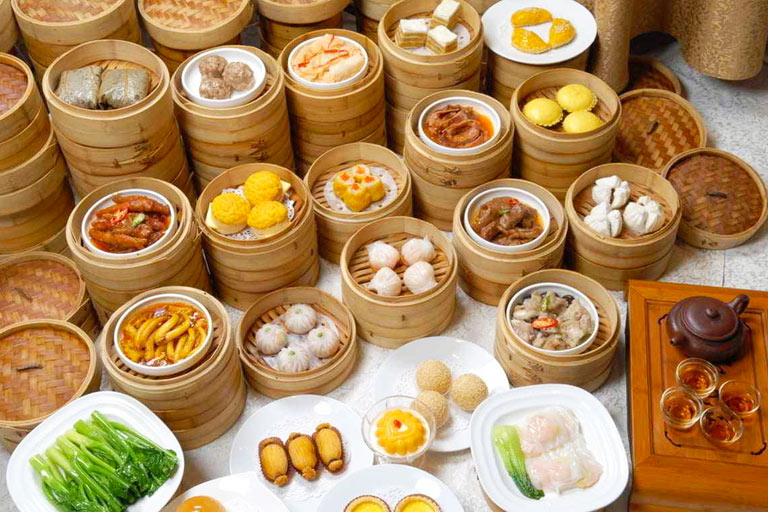
- Beijing Everyone knows Beijing Roast Duck! Instant-boiled Mutton is also delicious. You may also like the unique Fermented Mung Bean Juice, Rolling Donkey, Pea Flour Cake…

- Chongqing The hot pot meals in Chongqing, the Hot Pot City in China, are considered to the best and most beloved. You can throw almost any ingredient into the hotpot.
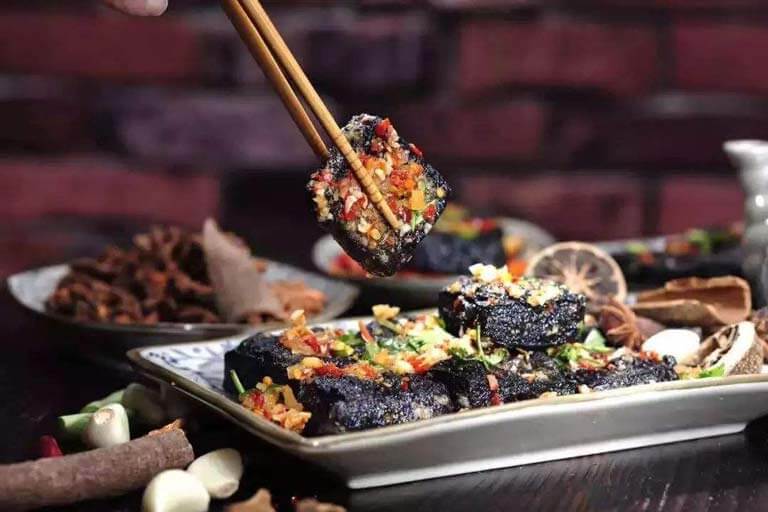
Best China Tours for Foodies
- ☛ 2 Days Best Chengdu Food Tour with City Sightseeing
- ☛ 5 Days Brilliant Lingnan Culture & Food Tour
- ☛ 4 Days Beijing Food Hunting Tour
For Photography Enthusiasts
Photography is a great way to record the beautiful China and forever keep your memories during your travels in China. No matter you are professional photospheres with superb photographic "guns" or shutterbugs who just want some interesting Instagram images, China never let you down. From the sprawling mountains to the scenic beaches, idyllic rice terraces to never-ending meadows, China is full of great places to press your shutter.
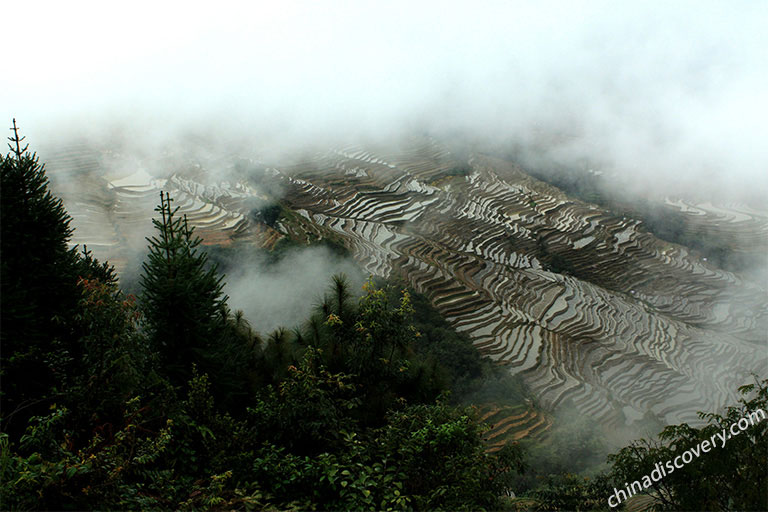
- Longji Rice Terraces Longji Rice Terraces in Guilin is not only famous for its huge size and traditional minority culture, but also unique terraces in amazing shapes of moons, phoenixes, dragons...

Best China Tours for Photography Enthusiasts
- ☛ 4 Days Xiapu Mudflat Photography Tour
- ☛ 4 Days Yuanyang Rice Terrace Awesome Photography Tour
For Modern Charms Philatelists
Looking forward to visit the modern cities to experience the rapid development of China or to feel the most state-of-the-art high-techs? There are also a lot of recommendations in China.
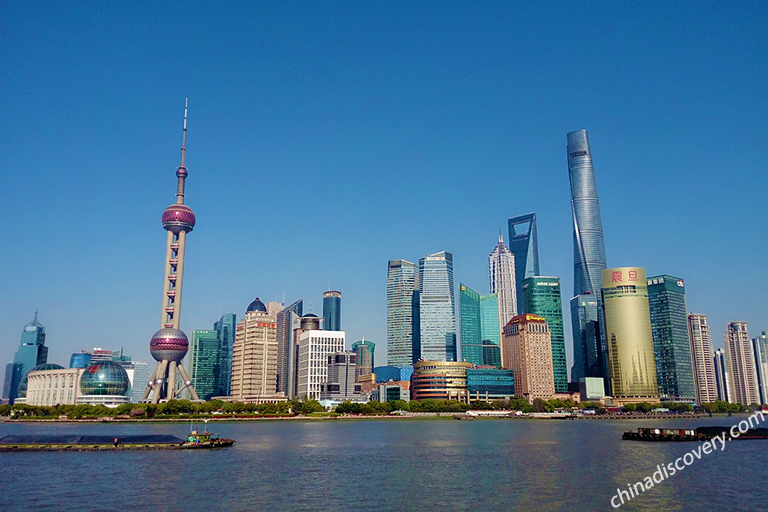
- Hong Kong From high-end shopping malls to colorful recreation venues, luxury cruises to stunning skyline, every corner in Hong Kong gives you perfect explanations about modern.
- Shenzhen Shenzhen is regarded as an incubator for cutting-edge design, a rule-breaking tech hub and a bastion of next-gen urbanism. High-tech stories usually starts here!
- Guangzhou Guangzhou is at the forefront of modern living, but is not that crazy as Shanghai and Shenzhen. Shopping and dining sprees there are great!
Best China Tours for Modern Charms Philatelists
- ☛ 3 Days Shanghai Past and Present Contrast Tour
- ☛ 2 Days Essence of Hong Kong Tour
- ☛ 2 Days Shenzhen Short Stay Tour with All Essences
Helpful China Expats Travel Guide
- Weekend Trips from Beijing
- Weekend Trips from Shanghai
- Shanghai Day Tours 2024
- Weekend Trips from Chengdu
- Weekend Trips from Guangzhou
- Weekend Trips from Shenzhen
- Weekend Trips from Hangzhou
- Weekend Trips from Suzhou
- China Expats Travel Tips
Recommended China Tours for Expats 2024
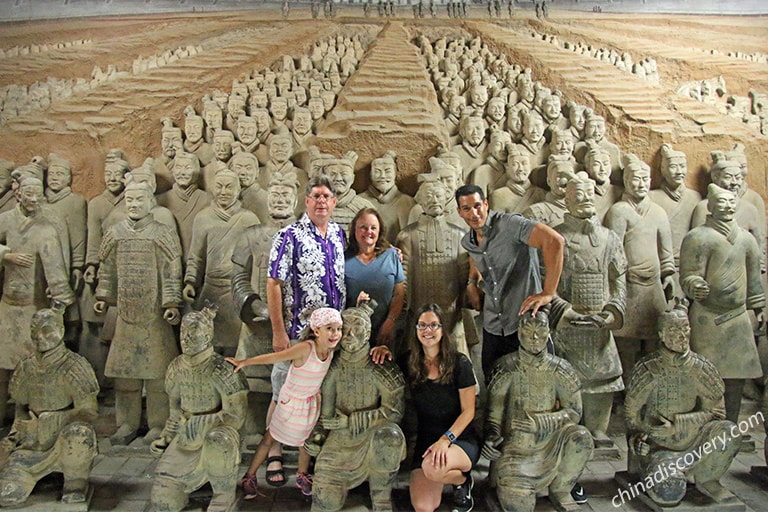
This is the most popular China tour to Beijing, Xian and Shanghai to visit the most iconic China attractions - Great Wall, Terracotta Warriors, The Bund, etc., and explore great of both China’s past and present.
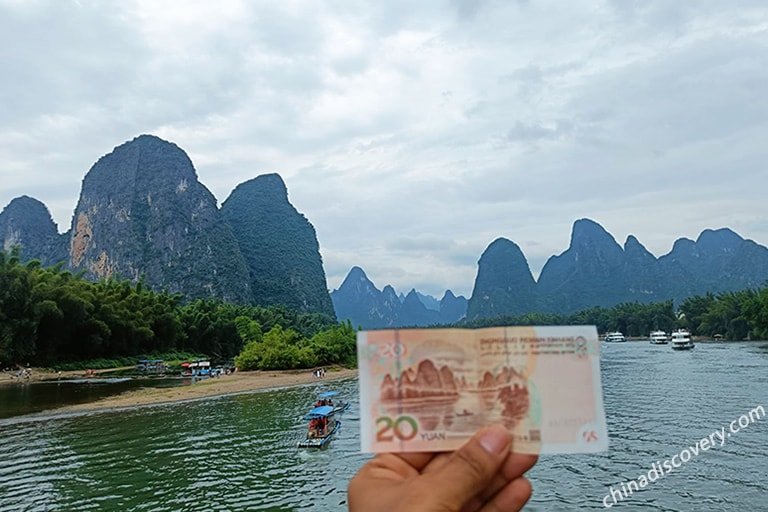
With the Golden Triangle plus the fabulous Karst and countryside scenery of Guilin, this tour leads you to top 4 destinations anyone cannot miss out in China especially for the first-timers.
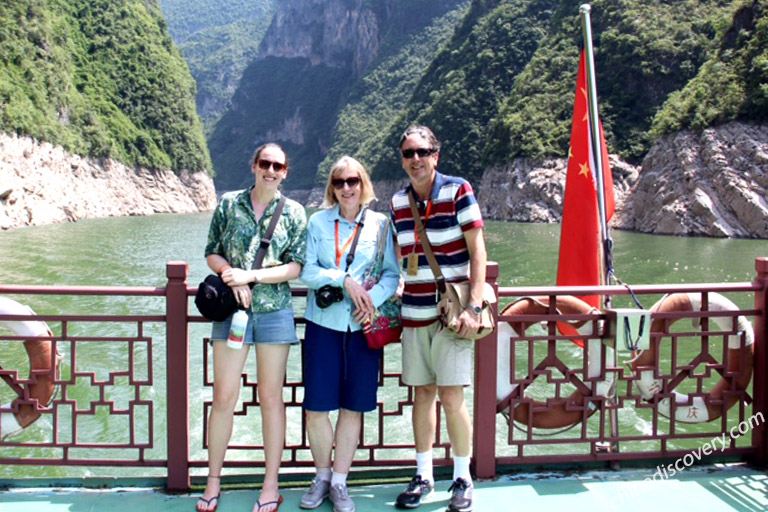
Travel from north to south China, meet stunning nature and culture, urban and countryside scenery with relaxing cruise experience on the beautiful Yangtze River.
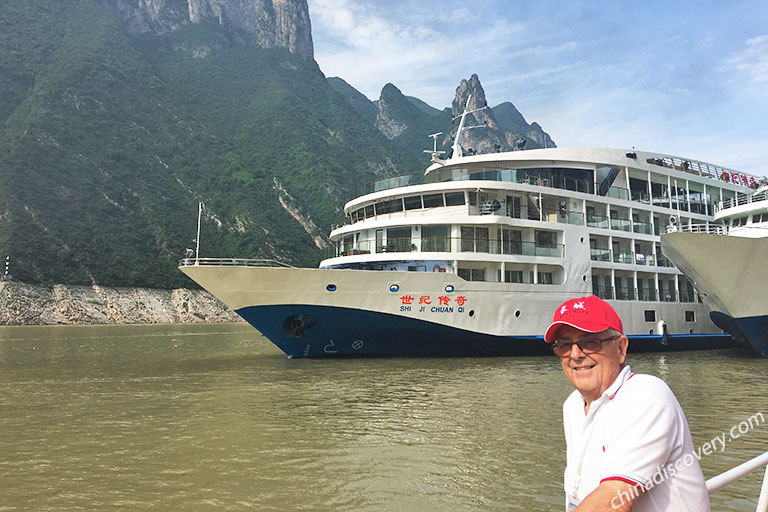
Coverinng top highlights in China to please your eyes, ease your spirit, witness grand and beautiful landscape in special ways.
Start planning your tailor-made holiday to China by contacting one of our specialists. Once inquired, you’ll get a response within 0.5~23.5 hours.

Have a question? Get answers from our travel experts or guests
- Your Question:
- Your Email:
- Affordable and valuable price
- 100% tailor-made packages
- Highly rated customers reviews
- Efficient customer support
China Tours
- Top 10 China Tours
- Classic China Tours
- China Tours from Beijing
- China Tours from Shanghai
- China Tours from Hong Kong
- China Tours from Chengdu
- Short China Trips
- Customize China Tour
- China Panda Tours
- Family Tour with Kids
- High-Speed Train Tour
- Silk Road Travel
- Yangtze River Cruise
- Hiking & Trekking Tours
- Photography Tours
- China Minority Travel
- Beijing Shanghai Tours
- Shanghai Yangtze Tours
- Chengdu Jiuzhaigou Tours
- Chengdu Lhasa Tours
- Suzhou Hangzhou Tours
- Guilin & Yangshuo
- Zhangjiajie
“Very good experience”
“WONDERFUL 25 DAYS IN CHINA - PRIVATE TOUR”
“Awesome China tour from northeast to southwest”
Any questions, please email us at: [email protected] or call us at: 86-19138970032 (Monday-Friday 9 a.m. to 6 p.m. GMT+8)
- Terms & Condition
- Privacy Policy
- Customer Support
Copyright © 2011-2024. All rights reserved.
Cookie policy
We use cookies to give you the best experience on our website. Continue using our website means you agree with our cookie policy. For more info, please read here .

- INSTITUTIONS
- China Tourist Visa
- Here are the documents you are to prepare before submission of visa application
- Getting a visa
- Consular Authentication of Documents in China
- Notice of port visa application procedures for foreigners
- Do I need a visa?
- FAQs about China's port visas
- Other frequently asked questions about Chinese visa
- How can a foreigner travel in China on his own vehicle?
- What documents are needed to apply for group tourist visas?
- What are the requirements for 72-hour transit visa exemption?
Copyright© www.gov.cn | About us | Contact us
Website identification code bm01000001 registration number: 05070218, all rights reserved. the content (including but not limited to text, photo, multimedia information, etc) published in this site belongs to www.gov.cn., without written authorization from www.gov.cn, such content shall not be republished or used in any form..

Copyright© www.gov.cn | Contact us
Website identification code bm01000001, registration number: 05070218.
Nomadic Matt's Travel Site
Travel Better, Cheaper, Longer
China Travel Guide
Last Updated: September 1, 2023
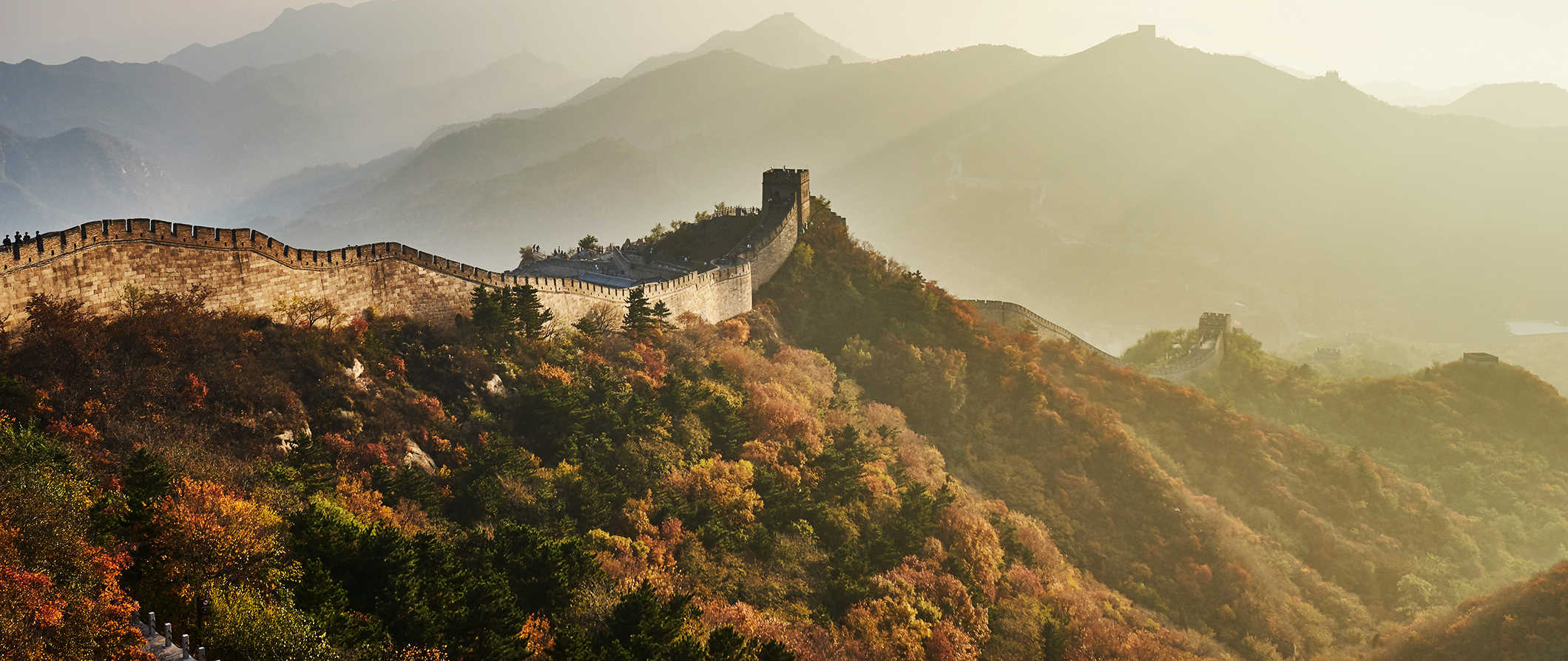
China is a country filled with micro-cultures, languages, cuisines, and ethnicities. Rapid change has attracted curious people from around the globe and there is a thriving expat scene for anyone looking to teach overseas.
While I dislike the pollution of many of the big cities, the countryside, the food, people, and the history you’ll discover here will leave you in awe and forever changed. This is a country with layers where everything is filled with meaning and history.
This travel guide to China can help you plan your visit to this gigantic country (there’s over a billion people here covering 9.5 million square kilometers) with advice on things to do, how to get around, stay safe, save money, and much, much more!
Table of Contents
- Things to See and Do
- Typical Costs
- Suggested Budget
- Money Saving Tips
- Where To Stay
- How to Get Around
- How to Stay Safe
- Best Places to Book Your Trip
- Related Blogs on China
Click Here for City Guides
Top 5 things to see and do in china.
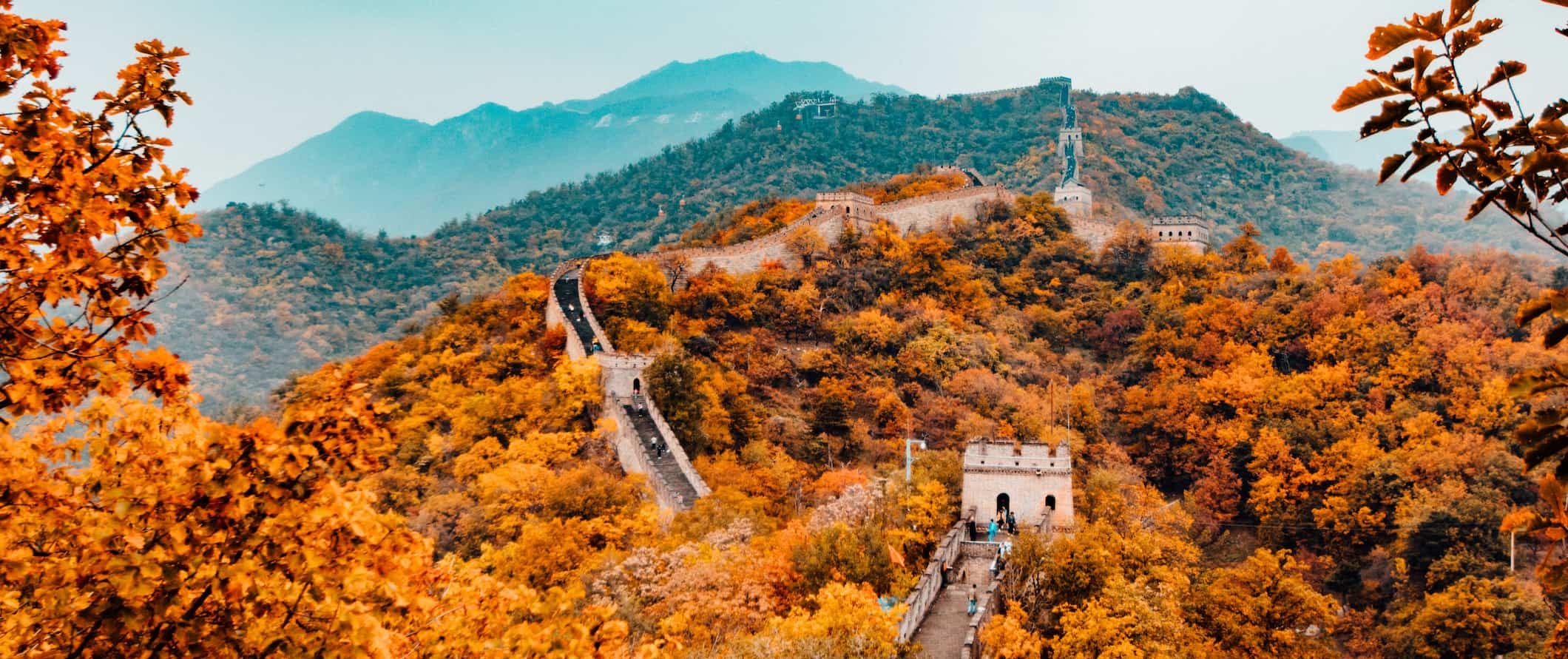
1. Visit Hong Kong
Hong Kong is bustling metropolis that combines high rise buildings with traditional street markets and temples. You have a large expat population, good shopping, fantastic nightlife, and delicious food. It’s one of my favorite cities in the world and I never get tired of visiting!
2. Explore Shanghai
One of China’s largest, busiest, and most visited cities, Shanghai is like visiting the future — fast trains, lights everywhere, efficient organization, and a cosmopolitan vibe. I love Shanghai. To get a sense of historical China, head to the Old City and see the YuYuan Gardens. For some of the best shopping in China, head to Nanjing Road.
3. Wander Beijing
Visit Tian’anmen Square, the Forbidden City, countless shopping malls, the Temple of Heaven, Summer Palace, and of course, the Great Wall. There’s nothing like Beijing in the world, and, though horribly polluted and with awful air quality, it’s still a city you have to visit in order to understand modern China and its dynamism.
4. The Great Wall of China
Stretching over 21,000 kilometers, the Great Wall offers both busy tourist sections as well as secluded ruins (you can even camp beside it in some areas). If you’re on a budget, you can take the public bus to the wall near Beijing. The bus is 12 CNY and admission to the wall is 40 CNY (45 CNY in the summer).
5. See Xi’An
Xi’an is one of the ancient capitals of China and home to the famed Terracotta Army (which is over 2,000 years old), city wall, and architecture of the Muslim quarters. Those three things are pretty much why everyone comes here but there’s also an incredible hike on Mount Hua if you’re looking for adventure.
Other Things to See and Do in China
1. tian’anmen square.
You’ve no doubt seen it in films and on TV, but it is hard to get an idea of the sheer size of this square until you’re standing square in the middle of it. There’s plenty to see here including the Tiananmen Tower, the Great Hall of the People, the People’s Heroes Monument, the National Museum and Mao Zedong’s mausoleum. While you are allowed to take photos in the square itself, you cannot use your camera in the mausoleum.
2. Gorge on food
China is a food lover’s paradise. Eating here will certainly put your take-out back home into perspective. In such a huge country, it’s no surprise that different areas have different culinary delights. It’s entirely possible to enjoy the four styles of Chinese cooking (Cantonese, Beijing, Shanghai, and Sichuan) while on your trip. For spicy food, head to Sichuan or Hunnan in Central China (be sure to try the hot pot while you’re there).
You’ll find more salty items like dried meats and pickled vegetables in the north (where fresh produce is less common) while in cities like Beijing, Hong Kong, and Shanghai you can pretty much find everything!
There are plenty of options for vegetarians in China as well, and even vegans can get by without too much difficulty.
3. Cruise the Li River
For a true sense of natural beauty, cruise down the Li River. The river is 272 miles long and has dozens of places to explore along the way. Some of the best photography spots can be found in Xiaolong, Laozhai Hill, and the karst mountains near Guilin. For tours, prices start at 500 CNY per person, depending on how long (or luxurious) of a cruise you want.
4. Visit the Forbidden City
This famous attraction in Beijing was the imperial palace from the time of the Ming Dynasty to the Qing Dynasty (1420-1912 CE). The “city” covers over 175 acres and is a UNESCO World Heritage Site, welcoming over 16 million visitors each year. Today, the Palace Museum holds artifacts from both dynasties and is a great place to learn about China’s history. The buildings, which cover over 180 acres, have been heavily renovated over the years but it’s still an epic complex worth visiting.
5. Travel (part of) the Silk Road
Dating back over 2,000 years, this unofficial route is a must-see for visitors looking to get off the main tourist trail. There is no “official” road to follow, but you can trace your way along the traditional route as far and wide as you’d like (the Silk Road originally spanned from Chang’an to Romend, Italy). Its total length was over 3,800 kilometers (2,400 miles), half of which was within Chinese territory. Be sure to see the Mogao Caves in Dunhuang, the ancient city of Turpan, and the Rainbow Mountains near Zhangye.
6. Explore Tibet
Also known as “the Roof of the World”, this area is perfect for adventurous travelers that are looking for unique attraction. Explore the snowy mountains, exotic customs, and Buddhism. Tibet has had tumultuous past, so during your visit, it’s wise not to bring up the Dali Lama. The region was annexed by China in the 1950s, forcing the Dalai Lama and his government into exile. Some 400,000 Tibetans were killed directly or indirectly by the occupation, with other estimates placing that number over 1 million. Avoid talking about the history and politics of the region as is it understandably a very sensitive subject for both sides. You’ll need a special permit to visit the region as well.
7. Potala Palace
This Tibetan palace was home to the Dalai Lamas up until 1959, when he was forced to flee or be killed. Established as a holy site in the 7th century, the many halls, temples, and courtyards have been constructed from wood and stone. The current building, which is now a UNESCO World Heritage Site, dates to the 17th-century and has poured copper in its foundation to stabilize it against earthquakes.
8. Take in the Karst mountains
Illustrated on the back of the 20 yuan banknote, these mountains are a stunning sight to see in person. They’re huge! You can take a boat trip down the Li River, and enjoy the breathtaking views of the mountains. You can also rent a bicycle to explore the quieter backroads and take in the picturesque landscape. Prices begin around 20 CNY for a half day. Guilin is a great hopping-off place for this.
9. The Mogao Grottos of Dunhuang
Also known as the Thousand Buddha Caves, these grottos are home to the largest, best-preserved, and richest Buddhist art in the world—the first cave was carved here in 366 AD. There are almost 500 individual temples here and it’s one of the main stops on the Silk Road if you are tracing the footsteps of Marco Polo.
10. Take a free walking tour
All of the major cities in the country offer various types of walking tours, many of which are free and last a few hours. If you want to learn about the history of China’s major cities, this is a great way to start! Whenever I land in a new city, this is how I kick off my trip as it helps me get the lay of the land. Free walking tours are available in Beijing, Shanghai, Hong Kong, Xi’an, and many other cities around the country. Just Google “free walking tour in X” to find the companies that are available during your visit. Just be sure to tip your guide at the end (that’s how they get paid!).
11. Let loose in Macau
Macau is considered the “Las Vegas of Asia” and is a fun destination for anyone looking to splash out. Macau started as a Portuguese colony and remained one for over 300 years so the city has an interesting mix of Chinese and Portuguese cultures. Like Hong Kong, Macau is a “Special Administrative Region” which means it has a lot of autonomy from the mainland government It is also home to the highest bungee jump in the world, boasting a plunge of a whopping 233 meters (764 ft)! I don’t love the city as much as I do Hong Kong but you’ll find a lot of good food and architecture here. If you’re not here to gamble, you only really need one night here!
12. Visit the Pandas in Chengdu
Pandas are an endangered species and rare to see in the wild. If you want to get your fix while in China, head to the Panda Research Base in Chengdu. If you get there early you can beat the crowds and watch the pandas relax, eat, and sleep (that’s all they really do — but it’s still worth seeing!). Admission is 55 CNY per person.
13. Take a class
Calligraphy classes, cooking classes, tea ceremonies — you can find all sorts of amazing, culturally-enriching classes and lessons in all of the major cities in China. Some last an hour, some last multiple days, but no matter what you’re interested in you can find a class to teach you something new! Expect to pay between 300-900 CNY for a calligraphy class while cooking classes start at around 300 CNY per person. You’ll find the most options in Beijing, Shanghai, and Hong Kong. Viator.com is a great resource for finding classes near you. You can also use cookly.me to find cooking classes and prices all around the country as well.
China Travel Costs
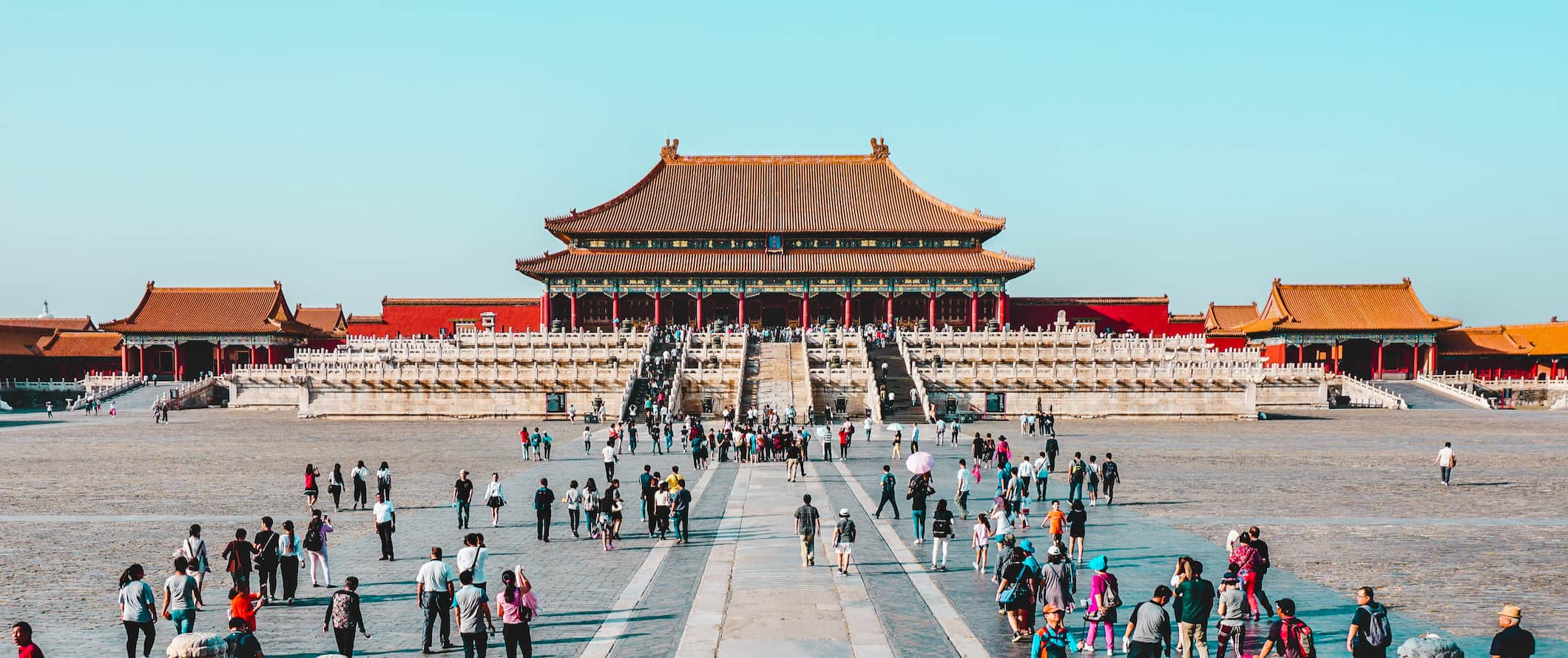
Accommodation – Prices start at around 30 CNY for an 8-10 bed dorm in many of the smaller cities. Expect to pay closer to 85 CNY in Hong Kong and Beijing. For a private room, prices begin around 110 CNY though expect to pay almost double that in the larger cities. Hostels here are generally well equipped and have free Wi-Fi, drinking water, lockers, and even warm blankets in the winter! Hostels in cities will have western-style toilets, though in more remote parts of the country you may find squat toilets more common.
Budget hotels begin around 75 CNY per night for basic accommodations, with higher prices in Hong Kong. Budget hotels will usually include heat or AC, your own bathroom, a kettle, and TV (though you’ll only get Chinese stations). Keep in mind that any hotels offering free breakfast will likely be serving a Chinese breakfast (dumplings, rice congee, vegetables, etc.).
Airbnb is plentiful in China and can be found in all the major cities though it’s much less common in rural areas. Prices range from 175-750 CNY depending on the city and the type of apartment.
There are plenty of campgrounds around the country. Expect to pay around 20 CNY per night for a basic plot. Wild camping is a grey area; it’s both legal and illegal at the same time to allow local authorities the final say. I would avoid wild camping and stick to official campgrounds as to avoid any problems.
Food – Food in China is cheap. I mean, really cheap. A meal from a street vendor usually goes for around 7-14 CNY. For this, you might get noodles, rice, pork buns, or soup. A full meal in a sit-down restaurant will cost between 15-54 CNY plus the fee for a bowl of rice and clean bowls (yes, these cost extra!), which is often around 4 CNY. If you stick to the local food, you’ll find it hard to go broke. You could spend less than 70 CNY for an entire day’s worth of food.
In western China, southwestern China, and the interior, food is much cheaper than in the big cities and you can eat for under 35 CNY per day — about half the costs of the big cities as long as you stick to street food/local restaurants.
For Western food, you can expect to pay much higher prices for food that will be a disappointment compared to home — especially if you’re outside of the more Westernized cities like Hong Kong. A western-style sandwich or fast food meal can run about 40 CNY and a cup of coffee can be similarly-priced to back home — sometimes more!
Vegetarians and even vegans will be able to get by relatively easily in the cities with a little planning as China’s history with Buddhism has made the country quite veg-friendly.
Since food is so cheap, there’s no need to self-cater or cook your own meals. You are better off eating the street food and at the restaurants. Moreover, many hostels don’t have kitchen facilities for you to use even if you did go grocery shopping. Therefore, self-catering is not something I recommend. The food is cheap and plentiful, so enjoy it! If you will be buying your own groceries, expect to spend between 250-400 CNY depending on your diet.
Activities – In general, sights are affordable in China — even popular attractions such as the Great Wall or the Forbidden City are under 68 CNY. While the Great Wall never kept out invaders, it’s beautiful and is only 45 CNY, the Forbidden City is 60 CNY (40 CNY if you visit between November and March). Smaller temples, activities, and sights are much more reasonably priced and cost under 20 CNY.
While attractions and temples are less than 70 CNY, prices for hikes and outdoor activities tend to be more expensive, often costing around 200 CNY. For example, a trip to the Jade Dragon Snow Mountain costs around 200 CNY, a visit to the Jiuzhai Valley is also 200 CNY (as much as 2,000 CNY if you want to go as part of a tour) and a three-day pass to the Wuyi Mountains in Fujian province is 140 CNY while admission to the Yellow Mountains in Anhui province is 190 CNY. You’ll still need to pay for transportation to these places as well.
Backpacking China Suggested Budgets
How much does it cost to visit China? Here are some suggested budgets you can use to help you plan, based on your individual style of traveling. Keep in mind that if you’re staying in cities like Hong Kong, Beijing, or Shanghai you should expect to spend at least 20% more.
On a backpacker’s budget, you should plan to spend between 215-285 ($30-50 USD) per day. This is a suggested budget assuming you’re staying in a hostel dorm, eating fast food occasionally but mainly cooking your own meals, using public transportation, and participating in basic activities like visiting museums.
On a mid-range budget of 645-1,000 CNY ($90-140 USD) per day, you can stay in budget hotels, take buses between destinations, eat fast food, and do more excursions.
For a luxury budget of 1,500 CNY ($210 USD) per day, you can afford to stay in nice hotels, take the high-speed train, do some guided tours, and eat out for every meal.
You can use the chart below to get some idea of how much you need to budget daily, depending on your travel style. Keep in mind these are daily averages — some days you’ll spend more, some days you’ll spend less (you might spend less every day). We just want to give you a general idea of how to make your budget. Prices are in USD.
China Travel Guide: Money-Saving Tips
Given the size of China as well as its general affordability thanks to cheap food and accommodation, there are plenty of ways to save money when you visit here. Here are some of the best ways to save money during your next trip:
- Use sleeper trains – Use sleeper trains (doorless compartments with bunks) to travel overnight since distances between cities can be quite large. Spending a night on the train will save you paying an extra night of accommodation. Lower bunks are less expensive, so purchase a few days in advance to take advantage of these savings. Some stations have ticket offices for foreigners if you need help navigating your options.
- Ask for Xiao Pan – If eating alone, ask for “xiao pan”. These are small portions and work out at 70% of the size and price of a normal dish.
- Hard Seats – Travel on the “hard seats” on trains or buses. These are the cheapest and most basic seats but are not “hard” as the name would lead you to believe (they’re just regular seats).
- Take a walking tour – Free walking tours are available in most Chinese cities. They generally last a couple of hours and are a great way to get the lay of the land and learn some of the local history.
- Avoid Golden Week – Golden Week is the busiest holiday of the year and is a time when the entire country is off. Held at the start of October, prices will rise, transportation is booked out weeks in advance, and the large cities are essentially gridlocked. Avoid visiting during this time. (Or, at the very least, avoid the big cities!)
- Stick to public transportation – You can get pretty much anywhere in all the major cities by bus or subway — and it’s super affordable. Do as the locals do if you want to save money.
- Buy water jugs – Instead of buying bottled water every day (as the tap water is not potable), bring a reusable water bottle and buy the biggest jugs you can find. They are only around 15 CNY and will last weeks. If you’re not staying that long, get your fellow travelers to chip in. You’ll save money and prevent more single-use plastic from ending up in a landfill. Conversely, bring a LifeStraw or SteriPen to purify your own water.
Where To Stay in China
Hostels are common all across China. Here are my recommended places to stay in the country:
- Hong Kong Hostel (Hong Kong)
- Kelly’s Courtyard (Beijing)

How to Get Around China
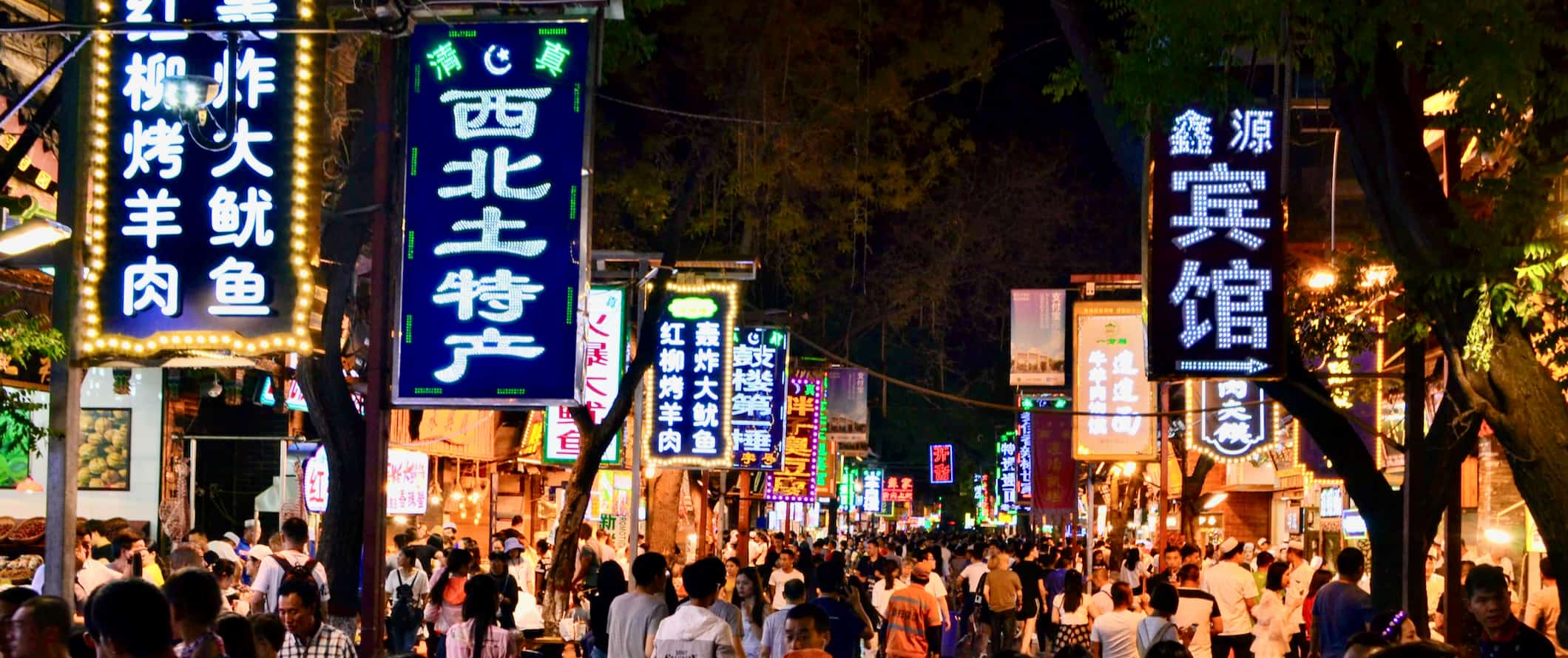
While most cities in China are great to discover on foot, the pollution can be quite hard on the body for extended periods. Be sure to check the air quality every morning before heading out.
Bus – Buses are generally cheaper than trains when it comes to intercity travel so they are your best bet for short distances (anything under 8-10 hours). For example, the 9-hour ride from Beijing to Anshan is around 220 CNY while the train is between going to be at least 350 CNY (and the train only saves you 90 minutes). The two-hour bus ride from Beijing to Tianjin is around 80 CNY while the trip from Shanghai to Hangzhou is 3 hours and costs around 120 CY.
Train – For long-distance travel around the country, trains are an affordable and often unique choice. On a high-speed train, the ticket from Beijing to Shanghai is around 555 CNY for 2nd class, around 935 CNY for 1st class, and around 1,800 CNY for a VIP seat. The journey takes around 4.5 hours.
For the full-day train that takes between 14-22 hours, a soft sleeper ticket is 525 CNY while a superior sleeper is 880 CNY. You can also get a regular hard sleeper seat for just 180 CNY but 22 hours in a seat is asking a lot!
The 5-6 journey ride from Beijing to Xi’an will cost 515 CNY for a second-class seat, 825 CNY for a first-class seat, and 1,630 CNY for a VIP ticket.
For overnight trains, keep in mind that the lower bunk is usually cheaper as it is closer to the noise. Top bunks will be more expensive, though they occasionally have very little space to offer (even though you pay more); it is not uncommon to be unable to sit all the way up. But you do get more privacy, which is worth it in my opinion!
Flying – There are plenty of regional carriers in China when it comes to flights. In fact, there are over 30 domestic airlines in the country! Some of the larger ones are Air China, China Eastern, China Southern, and Southwest Airlines. Just keep in mind that many flights rarely leave on time, so be mindful of your connections when booking!
Round-trip flights from Beijing to Shanghai can cost as little as 1,150 CNY for the two-hour journey.
From Beijing to Hong Kong will cost at least 900 CNY and take just under four hours. Xi’an to Shanghai will cost at least 950 CNY and take just over two hours. Beijing to Taipei will cost around 1,600 CNY and take just over three hours.
Car Rental – China does not recognize the International Driving Permit, making it virtually impossible to rent a car here unless you apply for a Chinese license. I don’t advise renting a car here.
When to Go to China
Since China is such a large country, climate and temperature change drastically from region to region. Sub-tropical Hong Kong is going to have much different weather than the steppes of Inner Mongolia or the mountain ranges of Tibet and Western China.
Summers in China (June-August) is the peak time to visit, though it also the hottest time. Temperatures will soar into the 30s (87-92 F) and can get quite humid. The pollution and air quality can also be ongoing concerns during this time. Expect inflated prices and larger crowds during these months.
September-October is a great time to visit China, as long as you can dodge the hectic Golden Week holiday in early October. The weather will cool to just under 20C (68 F), which is much more pleasant for hiking and exploring.
Traveling to China in the winter is rare, unless you’re heading to Hong Kong where the weather is still pleasant at 20C (68 F). Places like the Great Wall are occasionally closed due to weather, and regions like Tibet can drop to -13 C (9F) overnight. That being said, China has a fun winter festival called the Harbin Ice and Snow Festival where you’ll find huge, record-breaking ice sculptures.
How to Stay Safe in China
China is quite safe for travelers owing to its heavy crack down on crime and the fact that it is a full-on surveillance state. However, there are still a few things you’ll want to keep in mind to stay safe during your visit.
For starters, watch what you eat. Sanitation standards are not exactly the most stringent here, so always use hand sanitizer before you eat and make sure you only go to restaurants that appear clean. Street food — while delicious — can also cause some upset so be prepared. You may need some time to adjust to the local cuisine upon arrival.
Petty theft is rare, though you should still take precautions. Don’t flash your valuables or leave them in unsecured pockets. Most petty thefts occur when travelers don’t pay attention to their things. Don’t be one of those travelers!
As a tourist, you’ll also likely get ripped off here and there. Expect to see inflated prices often, so be sure to ask your hostel/hotel staff for price estimates in advance if you need to go to a market. While commercial supermarkets and shops won’t be an issue, local markets and small stores might try to fleece you. Be firm and barter hard when you have to.
As for scams, they are unfortunately common here. The most common is when someone approaches you and asks to practice their English with you (they are usually a “student.” You’ll head to a café, have some tea and food, and then you’ll be stuck with the bill. As a general rule, if folks ask you to practice English with them just politely decline.
Traffic in China can also be a bit of challenge. Pedestrians don’t have the right of way, so always look both ways before crossing. When in doubt, stick to the locals and follow their lead. They know what to do!
China cracks down on drug use very hard, dishing out hard labor and death penalties to anyone caught with large amounts of drugs. You may also get extorted by the police for a bribe if you’re caught with drugs, so it’s generally a good idea to avoid all drugs while you’re here.
When you’re here, you’ll also want to avoid talking politics — especially when it comes to regions like Tibet and Hong Kong. Information about these regions is highly censored and political discussions are highly monitored online. Play it safe and avoid talking politics.
Lastly, try to avoid using illegal taxis. Marked taxis will use a meter and have set prices, so stick to them (or use the ride-sharing app DiDi). When looking for a cab you’ll likely get approached by illegal taxis. Avoid them if you can unless you’re comfortable negotiating a fare and taking an illegal ride (which I don’t recommend).
Worried about travel scams? Read about these 14 major travel scams to avoid .
The most important piece of advice I can offer is to purchase good travel insurance. Travel insurance will protect you against illness, injury, theft, and cancellations. It’s comprehensive protection in case anything goes wrong. I never go on a trip without it as I’ve had to use it many times in the past. You can use the widget below to find the policy right for you:
China Travel Guide: The Best Booking Resources
These are my favorite companies to use when I travel. They consistently have the best deals, offer world-class customer service and great value, and overall, are better than their competitors. They are the companies I use the most and are always the starting point in my search for travel deals.
- Skyscanner – Skyscanner is my favorite flight search engine. They search small websites and budget airlines that larger search sites tend to miss. They are hands down the number one place to start.
- Hostelworld – This is the best hostel accommodation site out there with the largest inventory, best search interface, and widest availability.
- Booking.com – The best all around booking site that constantly provides the cheapest and lowest rates. They have the widest selection of budget accommodation. In all my tests, they’ve always had the cheapest rates out of all the booking websites.
- Get Your Guide – Get Your Guide is a huge online marketplace for tours and excursions. They have tons of tour options available in cities all around the world, including everything from cooking classes, walking tours, street art lessons, and more!
- SafetyWing – Safety Wing offers convenient and affordable plans tailored to digital nomads and long-term travelers. They have cheap monthly plans, great customer service, and an easy-to-use claims process that makes it perfect for those on the road.
- LifeStraw – My go-to company for reusable water bottles with built-in filters so you can ensure your drinking water is always clean and safe.
- Unbound Merino – They make lightweight, durable, easy-to-clean travel clothing.
- Top Travel Credit Cards – Points are the best way to cut down travel expenses. Here’s my favorite point earning credit cards so you can get free travel!
China Travel Guide: Related Articles
Want more info? Check out all the articles I’ve written on China travel and continue planning your trip:
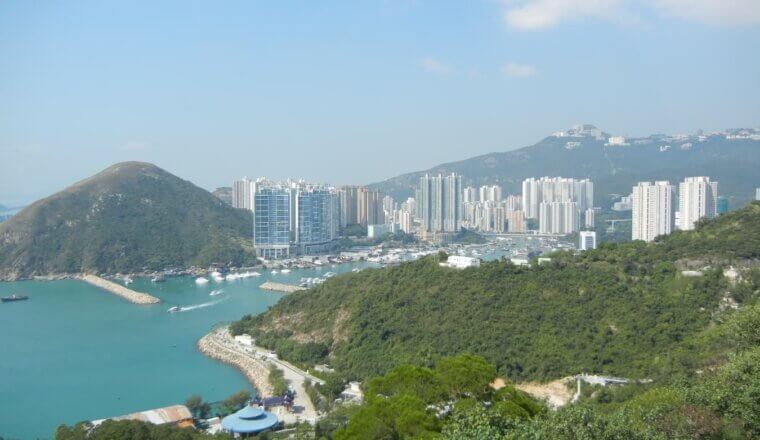
The 23 Best Things to Do in Hong Kong
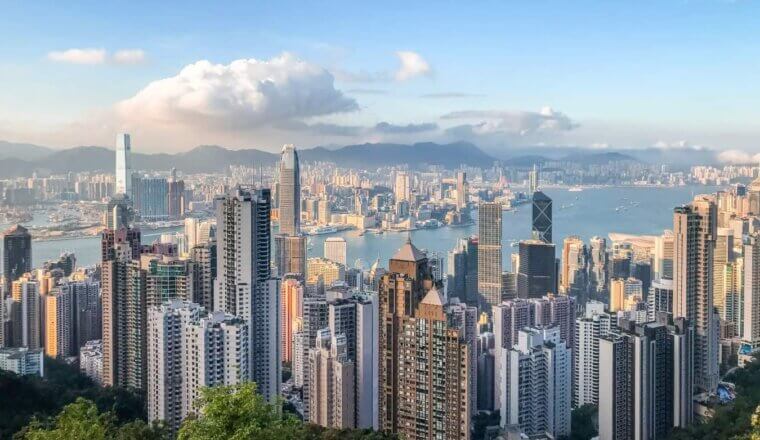
Hong Kong Itinerary: What to Do in 4 (or More) Days
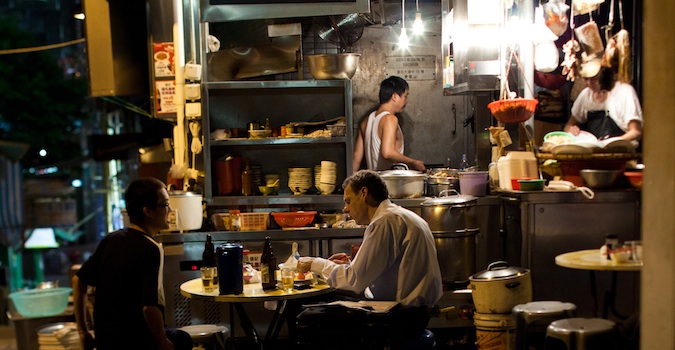
My Favorite Restaurants in Hong Kong

What Hitchhiking Solo as a Female in China Taught Me
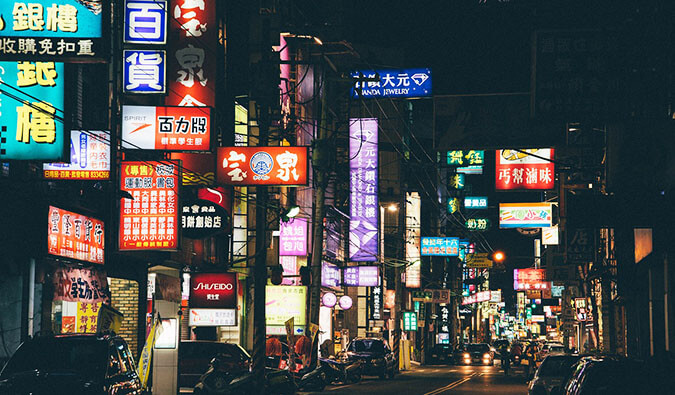
7 Lessons Learned from 3 Months in China
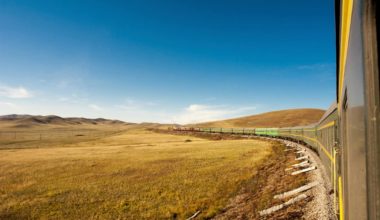
How to Travel the Trans-Siberian Railway
Get my best stuff sent straight to you, pin it on pinterest.
- Transportation
- Booking Resources
- Related Blogs

- [email protected]
- 86-773-286-5632 (Intl rates apply)
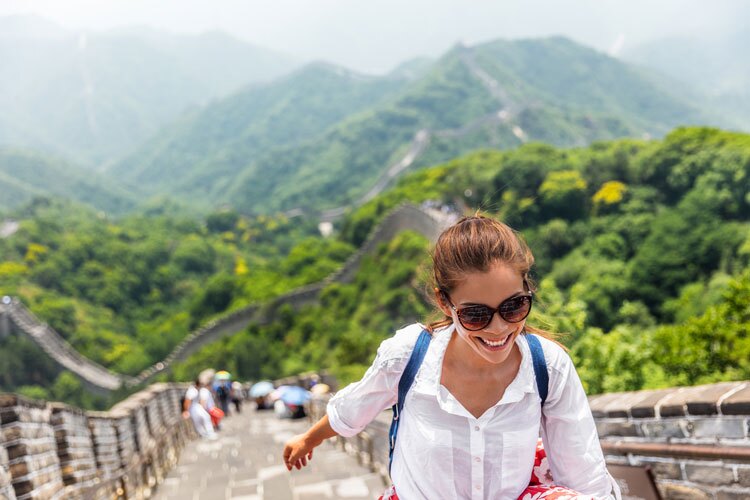
How to Plan Your First China Trip 2024
Until November 30th, 2024 , ordinary passport holders of France, Germany, Italy, Netherlands, Spain, Switzerland, Ireland, Hungary, Austria, Belgium, Luxembourg, and Malaysia can enjoy a 15-day visa-free entry to China.
You can start planning your trip to China now! We will provide you with a flexible, tailor-made private tour of China .
Thinking of traveling to China?
China, with its long history and unique culture, maybe a must-visit place for you. The numerous destinations, vast geography, and unintelligible language make trip planning appear challenging. Is this true? Not at all!
Our 11 easy-to-follow tips, based on our 25+ years of experience in custom travel, will help you create the perfect itinerary with ease. So, if you want to plan your first China trip effortlessly and make the most of your vacation, read on!
- 1. Determine Your Travel Duration
- 2. Choose How Long to Spend
3. Decide on the Travel Season
4. consider budget and affordability.
- 5. Consider Travel Type
6. Research China Visa Policy
7. get to/around china.
- 8. Know How to Access Your Money
- 9. Organise Travel Insurance
- 10. Stay Safe and Healthy
- 11. Pack for China Trip
12. Travelling with Kids to China
1. determine your travel duration in china.
Considering your time constraints, it is recommended to choose 2-3 cities for a more immersive travel experience, allowing you to explore the culture and attractions of China in depth.
After years of experience and feedback from our travelers, we have found that the best destinations for a first-time trip to China are Beijing, Xi'an, and Shanghai . The classic three-city tour takes about 8 days. Click to check the itinerary of the 8-Day Classic China Tour
If you have an additional 3 to 4 days , we recommend visiting one of the following cities: Guilin, Chengdu, or Zhangjiajie.
1) Take a Classic China Tour to Beijing, Xi'an, and Shanghai
Beijing – China's capital and a major gateway to the country.
Start your trip in the capital city, Beijing. Explore the historic Forbidden City, walk along the Great Wall of China, and visit the Temple of Heaven. Don't miss the ancient alleyways of Hutong and the impressive Summer Palace.
To cover the city's highlights, you would need about 3-4 days.
Xi'an – the place to go if you are interested in history.
Discover why Qin Shi Huang built the marvelous Terracotta Warriors, one of the world's most significant archaeological discoveries. Explore the city's well-preserved city walls, visit the Big Wild Goose Pagoda, and sample delicious local dishes.
With so much to see, you could spend 2 days here and it's only a 4-6 hour high-speed train ride from Beijing.
Shanghai – China's biggest and most prosperous city.
Explore Shanghai's blend of history and modernity with a 1-2 day tour and extend your itinerary for 2-8 days to nearby Suzhou, Hangzhou, or Huangshan for more culture-rich experiences.
Want to start planning your private China tour now? Click on the tailor-made tour to arrange your unique trip.
2) Extend Your Trip to Guilin, Chengdu or Zhangjiajie
Guilin – the perfect destination to immerse yourself in natural picturesque landscapes, ethnic culture, and rural scenery.
Take a Li River Cruise to Yangshuo and soak in the stunning scenery. Cycle around the picturesque Yangshuo countryside, hike the Longji Terraced Fields and try exciting outdoor activities like Ferrata, Drifting, Kayaking, and more.
You can easily spend 3-4 days enjoying Guilin and its surroundings.
Chengdu – the home of the Giant Panda and famous Sichuan cuisine.
You have a chance to get close to the fluffy Pandas, marvel at the towering Leshan Giant Buddha, and pray at the Golden Summit of Mount Emei. Don't miss authentic Sichuan dishes like kung pao chicken and spicy hotpot.
You can enjoy all these experiences and more in Chengdu, which typically requires around 2-4 days to fully explore.
Zhangjiajie — offers a wonderland of natural landscapes and exciting outdoor activities perfect for a 3-4 day trip.
Take a cable car up to the Avatar Hallelujah Mountains, walk through the thrilling Grand Canyon Glass Bridge, and trek the 999 steps up to Tianmen Mountain.
If you are interested in exploring other parts of China, such as Lhasa for Tibetan culture, Yangtze River for the Three Gorges Dam, and Dali, Lijiang, and Shangri-la for a diverse range of minority cultures and history, don't hesitate to contact us.
We can organize a custom tour that is tailored specifically to your needs and preferences.
2. Choose How Long to Spend in China
Evaluate how much time you have for your trip. China's vast size means you may need to prioritize certain areas if you have limited time. For a first-time visit, it's recommended to allocate at least one week to explore this fascinating country.
For 7-10 days , we suggest visiting China's "Golden Triangle," which includes Beijing for 3-4 days, Xi'an for 2 days, and Shanghai for 1-2 days. You can refer to our 8-Day Classic China Tour for more information.
If you have 11-16 days , you can discover more of China, such as the beautiful Guilin, charming Chengdu, wonderful Yangtze, etc. Check out our carefully selected 13-Day China Adventure Tour , and 16-Day Panoramic Impression of China .
If you want to get more inspiration, please contact us about your requirements, including the length of your holiday. Our experienced travel specialists can design a travel plan tailor-made to your needs, ensuring a uniquely fulfilling experience.
The best time to travel to China depends on your interests, the region you want to visit, and also the time you have.
The most popular China tourist hotspots of Beijing, Xi'an, and Shanghai are suitable to visit all year round .
Usually, spring (April and May) and autumn (September and October) are the most comfortable and recommended times for a China tour. If you want to travel comfortably without too much sweating and not too much rain, that's the best time.
The summertime from July to August is hot in the afternoon in some places, but air conditioning and expert arrangements will help you to avoid the heat as much as possible. Meanwhile, there are various summer activities for you to experience.
During the winter from December to February (except the Chinese New Year and New Year's Day), there are fewer travelers with better prices. So you could enjoy the benefits of the 'low season'.
Check more detailed tips on the Best Time to Go to China .
China is not the cheapest country to explore, but some good planning can save you a lot of money. Your budget will influence both your destination choice and the duration of your trip. Larger cities like Beijing and Shanghai tend to be more expensive, while rural areas may offer more affordable options. Research the cost of accommodations, transportation, and activities in different regions to make an informed decision.
Usually, international airfare is the largest cost item. The airfare from the US or Europe to China costs about US$1200 to US$4,000 for a direct economy round trip.
However, it is possible to save a lot if you get a great deal or take stopovers. We recommend you start to look for flights as soon as your travel date is fixed.
You can expect to spend about US$180–350 per person per day on a high-quality China tour based on 2 person group, including domestic flights/trains, 3/4/5-star hotels, attractions, meals, private tour guides, and vans.
China's peak tourist seasons typically take place during the first weeks of May and October summer holidays and Chinese New Year(around late January or early February ).
During these periods, the price differences between peak and low season can be quite significant, with hotels and airfares going up by anywhere from 30% to 50% or more.
To avoid higher costs during peak season, we suggest you book your travels at least two months in advance. If you book with us, we offer a guarantee of a 100% refund if you cancel your travel plans up to three weeks before departure.
5. Consider Traveling Independently or Taking a Guided Tour
Should you go to China with an organized tour through a tour agency, or make the tour arrangements yourself? It depends on your needs.
Take a Private Tour
A private tour is the best option for you if you want to have deeper experiences in China.
A private guided tour is always to help you maximize your time and ensure a worry-free and more enjoyable trip for you.
If you're considering taking a private China tour, it's very important to choose a reliable and trustworthy travel agency, like ChinaTravel . We have 25 + years of experience in creating custom tours .
You can be guided as much or as little as you like. Our professional trip advisers will customize a tour that suits your budget and interests, and local drivers and guides will make your trip a carefree and insightful experience.
Based on 91 reviews
LiPing best guide for Guilin
I visited Guilin for the first time in October 2023 and only had a 2-day window. Absolutely worth a packed full 2-day tour. And, LiPing with her love of this land and her enthusiasm, made a huge difference for me...
2 Day Private Tour Highlights Guilin, Li River Cruise and Yangshuo
I had a great experience during this private 2 days tour organized by Vanessa at China Travel and guided by Gary, a highly professional, friendly and knowledgeable guide...
4-star Li River cruise
It was fabulous and met my expectations. It was part of a 4-day private tour in Guilin. The local guide - Henry - was courteous, knowledgeable, professional, patient, and very flexible and accommodating...
david_kt_yu
Trusted, friendly, concise and highly recommended
We were on a 4 day trip to Guilin and Yangshuo covering the highlights. The tour guide, Ms Yang, gave us the highlight of our lives when we traveled to the cities...
Tour as A Group
Advantage: You can spend less money to see China's key sights and have more security.
Disadvantage: The downsides of this option are the lack of flexibility and the that you can only scratch the surface of Chinese culture.
Travel Independently
Advantages: If you are an adventurer or you have a great deal of time to plan an itinerary, you can do a lot of preparation to book transportation tickets, hotels, etc.
Disadvantages: It is not easy for first-time visitors to have a smooth solo trip in China. In addition to a lot of hard work, study, planning, and bookings, once you are on the ground, you may waste time trying to get to places and end up seeing less.
There will also be numerous problems to overcome, such as an unfamiliar language and it is not always the cheapest option.
Most people require a visa when traveling to China. We recommend that you apply for your Tourist Visa (L visa) one to two months before your departure date .
However, do not apply too early because China visas are usually valid for only three months from the date of issue.
Alternatively, you can take advantage of the 144-hour visa-free transit policy or apply for a port visa, which makes it easier for you to take a China tour.
If you book with us, we will provide you with an invitation letter that you will need to apply for a tourist visa. Just contact us about your tour needs.
Getting to China has become easier due to the increasing number of non-stop flights from several cities in the USA, Europe, Australia, Singapore, and other countries and regions. More routes to China will be added soon.
Keep in mind that booking your flight at the very last minute can be expensive.
To ensure the best travel experience, make sure you start booking your flights as early as possible and select the most suitable option for your needs, such as direct flights, flights with stopovers, and so on.
When traveling between cities in China, there are many options like flight and train, and the most “Chinese-style” way is to travel by high-speed train , which is fast, convenient, punctual, comfortable, and reasonably priced.
8. Know How to Access Your Money in China
The official currency of China is the Ren Min Bi, often called RMB or CNY (Chinese Yuan), and is used throughout the Chinese mainland. It is commonly referred to as kuai (pronounced kwai) by locals.
The exchange rate between the CNY and dollar and Euro is 1 USD = about 7 CNY, 1 Euro = about 8 CNY, which of course can change.
Download “Digital Money Pocket” – Alipay/WeChat Pay
Cash-free travel, sounds exciting? Chinese people nowadays pay bills via two very practical and convenient payment apps, Alipay/WeChat Pay.
You don't need to worry about how much cash to bring when traveling in China and taking your wallets out anymore – a smartphone can handle all shopping requirements.
From high-end restaurants to wet markets to street vendors, just show your Alipay/WeChat Pay QR code and pay the bills!
Use a Credit/Debit Card
Hotels, standard restaurants, and large shopping malls in big cities accept credit/debit cards.
But please be aware that many restaurants and mall shops will not accept plastic. They are rarely used here, so even if a company officially accepts a credit/debit card, it might not have working hardware for using it.
Prepare Chinese Cash
You may need cash for small purchases in China: taxis, small shops, restaurants, etc. You could withdraw from the ATMs in airports and big malls.
9. Organise Your Travel Insurance for China
Travel Insurance will make your trip financially safer. It is not only for medical emergencies, but also for assisting in cases of lost baggage, trip delays, or interruptions because of snowstorms, heavy rains, and evacuations.
The price of insurance may seem expensive, but it could potentially save you a significant amount of money.
When purchasing insurance, pay attention to what is covered and to what amount. Choose a suitable one rather than just selecting the cheapest option.
10. Stay Safe and Healthy
Is China safe? Yes! China is a country with many places with good policing, tight gun control, and relatively few natural disasters and health risks.
Chinese people are friendly and trustworthy. However, crime, bad weather, and accidents do happen, so buying Travel Insurance is important.
Is Chinese food safe? If you go to reputable establishments, yes, but take care of street stalls and avoid less hygienic eateries.
Can I drink running water? No! Most tap water in China needs boiling (well) before drinking. In some areas avoid tap water altogether and buy bottled water.
11. Pack for Your China Trip
With only one week left, it's time to start packing. Make a checklist of items you need and pack according to your destination, especially if you are traveling with children.
The economy class seat on International flights generally allows 23kg per person while domestic flight in China limits it to 20kg per person.
Be sure to include important documents such as your passport and China visa, and pack luggage essentials such as a travel adapter and chargers.
Additionally, pack appropriate clothing for your destination. For example, T-shirts and sunglasses are suitable for summer, while a down jacket and sweater are necessary for winter.
Traveling with children requires patience and flexibility, so be prepared to adapt your plans based on their needs. Embrace the opportunity for your family to create lasting memories and experiences together in China.
Plan child-friendly activities : Research and include activities that are suitable for children. Look for interactive museums, parks, zoos, amusement parks, and cultural experiences that can engage and entertain them.
Choose family-friendly destinations : Consider destinations that offer suitable facilities and amenities for families. Beijing, Shanghai, and Hong Kong have a range of child-friendly attractions and accommodations. It's also worth exploring smaller cities known for their family-friendly environments, such as Chengdu and Guilin.
Pack essential items : Pack appropriate clothing for the weather, sufficient diapers and baby supplies (if applicable), snacks, toys, books, and entertainment for the kids during the trip. Consider carrying a stroller or baby carrier for younger children.
Choose child-friendly accommodations : Look for hotels or vacation rentals that cater to families. Check for amenities like childproofing, cribs, high chairs, and play areas. Consider options that provide larger rooms or interconnected rooms to accommodate your family comfortably.
Recommended China Tours for 2024/2025
All of the itineraries on our website can be tailored further to fit your needs . You can easily add whatever interests you. They are hand-picked by us from many options and can be adjusted as we go along.
Below are some of our most popular tour packages.
You can use them as a guide and a starting point. We are here to make your tour easier and more fun. We are ready! Are you?
- 8-Day Beijing - Xian - Shanghai Tour - classic Golden Triangle trip
- 11-Day Beijing - Xian - Guilin - Shanghai - Immerse in China history and Natural Landscape
- 13-Day Beijing - Xian - Chengdu - Guilin - Yangshuo - Shanghai Tour - good for adventure and panda lovers
- 16-Day Beijing - Xian - Lhasa - Yangtze River - Shanghai Tour - to know Tibetean culture and natural landscape
Request a custom itinerary today and get one step closer to your personalized trip
Create Your Trip
Cookies on GOV.UK
We use some essential cookies to make this website work.
We’d like to set additional cookies to understand how you use GOV.UK, remember your settings and improve government services.
We also use cookies set by other sites to help us deliver content from their services.
You have accepted additional cookies. You can change your cookie settings at any time.
You have rejected additional cookies. You can change your cookie settings at any time.
- Passports, travel and living abroad
- Travel abroad
- Foreign travel advice
Warnings and insurance
This travel advice covers mainland China. See travel advice for the Special Administrative Regions, Hong Kong and Macao .
The Foreign, Commonwealth & Development Office ( FCDO ) provides advice about risks of travel to help British nationals make informed decisions. Find out more about FCDO travel advice .
Before you travel
No travel can be guaranteed safe. Read all the advice in this guide as well as support for British nationals abroad which includes:
- advice on preparing for travel abroad and reducing risks
- information for women, LGBT+ and disabled travellers
Follow and contact FCDO travel on Twitter , Facebook and Instagram . You can also sign up to get email notifications when this advice is updated.
Travel insurance
If you choose to travel, research your destinations and get appropriate travel insurance . Insurance should cover your itinerary, planned activities and expenses in an emergency.
Related content
Is this page useful.
- Yes this page is useful
- No this page is not useful
Help us improve GOV.UK
Don’t include personal or financial information like your National Insurance number or credit card details.
To help us improve GOV.UK, we’d like to know more about your visit today. We’ll send you a link to a feedback form. It will take only 2 minutes to fill in. Don’t worry we won’t send you spam or share your email address with anyone.
You are using an outdated browser. Upgrade your browser today or install Google Chrome Frame to better experience this site.
China Traveler View
Travel health notices, vaccines and medicines, non-vaccine-preventable diseases, stay healthy and safe.
- Packing List
After Your Trip
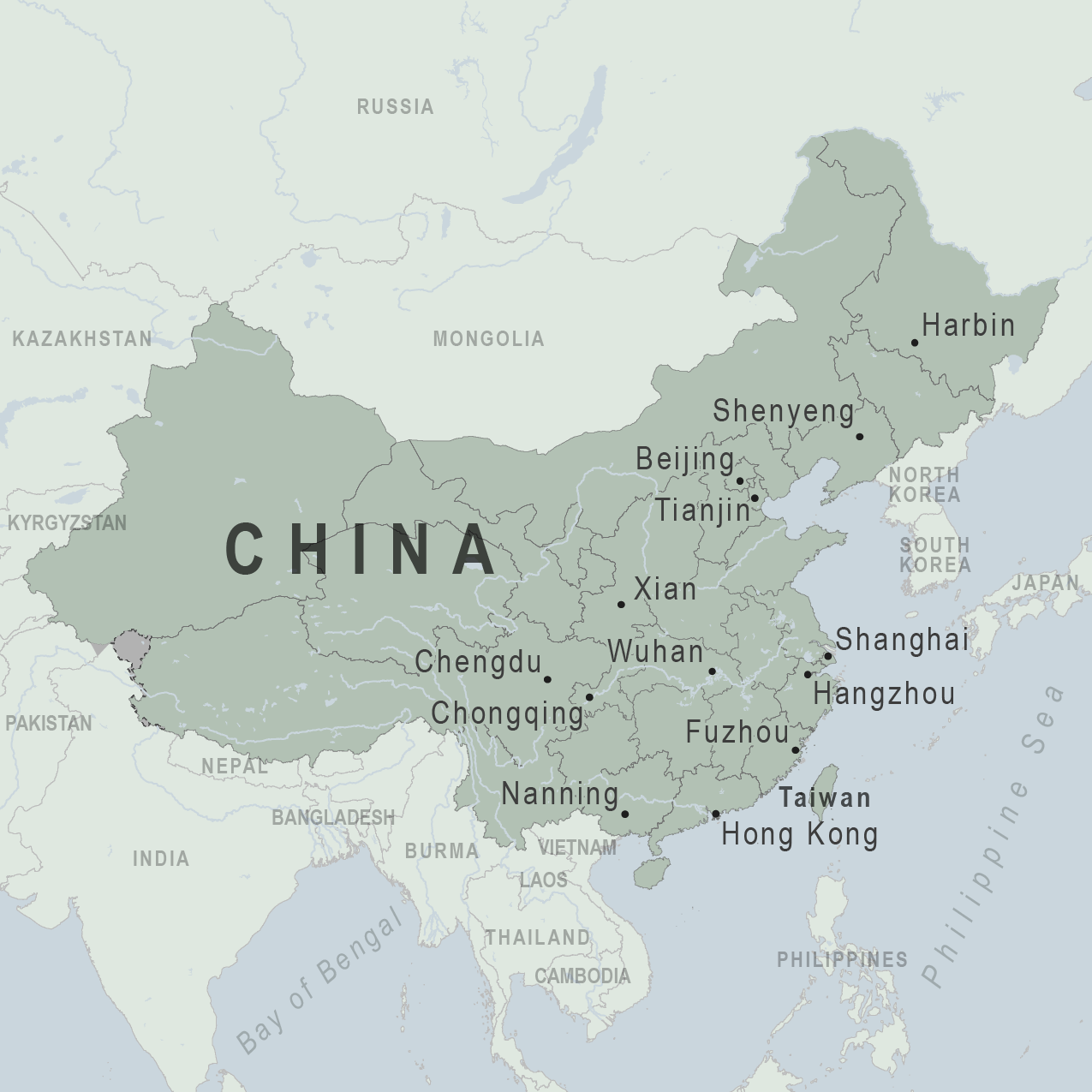
There are no notices currently in effect for China.
⇧ Top
Check the vaccines and medicines list and visit your doctor at least a month before your trip to get vaccines or medicines you may need. If you or your doctor need help finding a location that provides certain vaccines or medicines, visit the Find a Clinic page.
Routine vaccines
Recommendations.
Make sure you are up-to-date on all routine vaccines before every trip. Some of these vaccines include
- Chickenpox (Varicella)
- Diphtheria-Tetanus-Pertussis
- Flu (influenza)
- Measles-Mumps-Rubella (MMR)
Immunization schedules
All eligible travelers should be up to date with their COVID-19 vaccines. Please see Your COVID-19 Vaccination for more information.
COVID-19 vaccine
Hepatitis A
Recommended for unvaccinated travelers one year old or older going to China.
Infants 6 to 11 months old should also be vaccinated against Hepatitis A. The dose does not count toward the routine 2-dose series.
Travelers allergic to a vaccine component or who are younger than 6 months should receive a single dose of immune globulin, which provides effective protection for up to 2 months depending on dosage given.
Unvaccinated travelers who are over 40 years old, immunocompromised, or have chronic medical conditions planning to depart to a risk area in less than 2 weeks should get the initial dose of vaccine and at the same appointment receive immune globulin.
Hepatitis A - CDC Yellow Book
Dosing info - Hep A
Hepatitis B
Recommended for unvaccinated travelers of all ages traveling to China.
Hepatitis B - CDC Yellow Book
Dosing info - Hep B
Japanese Encephalitis
Recommended for travelers who
- Are moving to an area with Japanese encephalitis to live
- Spend long periods of time, such as a month or more, in areas with Japanese encephalitis
- Frequently travel to areas with Japanese encephalitis
Consider vaccination for travelers
- Spending less than a month in areas with Japanese encephalitis but will be doing activities that increase risk of infection, such as visiting rural areas, hiking or camping, or staying in places without air conditioning, screens, or bed nets
- Going to areas with Japanese encephalitis who are uncertain of their activities or how long they will be there
Not recommended for travelers planning short-term travel to urban areas or travel to areas with no clear Japanese encephalitis season.
Japanese encephalitis - CDC Yellow Book
Japanese Encephalitis Vaccine for US Children
Cases of measles are on the rise worldwide. Travelers are at risk of measles if they have not been fully vaccinated at least two weeks prior to departure, or have not had measles in the past, and travel internationally to areas where measles is spreading.
All international travelers should be fully vaccinated against measles with the measles-mumps-rubella (MMR) vaccine, including an early dose for infants 6–11 months, according to CDC’s measles vaccination recommendations for international travel .
Measles (Rubeola) - CDC Yellow Book
Rabid dogs are commonly found in China. However, if you are bitten or scratched by a dog or other mammal while in China, rabies treatment is often available.
Consider rabies vaccination before your trip if your activities mean you will be around dogs or wildlife.
Travelers more likely to encounter rabid animals include
- Campers, adventure travelers, or cave explorers (spelunkers)
- Veterinarians, animal handlers, field biologists, or laboratory workers handling animal specimens
- Visitors to rural areas
Since children are more likely to be bitten or scratched by a dog or other animals, consider rabies vaccination for children traveling to China.
Rabies - CDC Yellow Book
Tick-borne Encephalitis
For travelers moving or traveling to TBE-endemic areas
TBE vaccine is recommended for persons who will have extensive exposure to ticks based on their planned outdoor activities and itinerary.
TBE vaccine may be considered for persons who might engage in outdoor activities in areas ticks are likely to be found.
Tick-borne Encephalitis - CDC Yellow Book
Recommended for most travelers, especially those staying with friends or relatives or visiting smaller cities or rural areas.
Typhoid - CDC Yellow Book
Dosing info - Typhoid
Yellow Fever
Required for travelers ≥9 months old arriving from countries with risk for YF virus transmission; this includes >12-hour airport transits or layovers in countries with risk for YF virus transmission. 1 Travelers with itineraries limited to Hong Kong Special Administrative Region (SAR) or Macao SAR are exempt from this requirement.
Yellow Fever - CDC Yellow Book
- Avoid contaminated water
Leptospirosis
How most people get sick (most common modes of transmission)
- Touching urine or other body fluids from an animal infected with leptospirosis
- Swimming or wading in urine-contaminated fresh water, or contact with urine-contaminated mud
- Drinking water or eating food contaminated with animal urine
- Avoid contaminated water and soil
Clinical Guidance
Schistosomiasis
- Wading, swimming, bathing, or washing in contaminated freshwater streams, rivers, ponds, lakes, or untreated pools.
Avoid bug bites
Chikungunya
- Mosquito bite
- Avoid Bug Bites
Crimean-Congo Hemorrhagic fever
- Tick bite
- Touching the body fluids of a person or animal infected with CCHF
- Mosquito bite
Leishmaniasis
- Sand fly bite
Airborne & droplet
Avian/bird flu.
- Being around, touching, or working with infected poultry, such as visiting poultry farms or live-animal markets
- Avoid domestic and wild poultry
- Breathing in air or accidentally eating food contaminated with the urine, droppings, or saliva of infected rodents
- Bite from an infected rodent
- Less commonly, being around someone sick with hantavirus (only occurs with Andes virus)
- Avoid rodents and areas where they live
- Avoid sick people
Tuberculosis (TB)
- Breathe in TB bacteria that is in the air from an infected and contagious person coughing, speaking, or singing.
Learn actions you can take to stay healthy and safe on your trip. Vaccines cannot protect you from many diseases in China, so your behaviors are important.
Eat and drink safely
Food and water standards around the world vary based on the destination. Standards may also differ within a country and risk may change depending on activity type (e.g., hiking versus business trip). You can learn more about safe food and drink choices when traveling by accessing the resources below.
- Choose Safe Food and Drinks When Traveling
- Water Treatment Options When Hiking, Camping or Traveling
- Global Water, Sanitation and Hygiene | Healthy Water
- Avoid Contaminated Water During Travel
You can also visit the Department of State Country Information Pages for additional information about food and water safety.
Tap water is not drinkable in China, even in major cities. Bottled water is easily available.
Prevent bug bites
Bugs (like mosquitoes, ticks, and fleas) can spread a number of diseases in China. Many of these diseases cannot be prevented with a vaccine or medicine. You can reduce your risk by taking steps to prevent bug bites.
What can I do to prevent bug bites?
- Cover exposed skin by wearing long-sleeved shirts, long pants, and hats.
- Use an appropriate insect repellent (see below).
- Use permethrin-treated clothing and gear (such as boots, pants, socks, and tents). Do not use permethrin directly on skin.
- Stay and sleep in air-conditioned or screened rooms.
- Use a bed net if the area where you are sleeping is exposed to the outdoors.
What type of insect repellent should I use?
- FOR PROTECTION AGAINST TICKS AND MOSQUITOES: Use a repellent that contains 20% or more DEET for protection that lasts up to several hours.
- Picaridin (also known as KBR 3023, Bayrepel, and icaridin)
- Oil of lemon eucalyptus (OLE) or para-menthane-diol (PMD)
- 2-undecanone
- Always use insect repellent as directed.
What should I do if I am bitten by bugs?
- Avoid scratching bug bites, and apply hydrocortisone cream or calamine lotion to reduce the itching.
- Check your entire body for ticks after outdoor activity. Be sure to remove ticks properly.
What can I do to avoid bed bugs?
Although bed bugs do not carry disease, they are an annoyance. See our information page about avoiding bug bites for some easy tips to avoid them. For more information on bed bugs, see Bed Bugs .
For more detailed information on avoiding bug bites, see Avoid Bug Bites .
Some diseases in China—such as dengue and leishmaniasis—are spread by bugs and cannot be prevented with a vaccine. Follow the insect avoidance measures described above to prevent these and other illnesses.
Stay safe outdoors
If your travel plans in China include outdoor activities, take these steps to stay safe and healthy during your trip.
- Stay alert to changing weather conditions and adjust your plans if conditions become unsafe.
- Prepare for activities by wearing the right clothes and packing protective items, such as bug spray, sunscreen, and a basic first aid kit.
- Consider learning basic first aid and CPR before travel. Bring a travel health kit with items appropriate for your activities.
- If you are outside for many hours in heat, eat salty snacks and drink water to stay hydrated and replace salt lost through sweating.
- Protect yourself from UV radiation : use sunscreen with an SPF of at least 15, wear protective clothing, and seek shade during the hottest time of day (10 a.m.–4 p.m.).
- Be especially careful during summer months and at high elevation. Because sunlight reflects off snow, sand, and water, sun exposure may be increased during activities like skiing, swimming, and sailing.
- Very cold temperatures can be dangerous. Dress in layers and cover heads, hands, and feet properly if you are visiting a cold location.
Stay safe around water
- Swim only in designated swimming areas. Obey lifeguards and warning flags on beaches.
- Practice safe boating—follow all boating safety laws, do not drink alcohol if driving a boat, and always wear a life jacket.
- Do not dive into shallow water.
- Do not swim in freshwater in developing areas or where sanitation is poor.
- Avoid swallowing water when swimming. Untreated water can carry germs that make you sick.
- To prevent infections, wear shoes on beaches where there may be animal waste.
Schistosomiasis, a parasitic infection that can be spread in fresh water, is found in China. Avoid swimming in fresh, unchlorinated water, such as lakes, ponds, or rivers.
Keep away from animals
Most animals avoid people, but they may attack if they feel threatened, are protecting their young or territory, or if they are injured or ill. Animal bites and scratches can lead to serious diseases such as rabies.
Follow these tips to protect yourself:
- Do not touch or feed any animals you do not know.
- Do not allow animals to lick open wounds, and do not get animal saliva in your eyes or mouth.
- Avoid rodents and their urine and feces.
- Traveling pets should be supervised closely and not allowed to come in contact with local animals.
- If you wake in a room with a bat, seek medical care immediately. Bat bites may be hard to see.
All animals can pose a threat, but be extra careful around dogs, bats, monkeys, sea animals such as jellyfish, and snakes. If you are bitten or scratched by an animal, immediately:
- Wash the wound with soap and clean water.
- Go to a doctor right away.
- Tell your doctor about your injury when you get back to the United States.
Consider buying medical evacuation insurance. Rabies is a deadly disease that must be treated quickly, and treatment may not be available in some countries.
Reduce your exposure to germs
Follow these tips to avoid getting sick or spreading illness to others while traveling:
- Wash your hands often, especially before eating.
- If soap and water aren’t available, clean hands with hand sanitizer (containing at least 60% alcohol).
- Don’t touch your eyes, nose, or mouth. If you need to touch your face, make sure your hands are clean.
- Cover your mouth and nose with a tissue or your sleeve (not your hands) when coughing or sneezing.
- Try to avoid contact with people who are sick.
- If you are sick, stay home or in your hotel room, unless you need medical care.
Avoid sharing body fluids
Diseases can be spread through body fluids, such as saliva, blood, vomit, and semen.
Protect yourself:
- Use latex condoms correctly.
- Do not inject drugs.
- Limit alcohol consumption. People take more risks when intoxicated.
- Do not share needles or any devices that can break the skin. That includes needles for tattoos, piercings, and acupuncture.
- If you receive medical or dental care, make sure the equipment is disinfected or sanitized.
Know how to get medical care while traveling
Plan for how you will get health care during your trip, should the need arise:
- Carry a list of local doctors and hospitals at your destination.
- Review your health insurance plan to determine what medical services it would cover during your trip. Consider purchasing travel health and medical evacuation insurance.
- Carry a card that identifies, in the local language, your blood type, chronic conditions or serious allergies, and the generic names of any medications you take.
- Some prescription drugs may be illegal in other countries. Call China’s embassy to verify that all of your prescription(s) are legal to bring with you.
- Bring all the medicines (including over-the-counter medicines) you think you might need during your trip, including extra in case of travel delays. Ask your doctor to help you get prescriptions filled early if you need to.
Many foreign hospitals and clinics are accredited by the Joint Commission International. A list of accredited facilities is available at their website ( www.jointcommissioninternational.org ).
In some countries, medicine (prescription and over-the-counter) may be substandard or counterfeit. Bring the medicines you will need from the United States to avoid having to buy them at your destination.
Malaria is a risk in some parts of China. If you are going to a risk area, fill your malaria prescription before you leave, and take enough with you for the entire length of your trip. Follow your doctor’s instructions for taking the pills; some need to be started before you leave.
Select safe transportation
Motor vehicle crashes are the #1 killer of healthy US citizens in foreign countries.
In many places cars, buses, large trucks, rickshaws, bikes, people on foot, and even animals share the same lanes of traffic, increasing the risk for crashes.
Be smart when you are traveling on foot.
- Use sidewalks and marked crosswalks.
- Pay attention to the traffic around you, especially in crowded areas.
- Remember, people on foot do not always have the right of way in other countries.
Riding/Driving
Choose a safe vehicle.
- Choose official taxis or public transportation, such as trains and buses.
- Ride only in cars that have seatbelts.
- Avoid overcrowded, overloaded, top-heavy buses and minivans.
- Avoid riding on motorcycles or motorbikes, especially motorbike taxis. (Many crashes are caused by inexperienced motorbike drivers.)
- Choose newer vehicles—they may have more safety features, such as airbags, and be more reliable.
- Choose larger vehicles, which may provide more protection in crashes.
Think about the driver.
- Do not drive after drinking alcohol or ride with someone who has been drinking.
- Consider hiring a licensed, trained driver familiar with the area.
- Arrange payment before departing.
Follow basic safety tips.
- Wear a seatbelt at all times.
- Sit in the back seat of cars and taxis.
- When on motorbikes or bicycles, always wear a helmet. (Bring a helmet from home, if needed.)
- Avoid driving at night; street lighting in certain parts of China may be poor.
- Do not use a cell phone or text while driving (illegal in many countries).
- Travel during daylight hours only, especially in rural areas.
- If you choose to drive a vehicle in China, learn the local traffic laws and have the proper paperwork.
- Get any driving permits and insurance you may need. Get an International Driving Permit (IDP). Carry the IDP and a US-issued driver's license at all times.
- Check with your auto insurance policy's international coverage, and get more coverage if needed. Make sure you have liability insurance.
- Avoid using local, unscheduled aircraft.
- If possible, fly on larger planes (more than 30 seats); larger airplanes are more likely to have regular safety inspections.
- Try to schedule flights during daylight hours and in good weather.
Medical Evacuation Insurance
If you are seriously injured, emergency care may not be available or may not meet US standards. Trauma care centers are uncommon outside urban areas. Having medical evacuation insurance can be helpful for these reasons.
Helpful Resources
Road Safety Overseas (Information from the US Department of State): Includes tips on driving in other countries, International Driving Permits, auto insurance, and other resources.
The Association for International Road Travel has country-specific Road Travel Reports available for most countries for a minimal fee.
For information traffic safety and road conditions in China, see Travel and Transportation on US Department of State's country-specific information for China .
Maintain personal security
Use the same common sense traveling overseas that you would at home, and always stay alert and aware of your surroundings.
Before you leave
- Research your destination(s), including local laws, customs, and culture.
- Monitor travel advisories and alerts and read travel tips from the US Department of State.
- Enroll in the Smart Traveler Enrollment Program (STEP) .
- Leave a copy of your itinerary, contact information, credit cards, and passport with someone at home.
- Pack as light as possible, and leave at home any item you could not replace.
While at your destination(s)
- Carry contact information for the nearest US embassy or consulate .
- Carry a photocopy of your passport and entry stamp; leave the actual passport securely in your hotel.
- Follow all local laws and social customs.
- Do not wear expensive clothing or jewelry.
- Always keep hotel doors locked, and store valuables in secure areas.
- If possible, choose hotel rooms between the 2nd and 6th floors.
To call for emergency services while in China, dial 999 (Beijing) or 120 (Shanghai) for an ambulance, 119 for the fire department, and 110 for the police. Write these numbers down to carry with you during your trip.
Learn as much as you can about China before you travel there. A good place to start is the country-specific information on China from the US Department of State.
Healthy Travel Packing List
Use the Healthy Travel Packing List for China for a list of health-related items to consider packing for your trip. Talk to your doctor about which items are most important for you.
Why does CDC recommend packing these health-related items?
It’s best to be prepared to prevent and treat common illnesses and injuries. Some supplies and medicines may be difficult to find at your destination, may have different names, or may have different ingredients than what you normally use.
If you are not feeling well after your trip, you may need to see a doctor. If you need help finding a travel medicine specialist, see Find a Clinic . Be sure to tell your doctor about your travel, including where you went and what you did on your trip. Also tell your doctor if you were bitten or scratched by an animal while traveling.
If your doctor prescribed antimalarial medicine for your trip, keep taking the rest of your pills after you return home. If you stop taking your medicine too soon, you could still get sick.
Malaria is always a serious disease and may be a deadly illness. If you become ill with a fever either while traveling in a malaria-risk area or after you return home (for up to 1 year), you should seek immediate medical attention and should tell the doctor about your travel history.
For more information on what to do if you are sick after your trip, see Getting Sick after Travel .
Map Disclaimer - The boundaries and names shown and the designations used on maps do not imply the expression of any opinion whatsoever on the part of the Centers for Disease Control and Prevention concerning the legal status of any country, territory, city or area or of its authorities, or concerning the delimitation of its frontiers or boundaries. Approximate border lines for which there may not yet be full agreement are generally marked.
Other Destinations
If you need help finding travel information:
Message & data rates may apply. CDC Privacy Policy
File Formats Help:
- Adobe PDF file
- Microsoft PowerPoint file
- Microsoft Word file
- Microsoft Excel file
- Audio/Video file
- Apple Quicktime file
- RealPlayer file
- Zip Archive file
Exit Notification / Disclaimer Policy
- The Centers for Disease Control and Prevention (CDC) cannot attest to the accuracy of a non-federal website.
- Linking to a non-federal website does not constitute an endorsement by CDC or any of its employees of the sponsors or the information and products presented on the website.
- You will be subject to the destination website's privacy policy when you follow the link.
- CDC is not responsible for Section 508 compliance (accessibility) on other federal or private website.
- Skip to main content
- Keyboard shortcuts for audio player
U.S. raises alarms that China is helping Russia reconstitute its defense industry

Michele Kelemen
China has told the world that that it is neutral in the Russia-Ukraine war, and that it is not providing weapons to Russia. Secretary of State Antony Blinken is expected visit to Beijing this month.
A MARTÍNEZ, HOST:
Secretary of State Antony Blinken heads to China this week, and while Blinken is in Beijing, there is bound to be talk of Congress' approval this weekend of $61 billion to Ukraine to fight Russia. Here's NPR's Michele Kelemen.
MICHELE KELEMEN, BYLINE: When she was still a top State Department official, the recently retired Victoria Nuland took part in several meetings with the Chinese about Ukraine.
VICTORIA NULAND: The Chinese have told the world that they are neutral in this conflict and that they are not providing weapons to Russia, but what they're doing instead is providing all of the inputs for weapons.
KELEMEN: Ninety percent of Russia's microelectronics are now coming from China, she says. And that's not all.
NULAND: Machine tools that go into ballistic missiles, rocket motors, something called nitrocellulose, which is basically the gunpowder that makes things go boom, is all coming from China.
KELEMEN: China calls this normal trade. Nuland says that in some of the conversation she had, the Chinese either deny supporting Russia's war effort in Ukraine or say they will look into it.
NULAND: For Russia, it's a great deal because they get all the smart stuff coming from China that they can no longer produce themselves, and then all they have to do is put the pieces together. And we know this because we find it on the battlefield, and we find it in our analysis of how Russia is able to make this surge in defense production.
KELEMEN: Experts say it will be hard, maybe impossible, to drive a wedge between Russia and China, which declared a no-limits partnership on the eve of Russia's full-scale invasion of Ukraine. Alexander Gabuev, who runs the Carnegie Russia Eurasia Center in Berlin, says the leaders of the two countries have similar outlooks.
ALEXANDER GABUEV: Vladimir Putin and Xi Jinping are like-minded leaders that want to make their countries great again, and they share this suspicion and animosity towards the U.S. leadership that they define as U.S. global hegemony that seeks to undercut the rise of Beijing and Moscow.
KELEMEN: At the start of the war, the U.S. laid out some clear red lines for China, urging Beijing not to supply Russia with weapons. But Gabuev says there's plenty below that threshold that China could and is doing. And that's just in part because of economic reasons.
GABUEV: And I think that strategically, China also is taking a relaxed approach because it's not interested in Russia losing the war. It definitely doesn't want to lose Vladimir Putin as a partner.
KELEMEN: As Russia makes advances in Ukraine and reconstituting its defense industry with China's help, Gabuev says the U.S. is now trying to draw a new red line for China. But he says that Washington will need to be more specific and will need help from Europe. Secretary of State Antony Blinken says he heard a lot of concerns from the Europeans at a Group of Seven meeting in Italy.
ANTONY BLINKEN: China can't have it both ways. It can't purport to want to have positive, friendly relations with countries in Europe and at the same time be fueling the biggest threat to European security since the end of the Cold War.
KELEMEN: Former diplomat Victoria Nuland says the U.S. and its partners need to be talking about this more publicly, as China continues to claim that it's a neutral player in Ukraine.
NULAND: It's also offered to play a role in the future in any ongoing talks. But if it is known to be the military industrial back office for Russia's war effort, that makes it harder for it to make that case.
KELEMEN: She says it's fair to say that Russia would not have been able to stage its current offensive in Ukraine without weapons from North Korea and Iran, and without, in her words, the massive infusion of parts and knowhow from China.
Michele Kelemen, NPR News, the State Department.
Copyright © 2024 NPR. All rights reserved. Visit our website terms of use and permissions pages at www.npr.org for further information.
NPR transcripts are created on a rush deadline by an NPR contractor. This text may not be in its final form and may be updated or revised in the future. Accuracy and availability may vary. The authoritative record of NPR’s programming is the audio record.
- International edition
- Australia edition
- Europe edition

Antony Blinken arrives in China with warning for Beijing over support of Russia
US secretary of state to hold talks with Chinese counterpart and most likely with President Xi Jinping
Antony Blinken has landed in China amid a worsening rift between the world’s two most powerful countries that threatens to overshadow otherwise improving relations.
The US secretary of state arrives with a warning that the US and its European allies are no longer prepared to tolerate China’s sale of weapon components and dual-use products to Russia, which are helping Vladimir Putin rebuild and modernise his arms factories, enabling him to intensify his onslaught on Ukraine.

Relations between China and the US had been warmer recently, with Beijing significantly less bellicose in its military posturing in the Taiwan strait since the meeting between Xi Jinping and Joe Biden in Woodside , California, in 2023. In the wake of that summit, progress was made on people-to-people ties, more than doubling the number of flights between the two countries, for example.
At Woodside, Xi also agreed to take action to curb the flow of precursors and equipment used in the making of fentanyl in Latin America, which is causing rising deaths among young Americans.
On his three-day visit, Blinken will first stop in Shanghai on his way to Beijing, to speak to students and attend a basketball game, the sort of popular diplomacy that would have been unthinkable a year ago, when bilateral relations were fraught, mostly over Taiwan .
However, when Blinken reaches Beijing for a meeting with his counterpart Wang Yi on Friday, expected to last six hours, and most likely with Xi too, the mood could cool, with discussions about China’s sale of dual-use products to Russia on the agenda.
US sanctions against the Chinese companies involved are also looming over this week’s visit.
“We’re committed to taking the steps necessary to defend our national interests,” a senior administration official said, adding that the planned measures would be aimed at “firms that are taking steps in contravention to our interests and in ways that severely undermine security in both Ukraine and Europe.”
“This will be a key issue of discussion while we’re in Beijing,” the official said. The Wall Street Journal reported that the Biden administration was also considering sanctions against Chinese banks, but US officials say that there are no imminent plans to take such measures.
The US believes its hand is strengthened on this issue having discussed a common position with European allies, who are alarmed by the prospect of a rebuilt, modernised and battle-hardened Russian military in the hands of an increasingly aggressive leader in the Kremlin. The G7 foreign ministers issued a strongly worded statement earlier this week, saying: “China should ensure that this support stops.”
“My expectation is that friends in Europe will have opportunities to express their concerns both in public and private to Chinese officials as well,” the senior administration official said. “So our objective will be to clearly make the case what the implications are of this support, and why that may not be in China’s interest going forward.”
US officials believe such joint pressure has helped convince Beijing to back down from their plans to supply arms directly to Russia earlier in the Ukraine war. However, they acknowledge that it will be hard to convince Xi to stop selling dual use industrial goods to China’s most important strategic partner.
Before Blinken’s arrival, China’s foreign ministry spokesperson, Wang Wenbin, restated China’s position.
“Let me stress again that China’s right to conduct normal trade and economic exchanges with Russia and other countries in the world on the basis of equality and mutual benefit should not be interfered with or disrupted,” Wang said, according to Beijing Youth Daily. “China’s legitimate and lawful rights and interests should not be infringed on.”
The Blinken team is aware that China’s response to pressure over Russia could be to slow down progress in other areas of the bilateral relationship.
Beijing has taken steps to curb the trade in fentanyl precursors and equipment in the wake of the Woodside summit, issuing a warning to pharmaceutical firms that it would enforce the law on those chemicals and taking police action against some suppliers. Blinken will be pressing for more, in the form of disruption of the financing networks around the trade, and more consistent law enforcement action.
It is unclear whether Beijing will limit cooperation on such a vital issue for Washington – fentanyl is the primary cause of death among Americans aged 18 to 49 – in response to threatened measures over Russia.
Beijing’s adamant support for Moscow is deepened by its belief that the US is seeking to encircle China by constructing an interlocking network of alliances around it.
Earlier this month, the US, Japan, and the Philippines, held a trilateral summit at the White House, reaffirming the security alliance between the three countries in the face of “dangerous and aggressive behavior in the South China Sea”, less than a year after a similar summit at Camp David with Japan and South Korea. In recent years, the US also formed the Aukus security pact with Australia and the UK.
On most such bilateral issues, US officials say, the Chinese are highly disciplined in discussions, to the point where officials turn the page on their notes at the same time as Wang. There is rarely any diplomatic give and take in the meeting, but rather a recital of positions. Explorations of mutual benefit are left to working groups. Wang is more likely to go off-script on multilateral issues such as the Middle East, where both countries share an interest in the free flow of shipping.
Blinken and Wang have spoken six times since the outbreak of the Gaza war on 7 October about the situation in the region, where both US and China urged restraint on their respective partners, Israel and Iran, when an all-out war threatened to ignite this month .
Washington would like Beijing to do the same with North Korea. In US eyes, China has walked away from efforts to try to influence Pyongyang, at a time when the regime there has ramped up its threatening rhetoric against South Korea and other neighbours and warned of accelerated missile launches since it began deepening its relationship with Russia.
While US officials expect that some of Blinken’s sessions with Chinese counterparts may be “scratchy” because of the multiple irritations in the relationship, they also believe that China is committed to maintaining stability in the coming years while the leadership addresses economic challenges.
- Antony Blinken
- US foreign policy
- Asia Pacific
Most viewed
- Share full article
Advertisement
Supported by
Blinken Goes to China With Potential Trouble on Horizon
The secretary of state’s visit comes as Democrats and Republicans are vying to appear tougher on China.

By Vivian Wang
Reporting from Beijing
Secretary of State Antony J. Blinken arrived in China on Wednesday to try to preserve the recent and delicate stabilization of ties between the United States and China, as tensions over trade, territorial disputes and national security threaten to derail relations again.
Even before Mr. Blinken’s plane approached Shanghai, the challenges ahead were apparent. He landed just hours after the U.S. Senate passed a bill , which President Biden is expected to quickly sign into law, that provides $8 billion to Taiwan and the Indo-Pacific region, and could also lead to a nationwide ban on the Chinese-owned app TikTok .
The political season in the United States also looms as a complication. With the presidential election nearing, Democrats and Republicans are vying to appear tougher on China. And if former President Donald Trump is re-elected, he could reverse Beijing’s and Washington’s efforts to steady the relationship.
During Mr. Blinken’s three-day trip, which will also include a visit to Beijing, he plans to press Chinese officials on a wide range of issues, including its support for Russia, cheap Chinese exports that U.S. officials say threaten American jobs, and Chinese ships’ aggressive maneuvers in the South China Sea, a senior State Department official told reporters in a telephone briefing.
Chinese officials are likely to bring up American support for Taiwan, the self-governing island that China claims, and trade restrictions that Beijing calls discriminatory.
Mr. Blinken is expected to meet with China’s foreign minister, Wang Yi. It is not clear whether he will meet with China’s leader, Xi Jinping, as he did during his last visit , in June.
That visit — the first by an American secretary of state to China since 2018 — came at perhaps the worst moment in U.S.-China relations in recent years. High-level military communications were cut off, and neighboring countries worried that the two powers might stumble into a war.
Since then, relations have thawed somewhat. China’s economy is slowing, and Beijing has adopted a softer diplomatic tone to attract more foreign investment. Washington, though continuing to warn that China poses a global security threat, has said it wants to keep communication open.
In November, Mr. Biden and Mr. Xi met for four hours near San Francisco. Afterward, China agreed to resume cooperation with the United States on fighting the global production of fentanyl, and both countries affirmed the importance of restoring cultural exchanges. The two leaders also spoke by phone this month.
Last week, the countries’ top defense officials held a video conference, their first substantive engagement since late 2022.
But new sources of tension are rising. Western officials have grown increasingly vocal about concerns that China is backing Russia in its war in Ukraine. Treasury Secretary Janet Yellen, during her own visit to China earlier this month, warned of “ significant consequences ” if Beijing provides material support. China has maintained that it is not, while deepening ties with Moscow. Mr. Xi hosted Russia’s foreign minister this month, and President Vladimir V. Putin of Russia is expected to visit China soon.
U.S. officials have also said China is dumping cheap electric vehicles and solar panels in overseas markets, hurting American companies. China has rejected the accusations as smacking of protectionism.
Chinese ships’ aggressive behavior in waters disputed with the Philippines and Japan has also raised concerns about a possible clash that could draw in the United States, a treaty ally of those countries.
On Taiwan, perhaps the most sensitive issue in the U.S.-China relationship, the island is set to inaugurate its new president , Lai Ching-te — whom Beijing reviles as an advocate of Taiwanese independence — next month.
Asked at a regular news briefing on Wednesday about Congress’s new aid for Taiwan, Wang Wenbin, a spokesman for China’s foreign ministry, said that stronger military cooperation between the United States and Taiwan would “not bring about security for Taiwan” and would “only escalate tensions across the Taiwan Strait.”
China’s defense minister, Dong Jun, had told U.S. Defense Secretary Lloyd Austin during their call that China would “brook no compromise” on Taiwan, according to the Chinese readout .
Mr. Wang declined to answer repeated questions about TikTok on Wednesday. He referred reporters to previous statements from China’s Ministry of Commerce, which has said it would “ firmly oppose ” a sale of the app.
Within the United States, anti-China rhetoric is likely to intensify as the Democrats and Republicans compete to outdo each other on one of the few areas of bipartisan agreement. Campaigning last week in Pennsylvania, a steelworking stronghold, Mr. Biden called for raising tariffs on steel imports from China.
“We had high hopes after the San Francisco summit, but recent developments are putting a lot of stress on the relationship,” said Xie Tao, the dean of the School of International Relations and Diplomacy at Beijing Foreign Studies University. “When you add all these negative developments together, you have a pretty depressing picture of the U.S.-China relationship right now.”
Both countries have reason to try to prevent escalating tensions. The United States has asked China to help restrain Iran, with which it has good relations, from pushing its hostilities with Israel into full-blown war. And China is eager to stave off further tariffs from the United States, as strong exports have helped it counterbalance its housing crisis and weak consumer spending.
But both countries may also have little room for diplomatic maneuvering, because of hardening public opinion on both sides.
“There are already so many irritants and issues of mistrust within the relationship,” said Allen Carlson, a professor of international relations at Cornell University.
“If you have a pot which is already close to boiling, it only takes adding a degree or two to push things over the edge.”
Vivian Wang is a China correspondent based in Beijing, where she writes about how the country’s global rise and ambitions are shaping the daily lives of its people. More about Vivian Wang
In China, Blinken urges fair treatment of American companies
- Medium Text
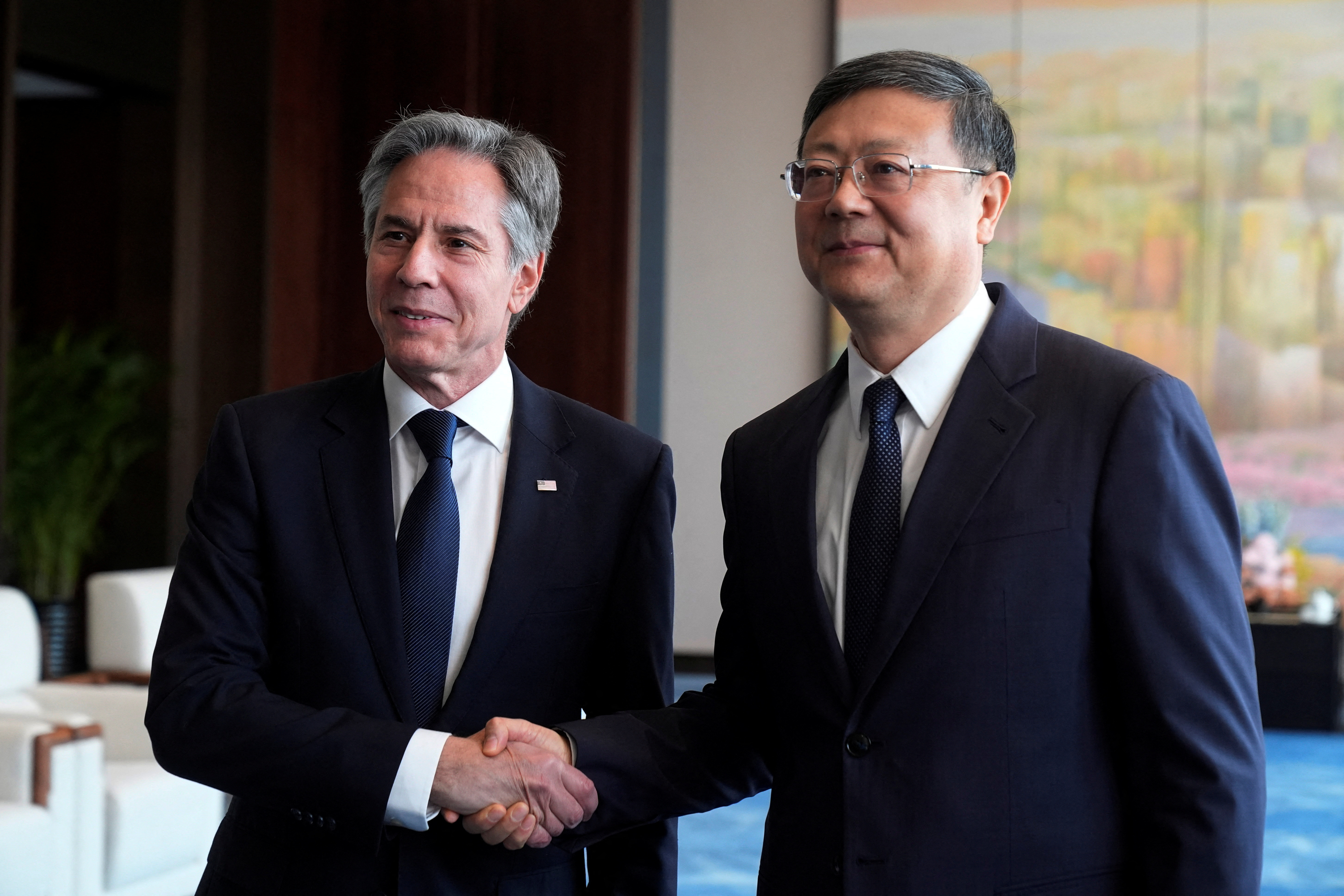
SUPPORT FOR RUSSIA
Sign up here.
Reporting by Simon Lewis and Beijing newsroom; Writing by Antoni Slodkowski; Editing by Christopher Cushing and Miral Fahmy
Our Standards: The Thomson Reuters Trust Principles. New Tab , opens new tab
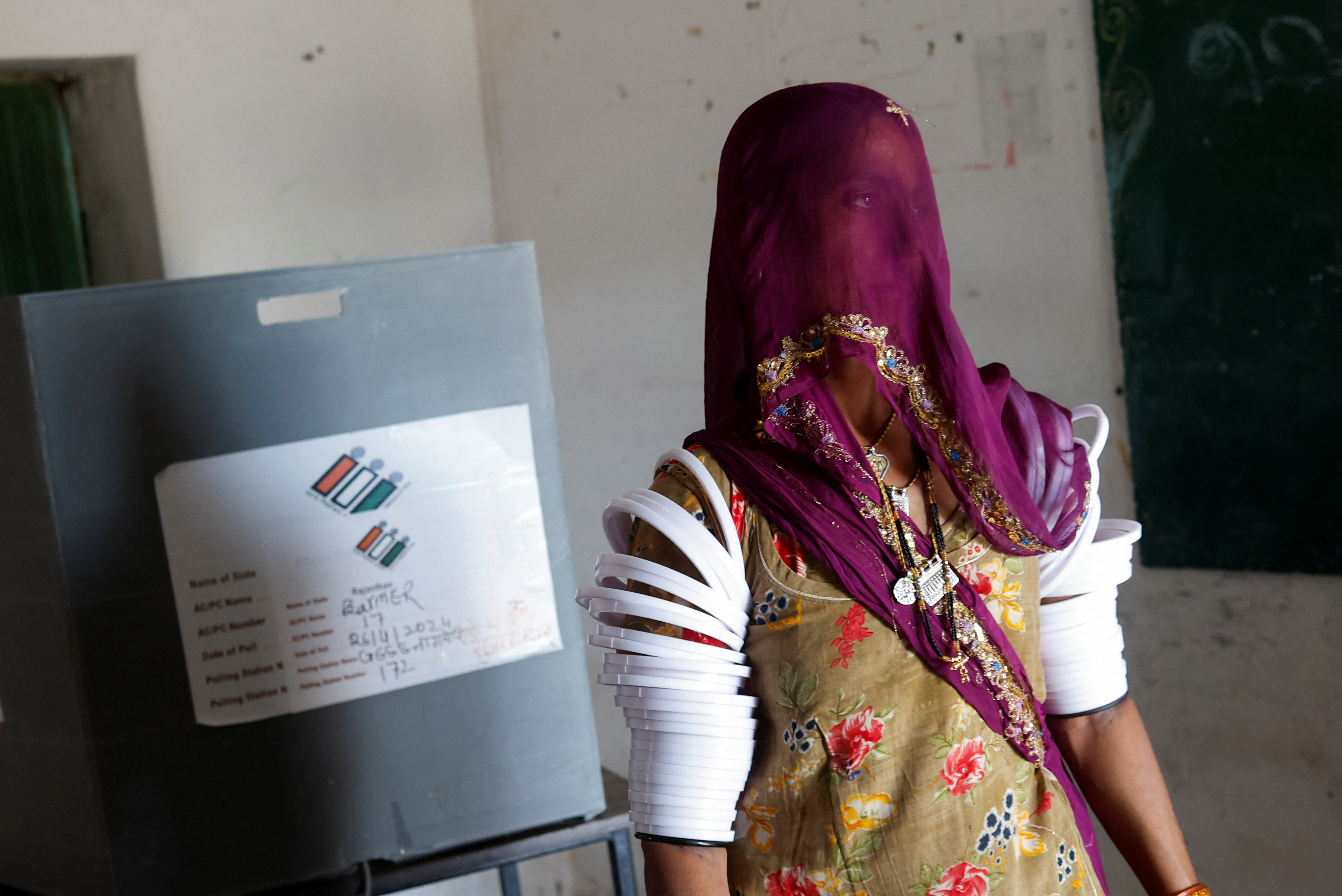
World Chevron

Greece rules out air defence systems to Ukraine, prime minister says
Prime Minister Kyriakos Mitsotakis said Greece can not offer air defence systems like 'Patriots' or S-300 to Ukraine responding to pressure from EU and NATO allies to send more military aid to Kyiv.
Spain will send a small number of Patriot missiles to Ukraine, El Pais newspaper reported on Friday, quoting unidentified sources.
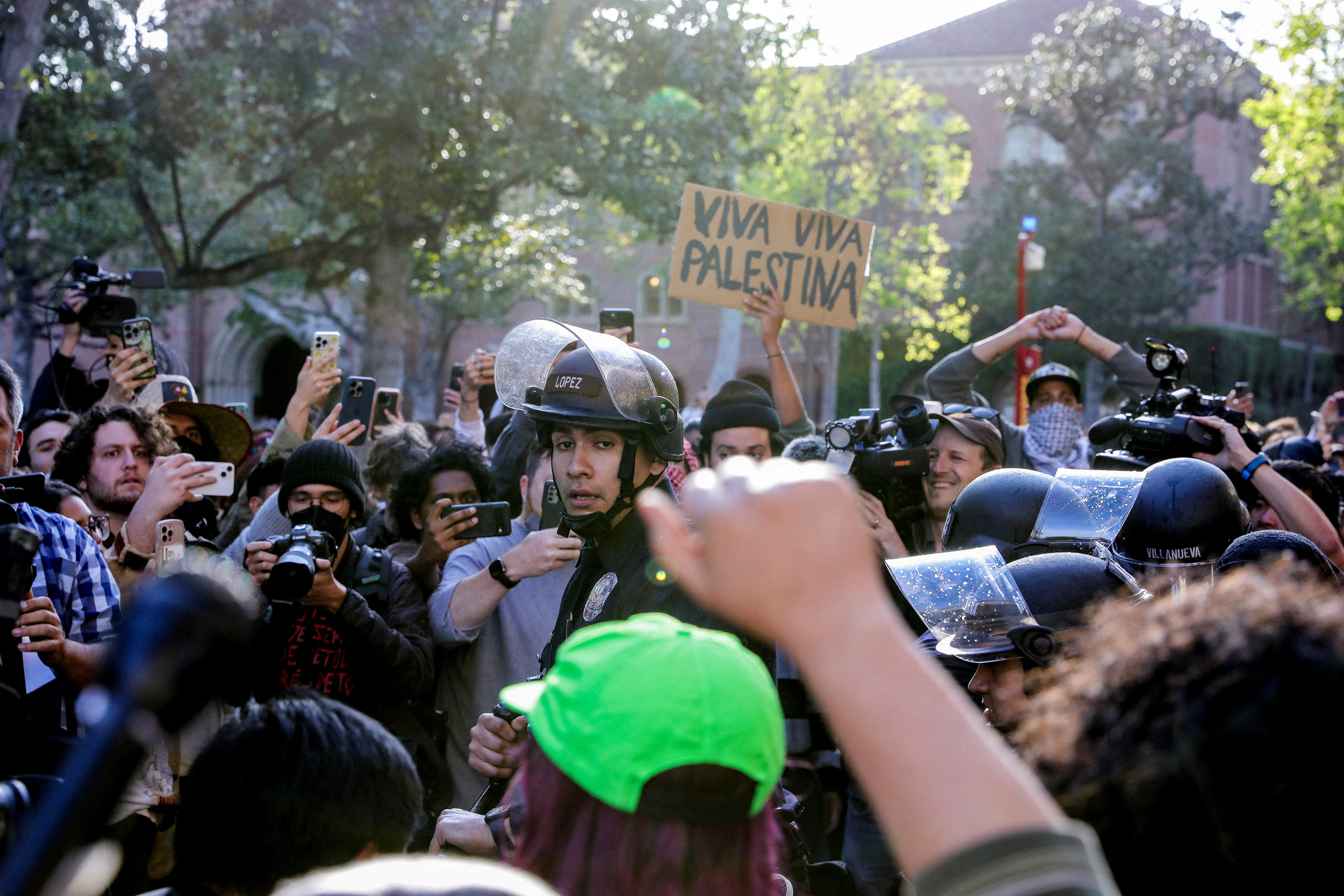
Blinken will urge China to stop sending military supplies to Russia
SHANGHAI — Amid growing U.S. worries that Russia’s war on Ukraine is being made possible by Chinese support for Moscow’s defense industry, Secretary of State Antony Blinken arrived in China on Wednesday on a three-day mission to push leaders to cut ties with the Kremlin.
The conversations in Shanghai and Beijing will be aimed at managing an increasingly thorny and contentious relationship, with ongoing disputes about China’s role in the war in Ukraine, Beijing’s broad claims over the South China Sea and U.S. efforts to reduce dependence on China’s technology manufacturing sector.
The Senate’s passage on Tuesday of a bill requiring the Chinese owners of TikTok to divest from their company was sure to add additional contention on the Chinese side.
This will be the top American diplomat’s second visit to China since relations hit bottom early last year when a Chinese spy balloon floated across the continental United States.
American officials played down expectations for breakthroughs but said it was important to keep talking. More than two years into wide-ranging Western sanctions against Russia, the Biden administration blames China for what it says is a systematic effort to keep Moscow’s defense sector afloat, enabling further civilian deaths in Ukraine. Officials hope to deliver a message coordinated with Europe, which they believe will be more effective than the United States making a solo push.
“When it comes to Russia’s defense industrial base, the primary contributor in this moment to that is China,” Blinken told reporters last week after a meeting of leading world economies in Italy, saying that China has been sharing machine tools, semiconductors and other items that have helped Russia rebuild its defense industry two years into its full-scale war in Ukraine.
“If China purports on the one hand to want good relations with Europe and other countries, it can’t on the other hand be fueling what is the biggest threat to European security since the end of the Cold War,” Blinken said.
Beijing has bristled at Washington placing Ukraine front and center of attempts to thaw relations. Ukraine is “not an issue between China and the United States. The U.S. side should not turn it into one,” a senior Foreign Ministry official said in an unusually long and detailed rundown of Beijing’s demands for talks in a statement released on Tuesday.
Blinken’s last trip to China , in June, marked the resumption of communications after a period of near-silence between high-level leaders in both countries following a trip by former House speaker Nancy Pelosi to Taiwan in August 2022. Blinken was poised to make a trip that was canceled when the spy balloon floated across America just days before his scheduled departure.
But in recent months a steady stream of Cabinet secretaries has visited Beijing, while Chinese officials have made the return trip to the United States. Blinken isn’t even the first member of President Biden’s Cabinet to visit China this month, after Treasury Secretary Janet L. Yellen led an economic delegation and charmed her hosts by drinking beers in Beijing — even as she threatened sharper tariffs on steel and aluminum.
Still, with Chinese leader Xi Jinping showing little inclination to dial back his increasingly aggressive approach to projecting his nation’s power in the world, the United States is devoting significant diplomatic bandwidth to ringfencing China.
Biden and Blinken are building ties to China’s neighbors to try to discourage it from making moves against Taiwan, which Beijing claims as its own, and to warn it off its confrontational stance toward the sea fleets of other nations in the South China Sea. Earlier this month, Biden met the leaders of Japan and the Philippines together in the White House, part of a broader U.S. push to build small groupings of countries to work together to respond to Chinese activity.
Beijing has been especially unsettled by that U.S. strategy, arguing that the Biden administration is rerunning the Cold War playbook of containment that it once deployed against the Soviet Union. U.S. officials fire back that if China’s neighbors feel threatened and want to work with each other to bolster their security, then Beijing should reexamine the way it is projecting its power.
Still, the relationship is far more stable than it was a year ago, and China appears to be signaling that it does not want to risk crossing the reddest of U.S. red lines. It has dialed back its rhetoric and military activity around Taiwan in recent months. And — after the Biden administration delivered a stark warning — it still has not sent weaponry to Russia, Blinken said last week.
But U.S. officials say that even the current levels of Chinese support for the Kremlin are far too much. They have warned counterparts that if Chinese companies keep supplying embargoed dual-use components to Russia, they could face crippling sanctions of their own.
“We’re prepared to take steps when we believe necessary against firms that are taking steps in contravention to our interests,” a senior State Department official said ahead of the trip, speaking to reporters under ground rules of anonymity to discuss sensitive planning considerations. “Our objective will be to clearly make the case what the implications are of this support and why that may in fact not be in China’s interest going forward.”
The United States won’t be able to “drive a wedge” between China and Russia, so Blinken’s goal is to convince Xi that Beijing will bear “unacceptable consequences” if it doesn’t stop enabling Putin’s war effort, said Bonnie Glaser, managing director of the Indo-Pacific program at the German Marshall Fund, a think tank.
To appeal to the Chinese leader’s interests, the United States needs to show him that curbing support of Russia can help stabilize relations with Washington, Glaser said. “China really does not want to be front and center in our election campaign,” she added.
A key goal for China is to ease American export controls on advanced technologies, after Xi warned Biden in San Francisco that more restrictions could “deprive the Chinese people of their right to development.”
Still, some officials said they did not expect an immediate shift in Chinese behavior. With Biden already working to isolate Chinese industry and detach trade ties to Beijing, he has less leverage over China’s economy than in the past. Nor is China in the mood to split from the Kremlin, viewing Russia as a key partner in a world it sees as largely under by U.S. hegemony.
According to Shi Yinhong, a scholar at Renmin University in Beijing, there remain 16 sources of serious tension in the relationship, “none of which have seen lasting mitigation even with more dialogue since [former president Donald] Trump left office.”
On his list are military activity around Taiwan and in the South China Sea; human rights in Hong Kong and Xinjiang; decoupling in technology industries and efforts to safeguard supply chains; and growing ideological competition as part of a new Cold War. “On every major issue there is an established pattern,” Shi said. “It’s very difficult to make positive change.”
Shepherd reported from Shanghai.
This article originally paraphrased Glaser as saying that Blinken needed to convince Xi the United States was not trying to drive a wedge between China and Russia. She merely said that was not achievable for Blinken to do this. This article has been updated.

We've detected unusual activity from your computer network
To continue, please click the box below to let us know you're not a robot.
Why did this happen?
Please make sure your browser supports JavaScript and cookies and that you are not blocking them from loading. For more information you can review our Terms of Service and Cookie Policy .
For inquiries related to this message please contact our support team and provide the reference ID below.

COMMENTS
China Travel Restrictions & Travel Advisory (Updated April 25, 2024) Updates April 25th, 2024: If you book a trip with us, we can arrange a port visa for you to travel to China. China's port visas are similar to the "visas on arrival" of some other countries. It enables a stay in China for up to 30 days. Contact us to book a trip.
Call us in Washington, D.C. at 1-888-407-4747 (toll-free in the United States and Canada) or 1-202-501-4444 (from all other countries) from 8:00 a.m. to 8:00 p.m., Eastern Standard Time, Monday through Friday (except U.S. federal holidays). See the State Department's travel website for the Worldwide Caution and Travel Advisories.
For the most comfortable weather, consider coming in spring or fall. Spring is a great time as China is fresh and flowering, while autumn has drier weather than spring as well as moderate temperatures. Check out the best times to visit China. Recommended tours: Classic Wonders (11-day) — the highlights in Beijing, Xi'an, Guilin, and Shanghai
July 19, 2023 2:41 pm (EST) After China removed most of its COVID-related cross-border travel restrictions, foreign tourists are slowly returning. Ctrip, one of China's largest online travel ...
15-Day Shanghai, Kunming, Shangri-la, Lijiang, Chengdu, Xi'an and Beijing Tour World Heritage & Southern China Discovery. 13. Jiuzhaigou — Immerse in the Serene Splendor of Lakes and Natural Beauty. Jiuzhaigou, located in Sichuan province, is a must-visit destination in China, especially for nature enthusiasts.
China alone contributed 51% of the travel and tourism GDP in the Asia-Pacific region in 2018, according to the World Travel and Tourism Council. And Chinese travelers typically accounted for 30% ...
Reissued with updates to COVID-19 information. Reconsider travel to the People's Republic of China (PRC), including the Hong Kong Special Administrative Region (SAR) and the Macau SAR, due to the surge in COVID-19 cases, arbitrary enforcement of local laws, and COVID-19-related restrictions. See specific risks and conditions in each jurisdiction below.
CNN —. For years, Americans interested in visiting China had to endure a thorough visa process, which required pre-booking hotels and flights and handing their passports over to an embassy or ...
To travel from here into China proper, a standard tourist visa is required. These are fairly easy to obtain via China Travel Service in Hong Kong. Since May 2018, the Chinese resort island of Hainan has offered 30-day visa-free entry to citizens of 59 countries including the US, Canada, the EU, the UK, New Zealand, Malaysia and Singapore.
China Travel Advisory. Updated due to new national security legislation in the Hong Kong Special Administrative Region. Summary: Reconsider travel to Mainland China due to the arbitrary enforcement of local laws, including in relation to exit bans, and the risk of wrongful detentions. Exercise increased caution when traveling to the Hong Kong ...
Travelers interested in visiting China may apply for entry visas and start planning trips now. Tourism experts started getting trips on the schedule even before the return of China's tourist ...
14. Forbidden City, Beijing. Among China's imperial sights, none can compare in size, grandeur or mystique to Beijing's Forbidden City. Built between 1406 and 1420, this sprawling palace was off-limits for 500 years until the overthrow of the last Qing emperor in 1911.
Xian Terra-Cotta Warrior. Guilin Li River. Chengdu Pandas. Lhasa Potala Palace. Silk Road. Best China Tours for Expats in China: ☛ 3 Days Classic Zhangjiajie Natural Wonders Tour. ☛ 2 Days Leisure Chengdu Private Tour with Panda Visit. ☛ 3 Days Beijing Essential Short Stay Tour.
Customs. China Tourist Visa. Here are the documents you are to prepare before submission of visa application. Getting a visa. Consular Authentication of Documents in China. Notice of port visa application procedures for foreigners. Q & A.
China Travel Costs. Accommodation - Prices start at around 30 CNY for an 8-10 bed dorm in many of the smaller cities. Expect to pay closer to 85 CNY in Hong Kong and Beijing. For a private room, prices begin around 110 CNY though expect to pay almost double that in the larger cities.
1) Take a Classic China Tour to Beijing, Xi'an, and Shanghai. Beijing - China's capital and a major gateway to the country. Start your trip in the capital city, Beijing. Explore the historic Forbidden City, walk along the Great Wall of China, and visit the Temple of Heaven. Don't miss the ancient alleyways of Hutong and the impressive Summer ...
See separate travel advice for Hong Kong and Macao. You can also visit the island of Hainan for 30 days without a visa. Visa-free transit through China is permitted, from 24 hours to 144 hours ...
This travel advice covers mainland China. See travel advice for the Special Administrative Regions, Hong Kong and Macao. The Foreign, Commonwealth & Development Office ( FCDO) provides advice ...
If your travel plans in China include outdoor activities, take these steps to stay safe and healthy during your trip. Stay alert to changing weather conditions and adjust your plans if conditions become unsafe. Prepare for activities by wearing the right clothes and packing protective items, such as bug spray, sunscreen, and a basic first aid ...
China has told the world that that it is neutral in the Russia-Ukraine war, and that it is not providing weapons to Russia. Secretary of State Antony Blinken is expected visit to Beijing this month.
US Secretary of State Antony Blinken arrived in China on Wednesday where he is expected to issue a strong warning to Chinese leaders about the country's support for Russia's efforts to ramp up ...
Antony Blinken waves as he boards his plane at Andrews airbase in Maryland on his way to Beijing for his three-day visit to China. Photograph: Mark Schiefelbein/AFP/Getty Images
China has maintained that it is not, while deepening ties with Moscow. Mr. Xi hosted Russia's foreign minister this month, and President Vladimir V. Putin of Russia is expected to visit China soon.
SHANGHAI, April 25 (Reuters) - U.S. Secretary of State Antony Blinken on Thursday called on China to provide a level playing field for American businesses as he began a visit aimed at resolving a ...
Blinken's last trip to China, in June, marked the resumption of communications after a period of near-silence between high-level leaders in both countries following a trip by former House ...
Secretary of State Antony Blinken raised concerns over unfair trade practices in the world's No. 2 economy as he began talks in China, with the threat of US sanctions on Beijing for its support ...